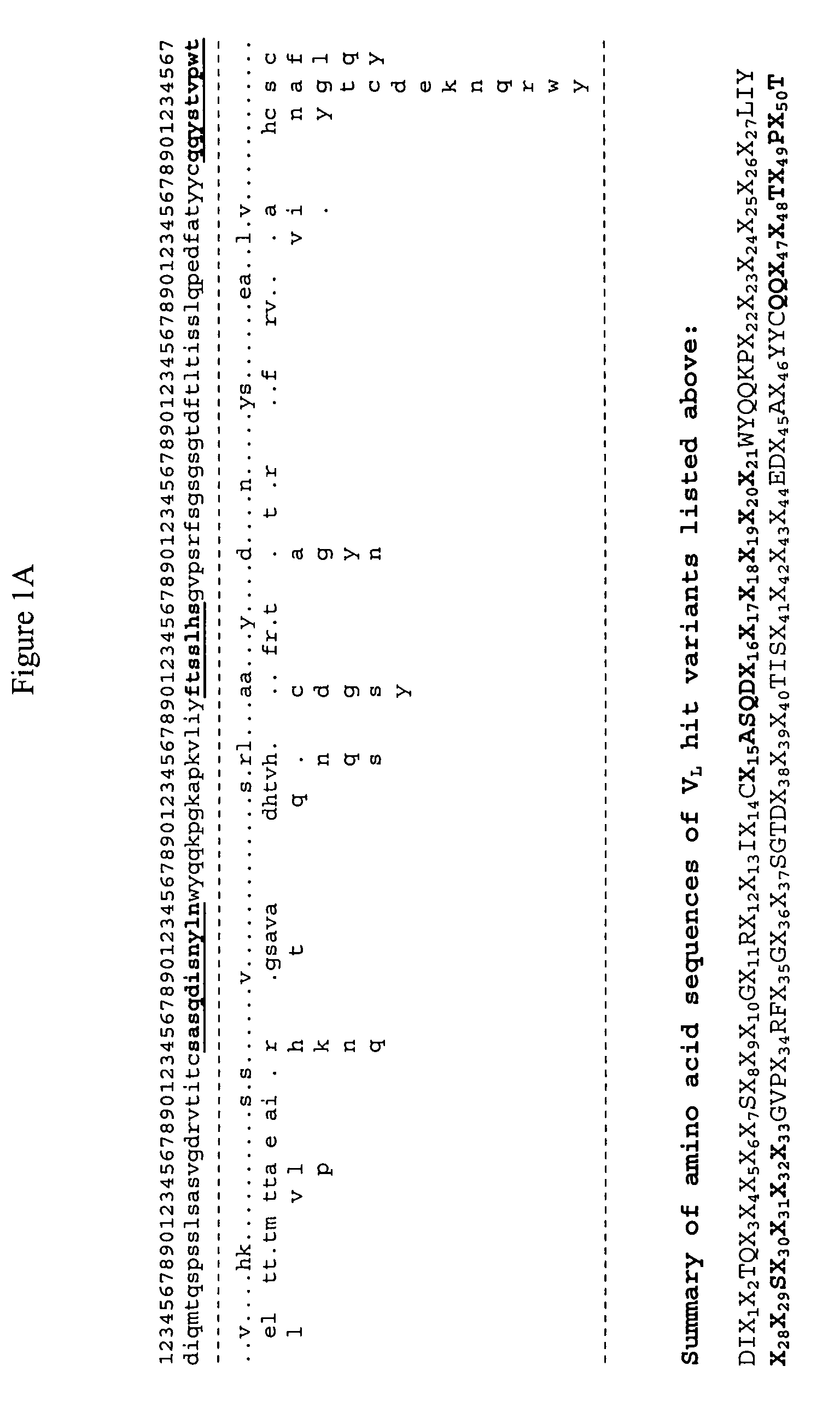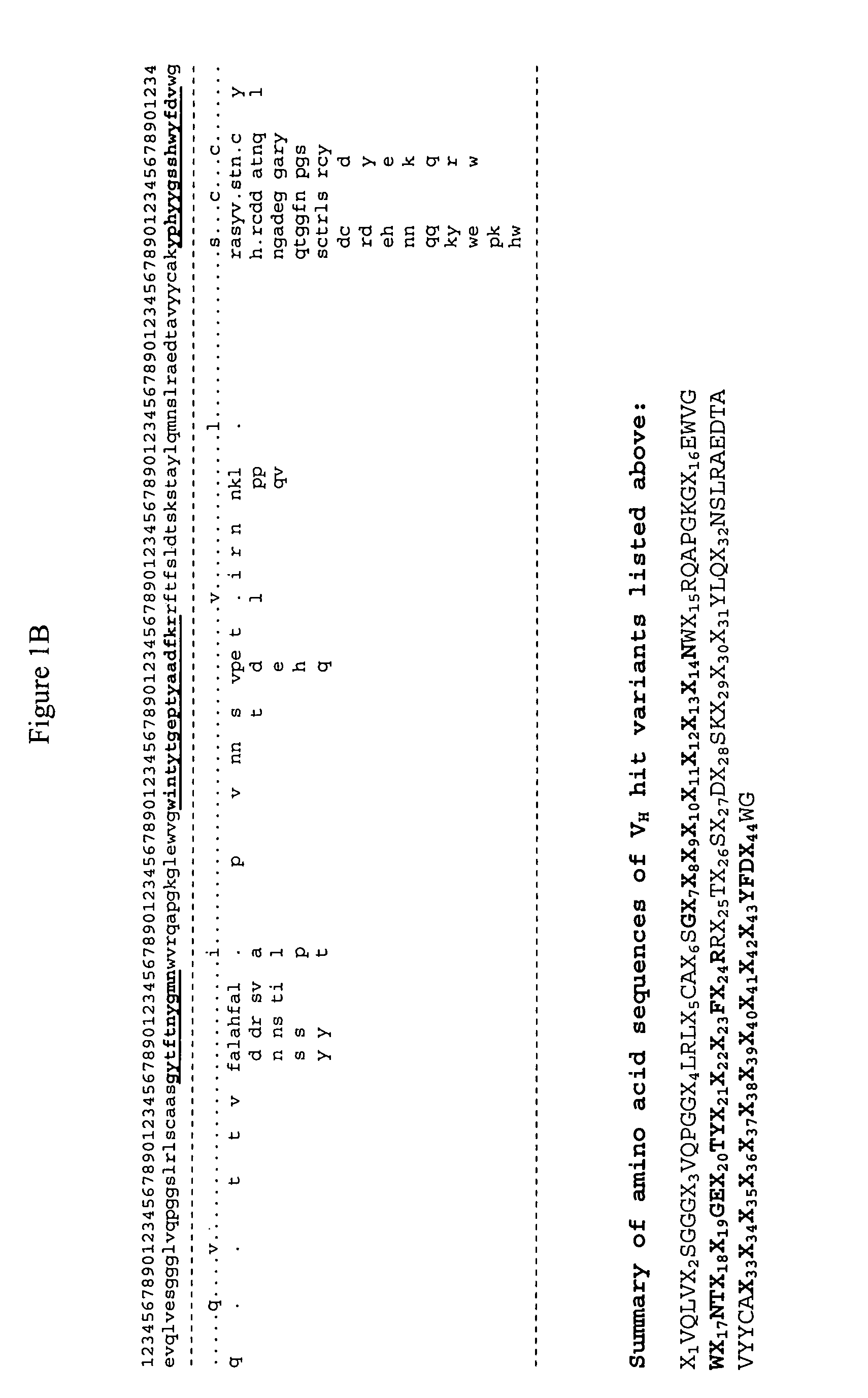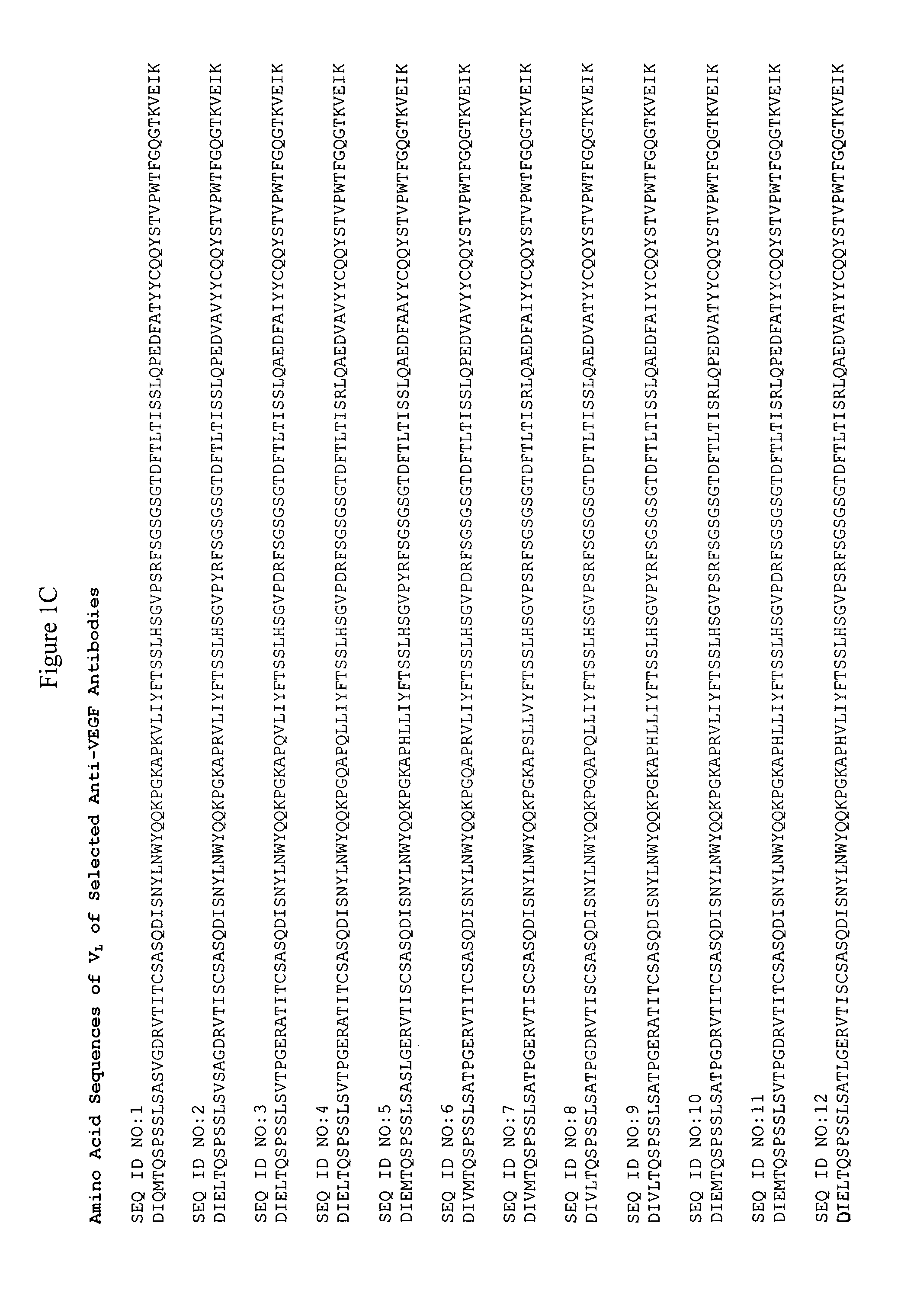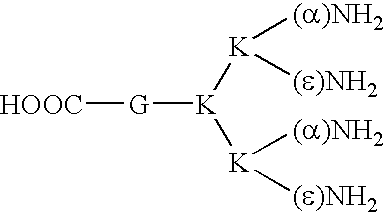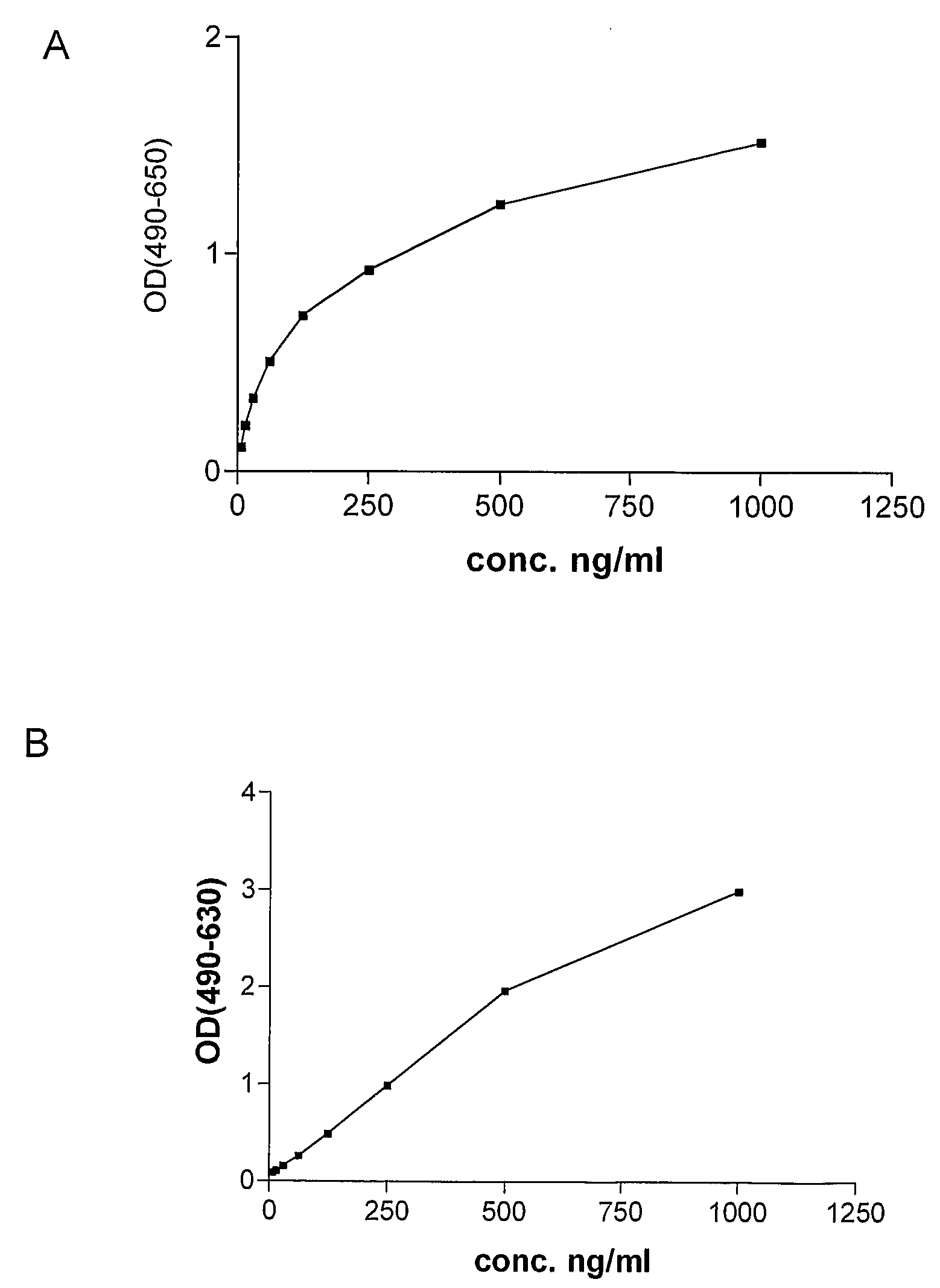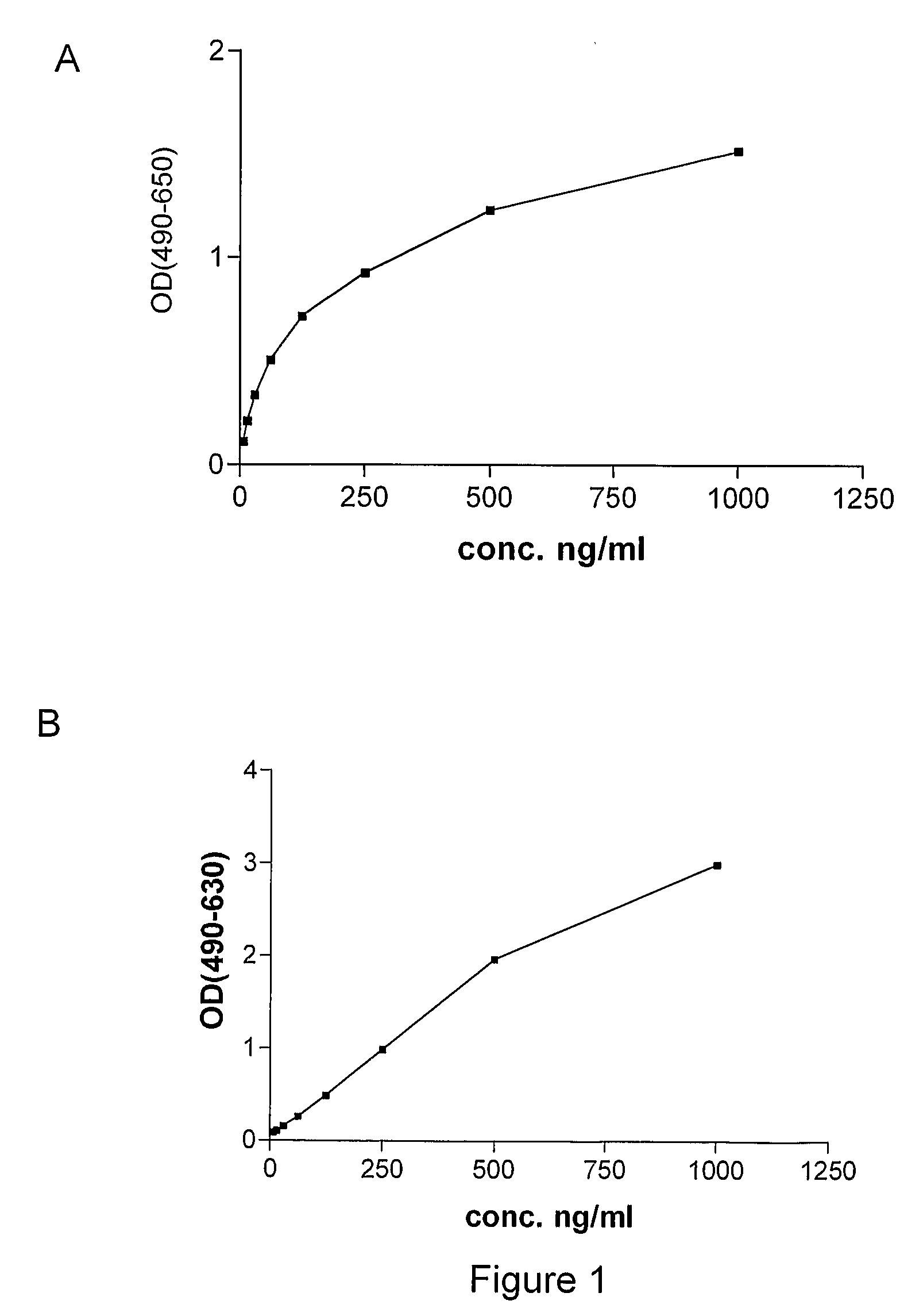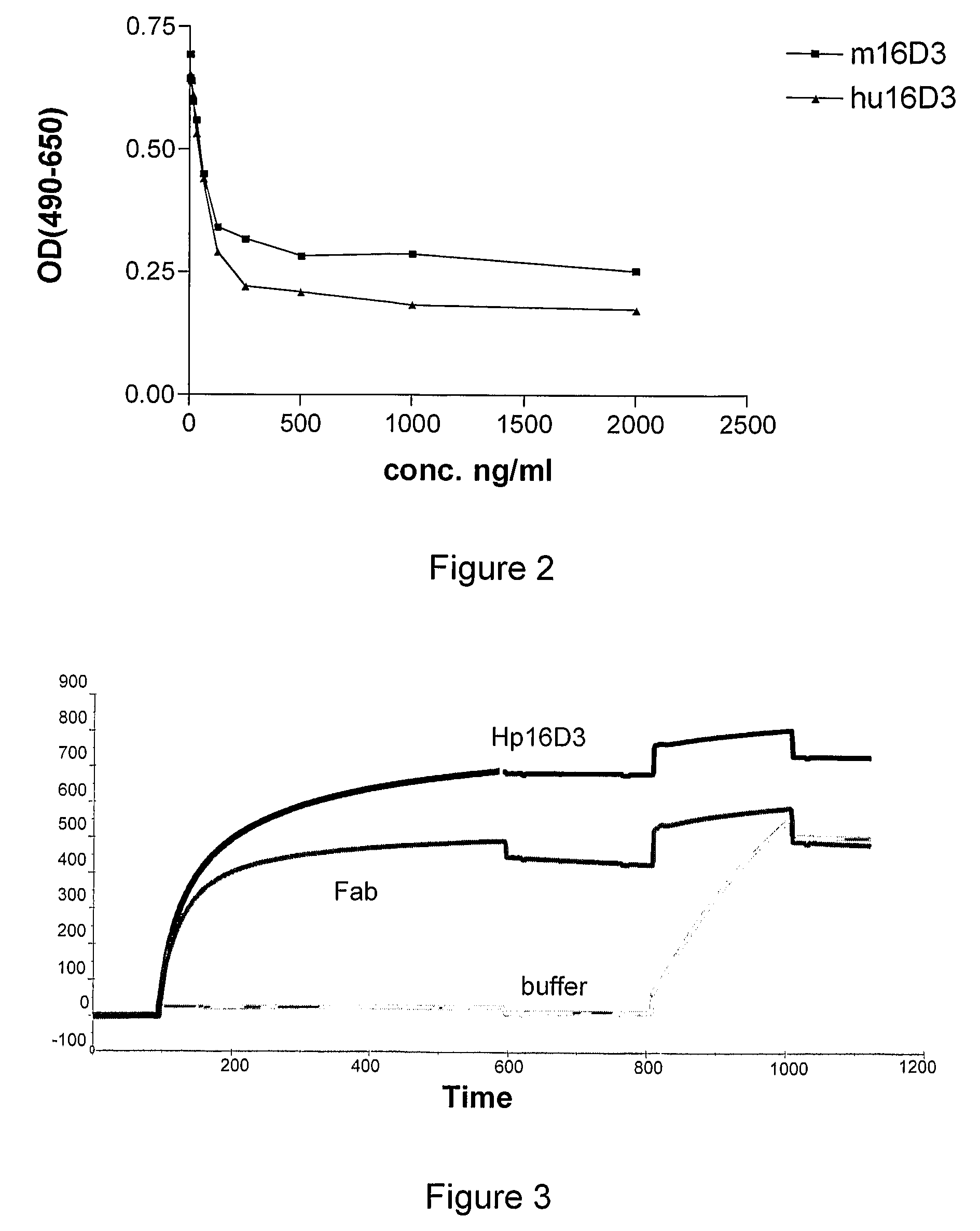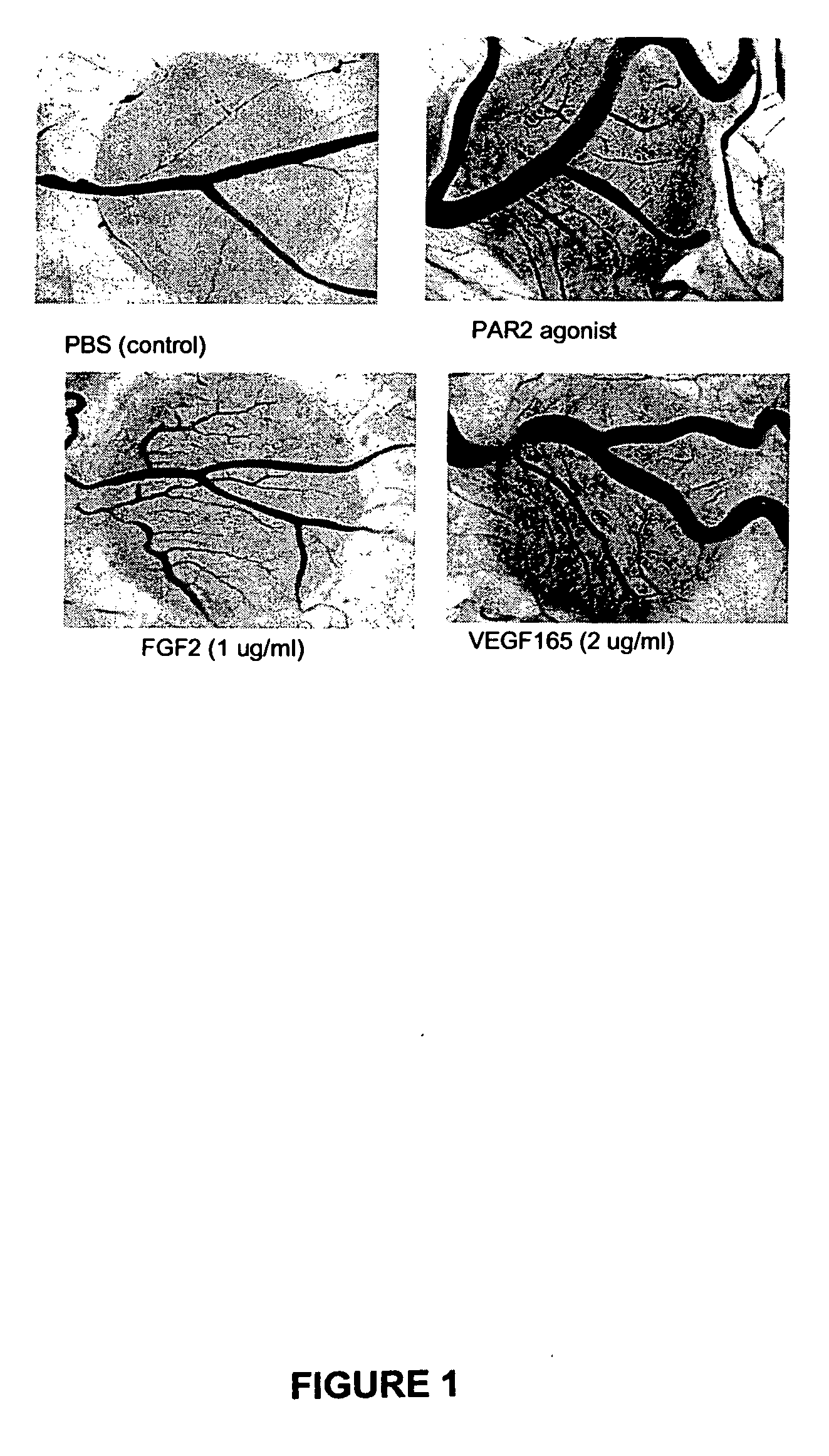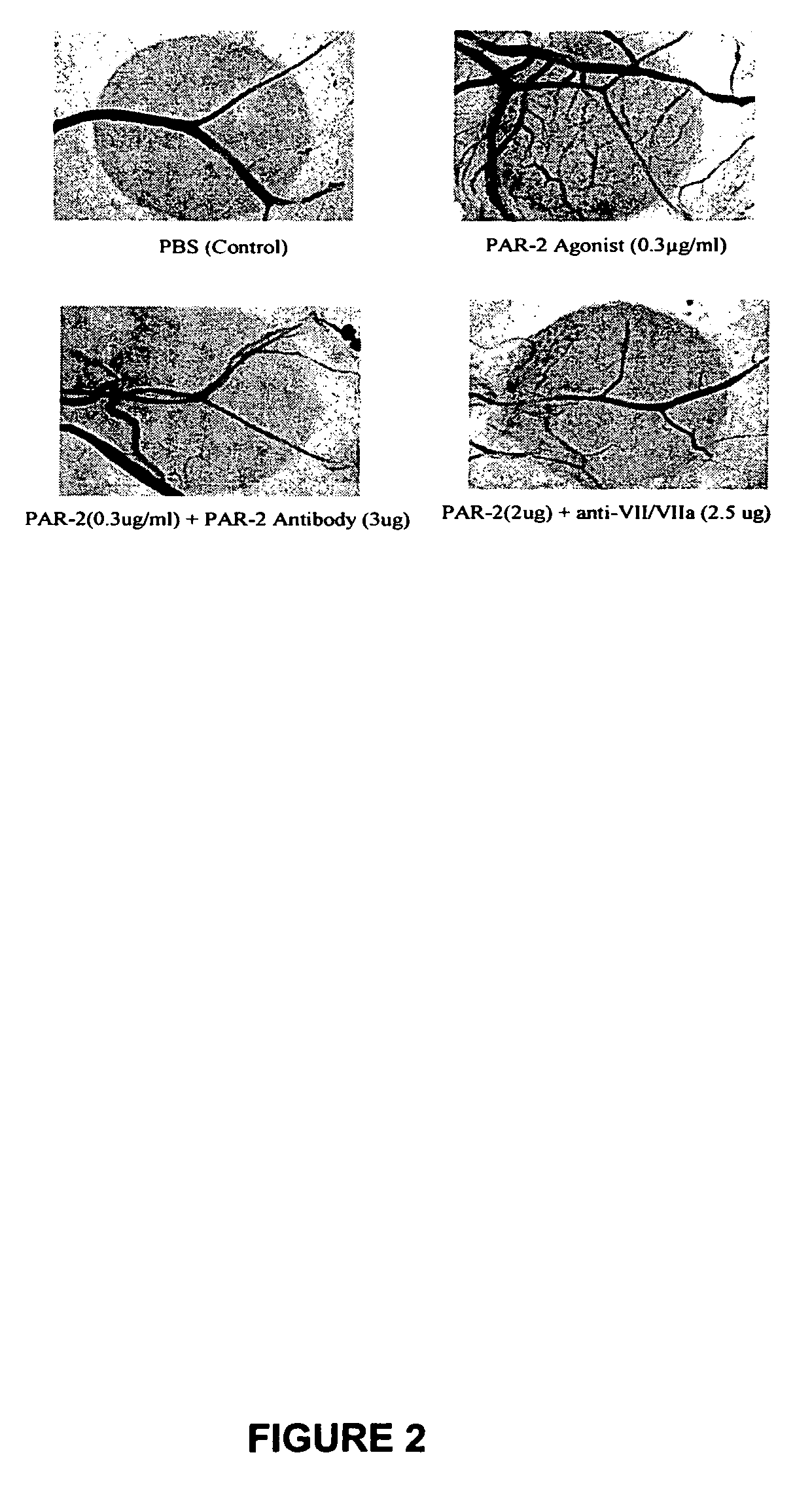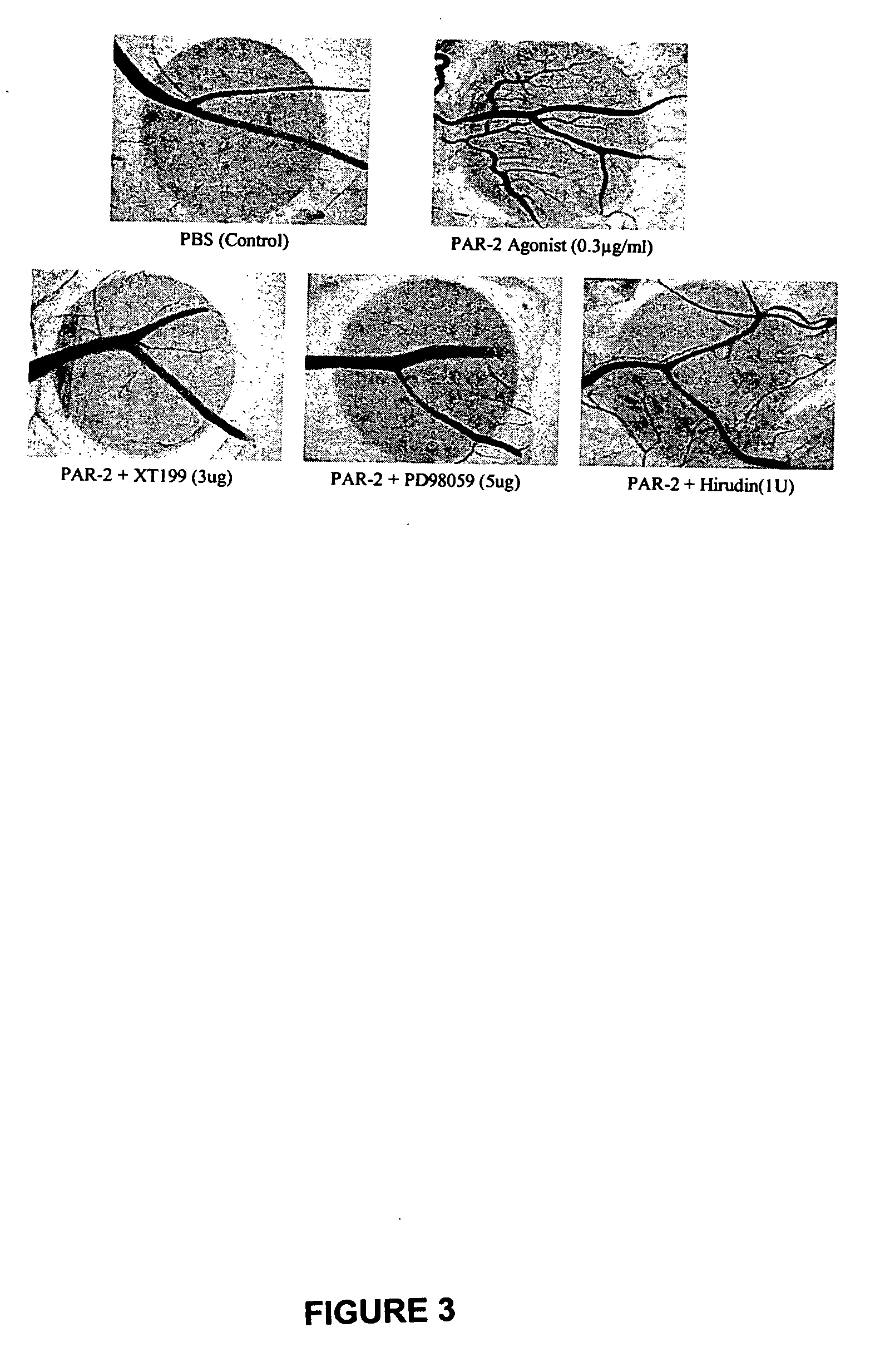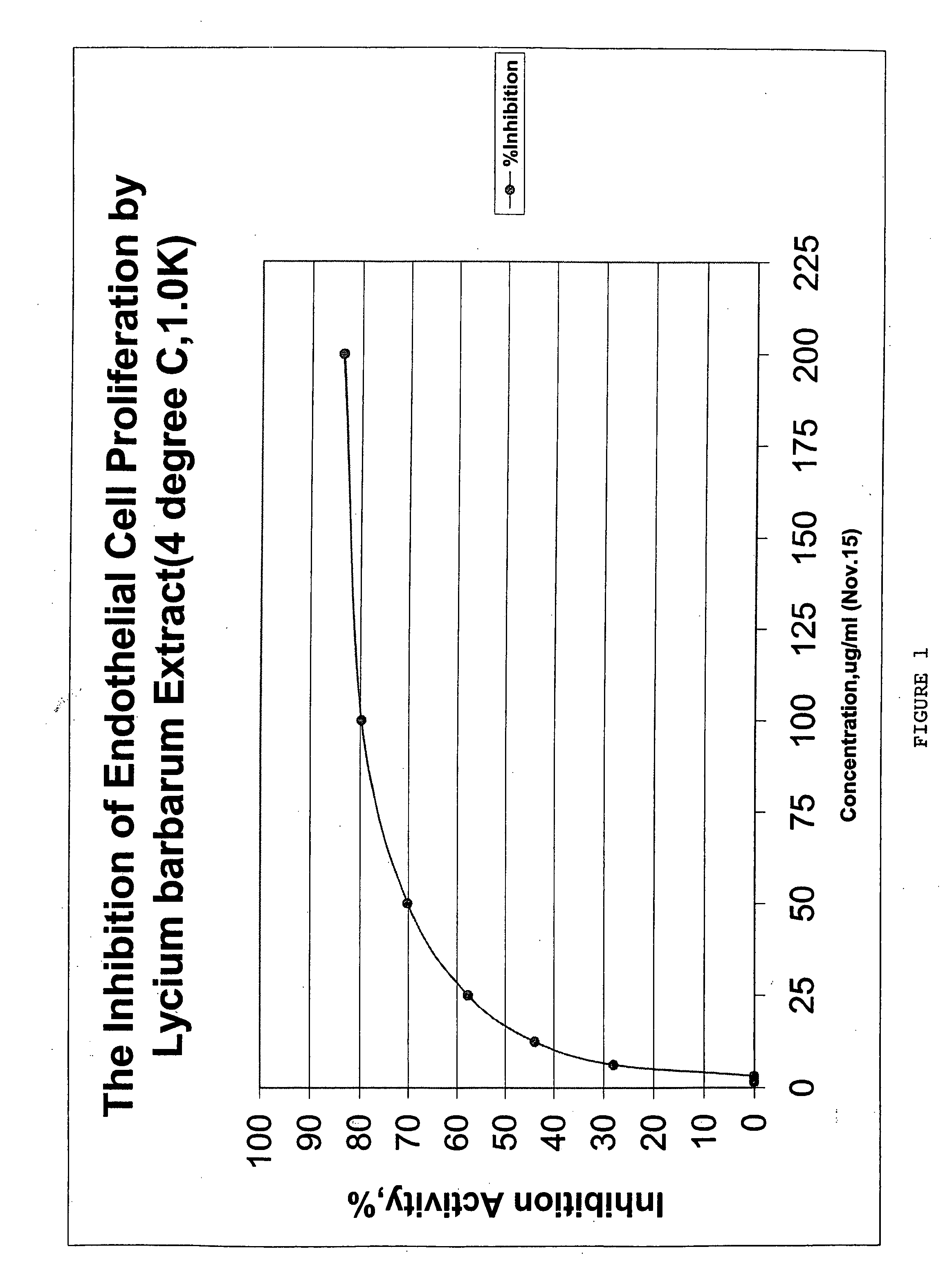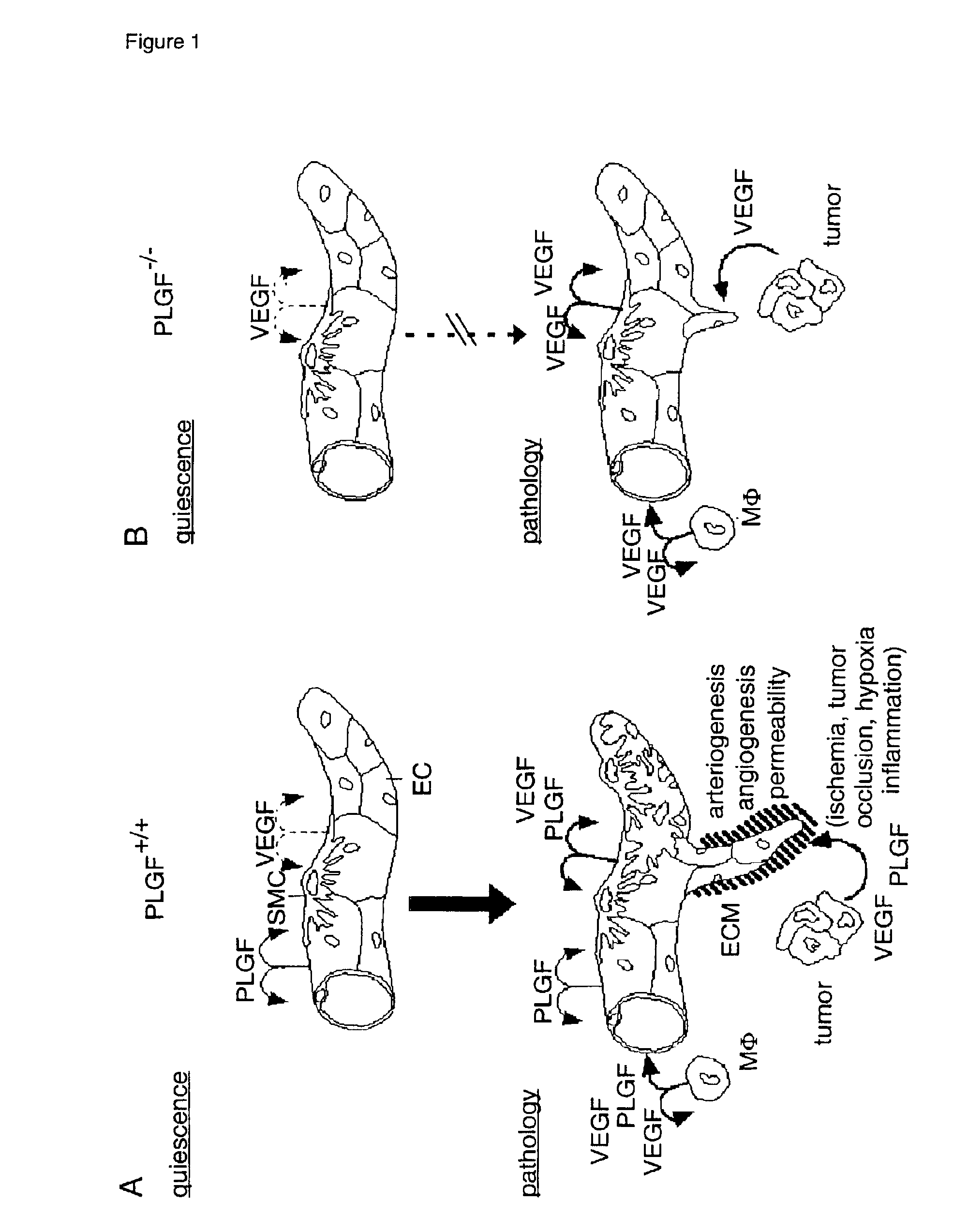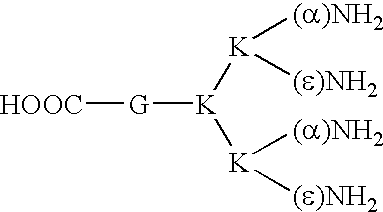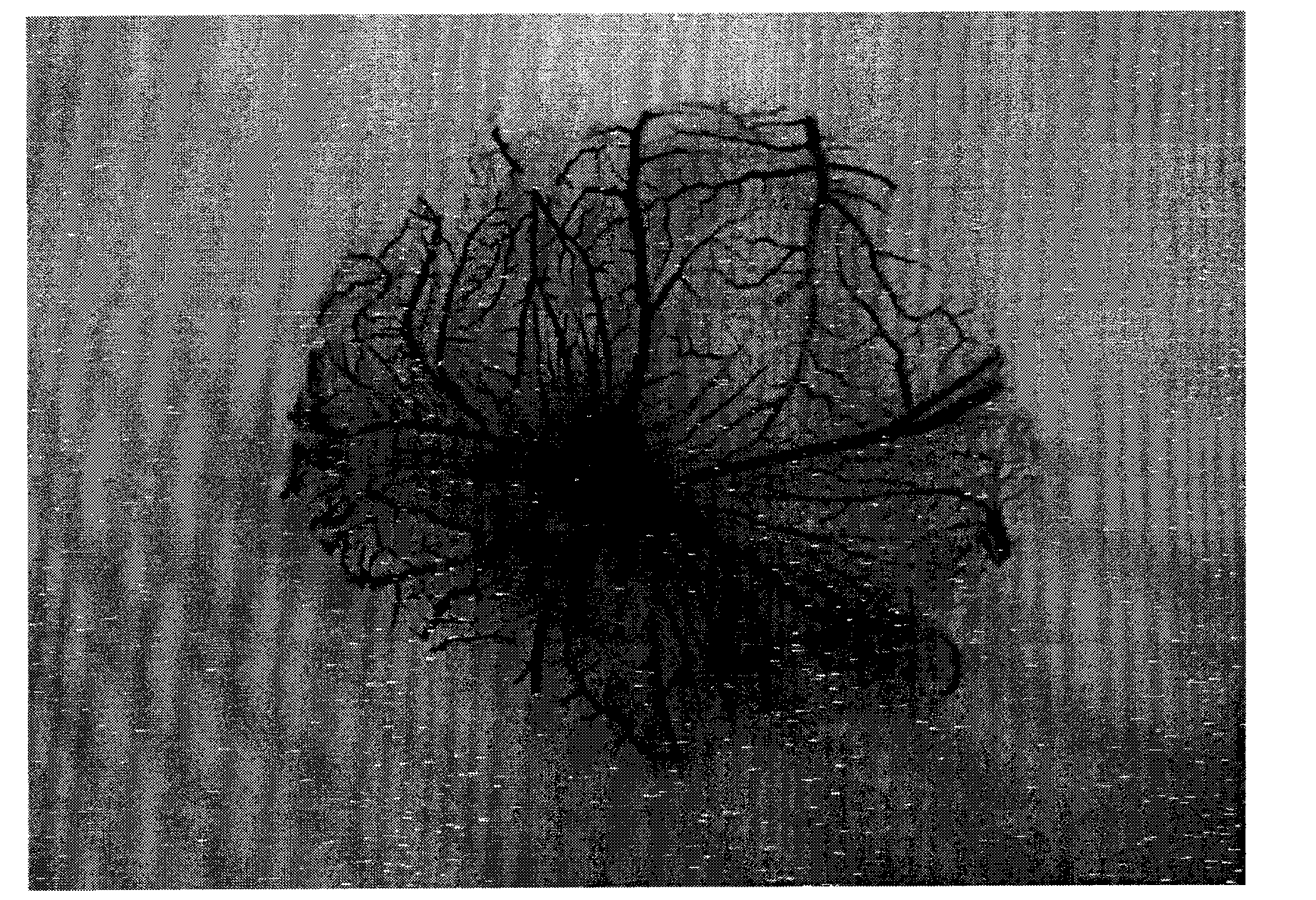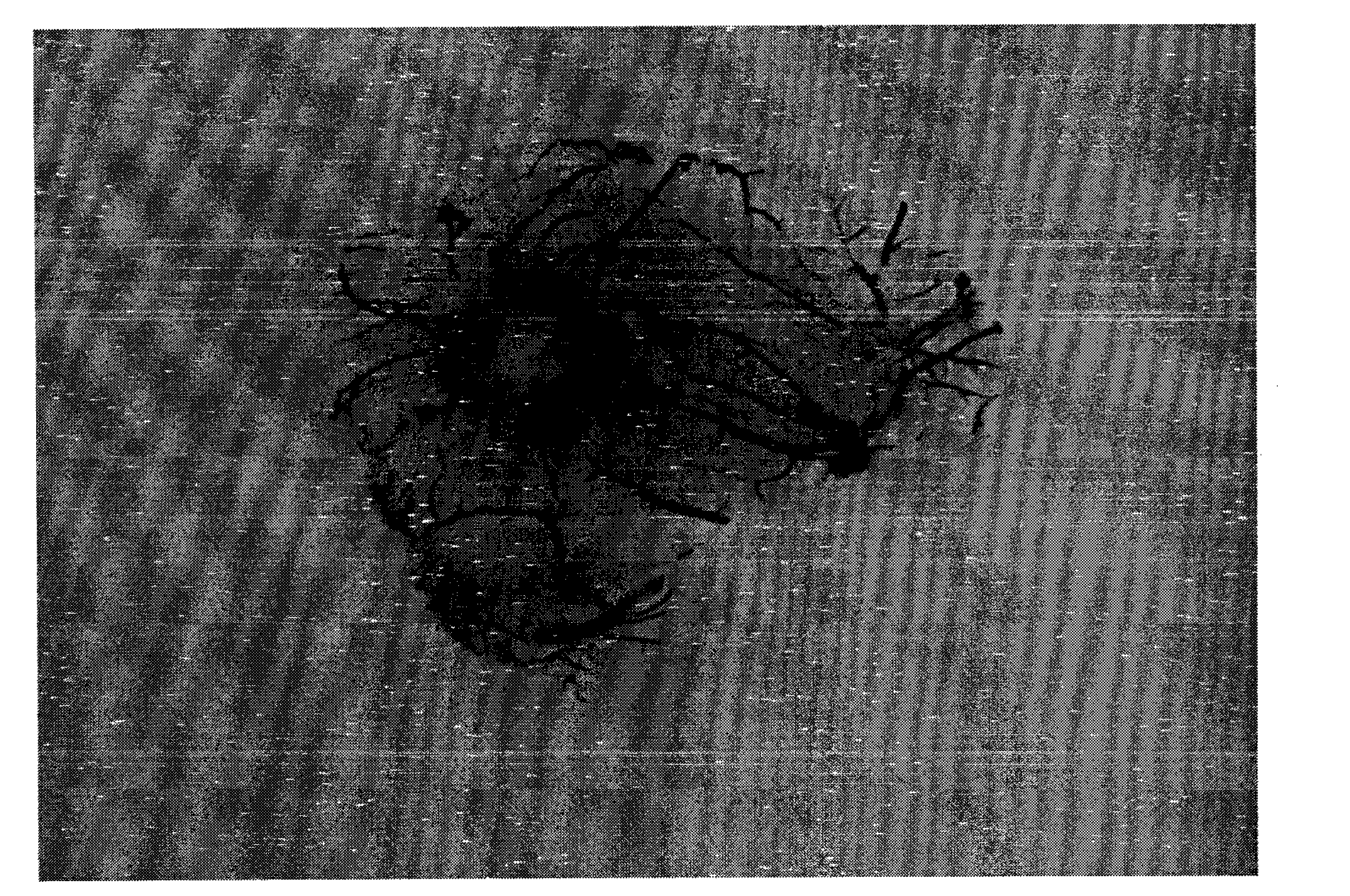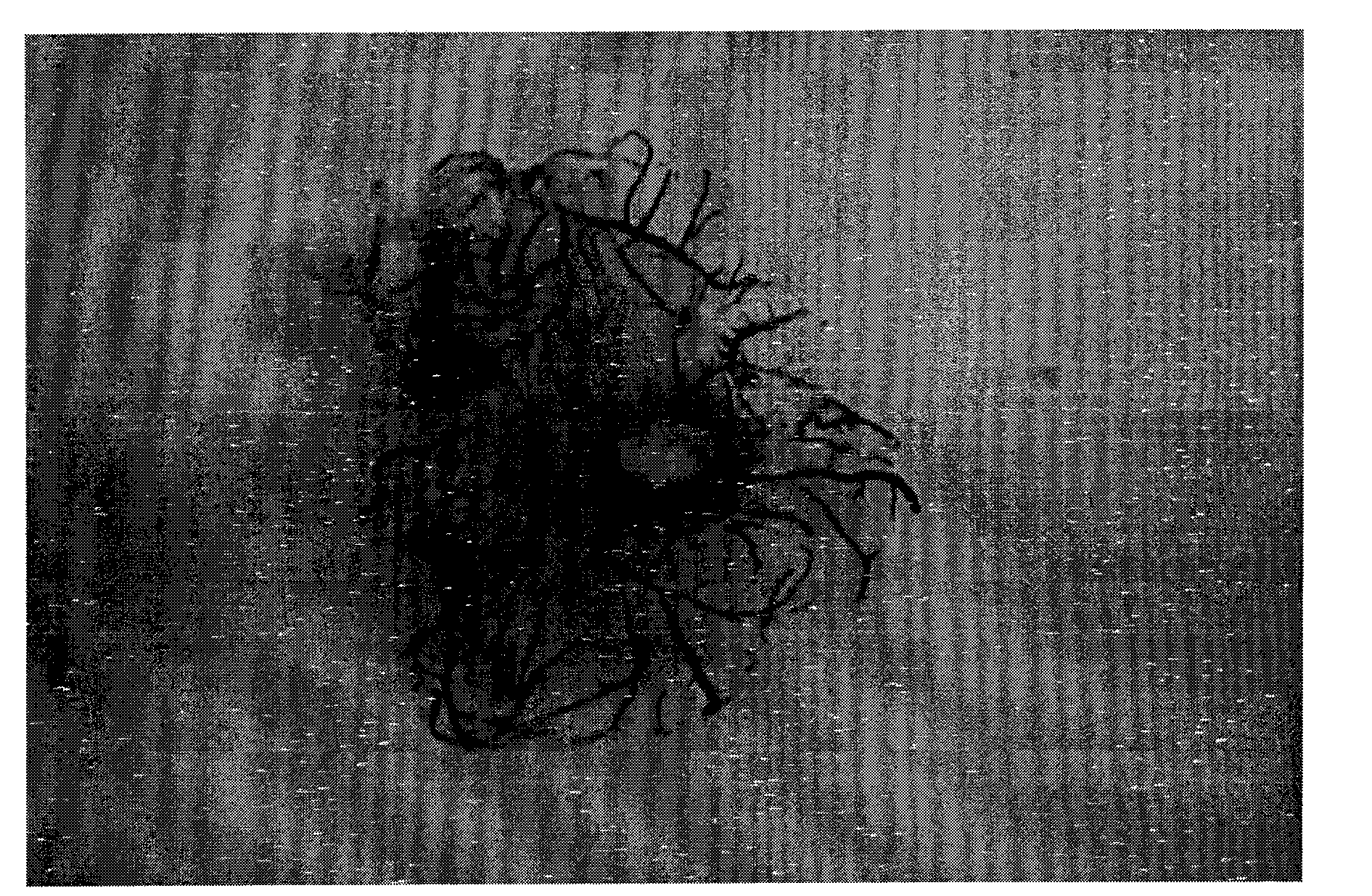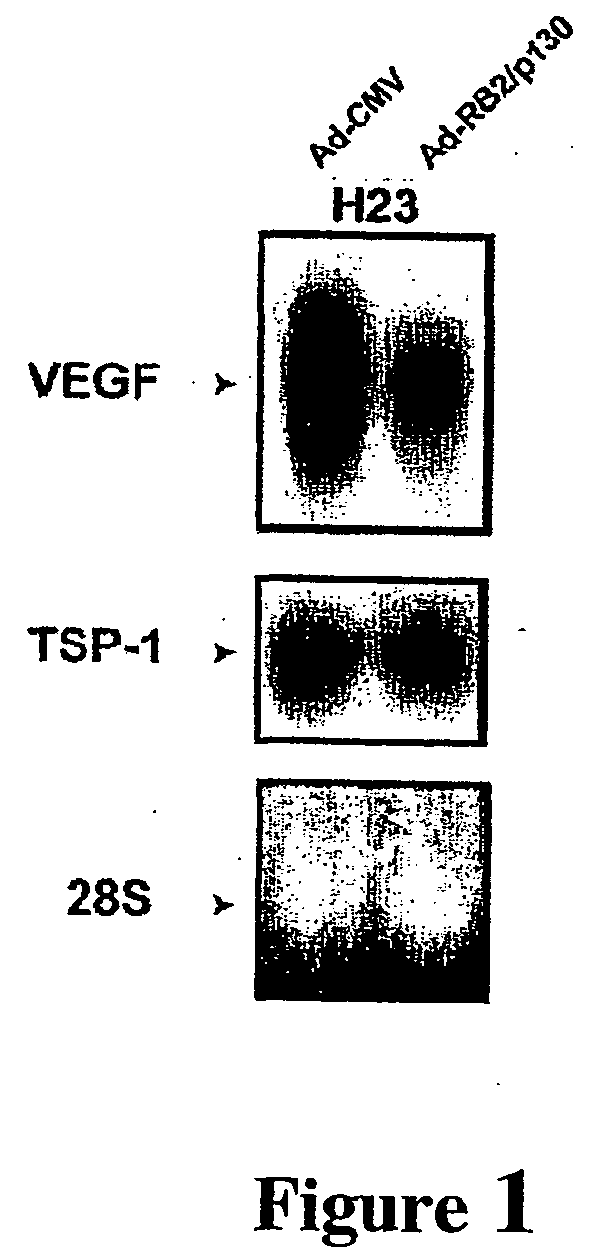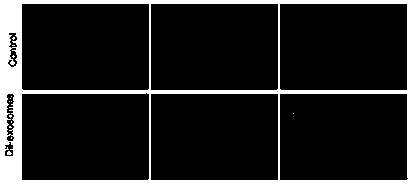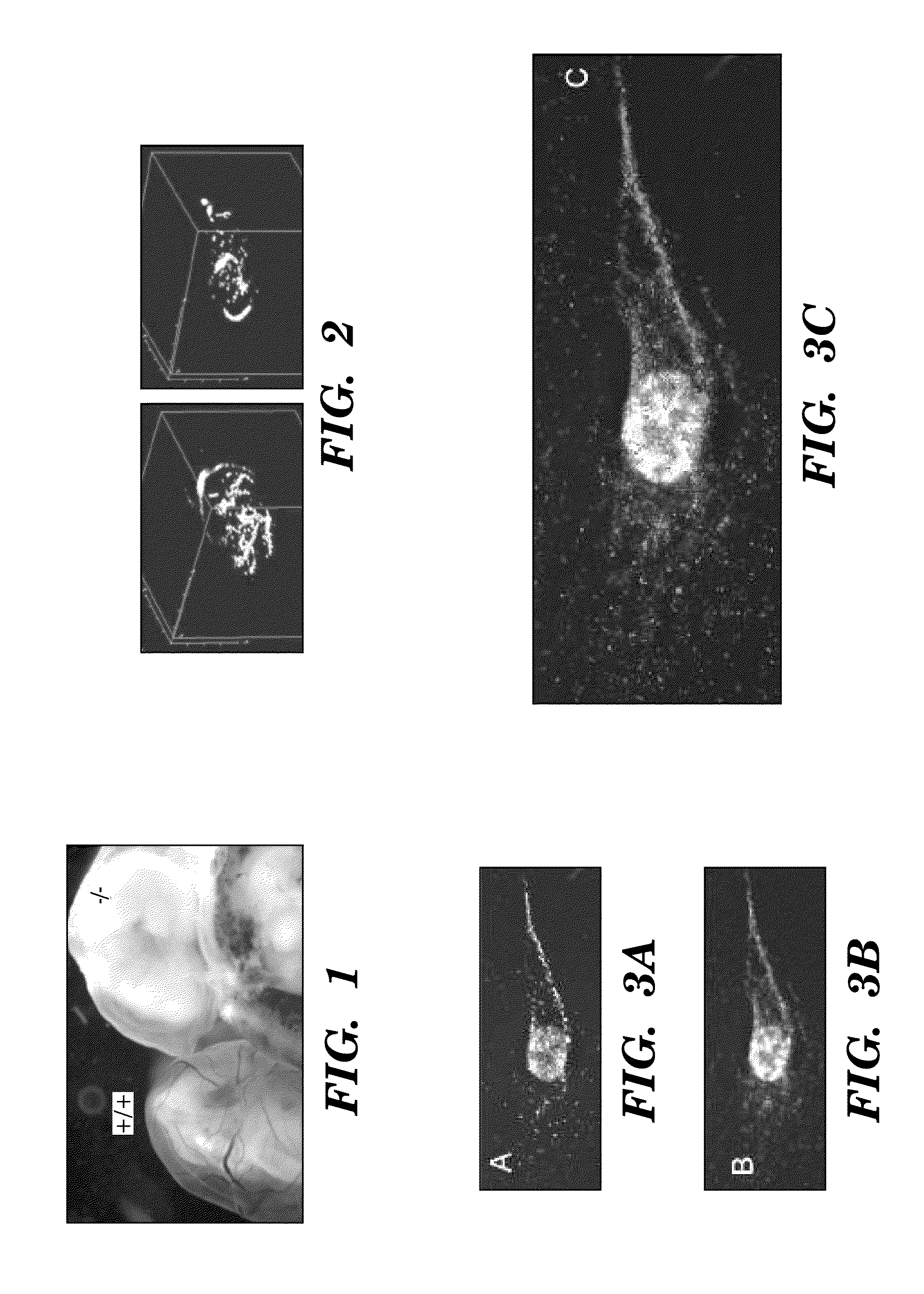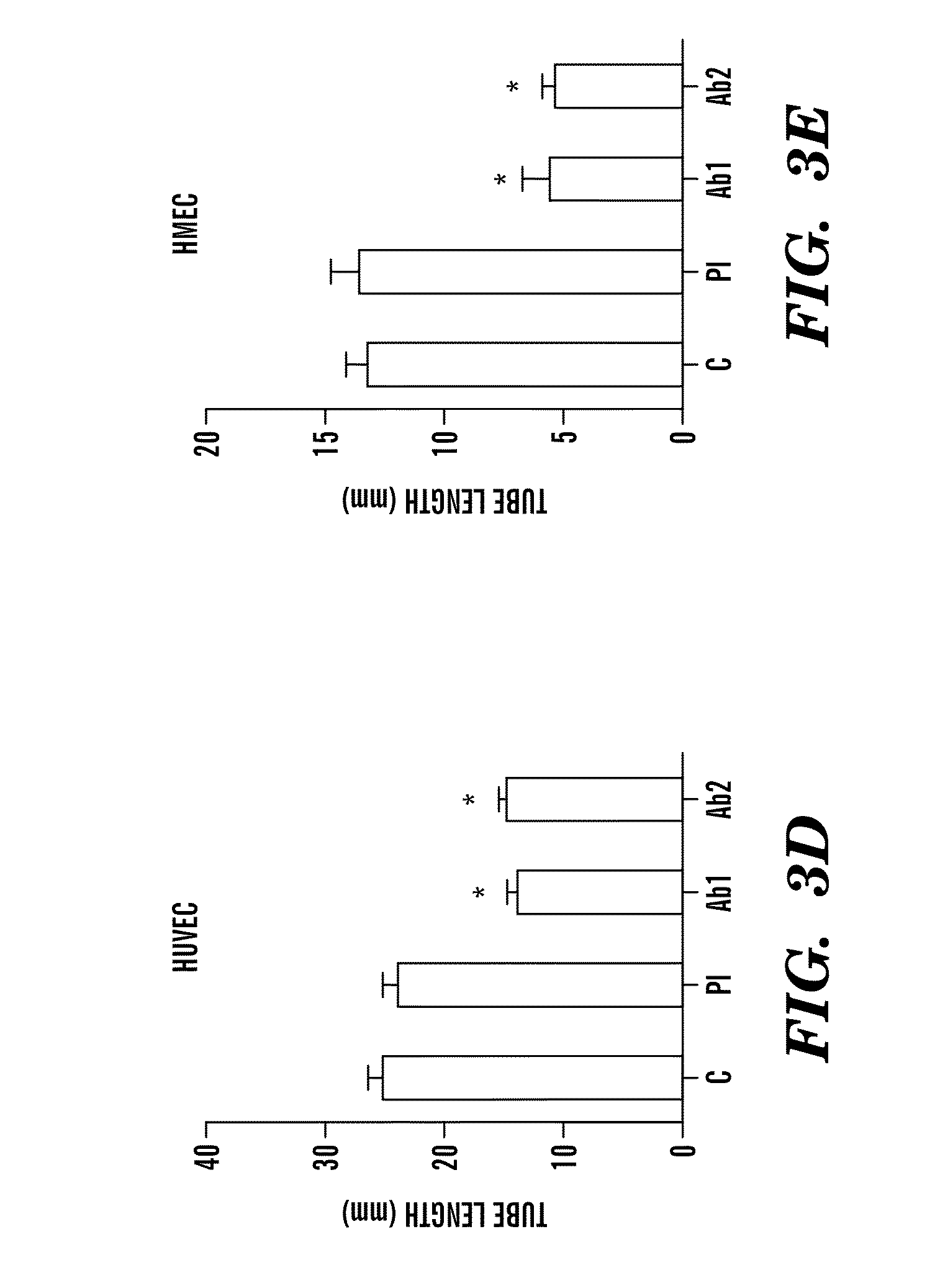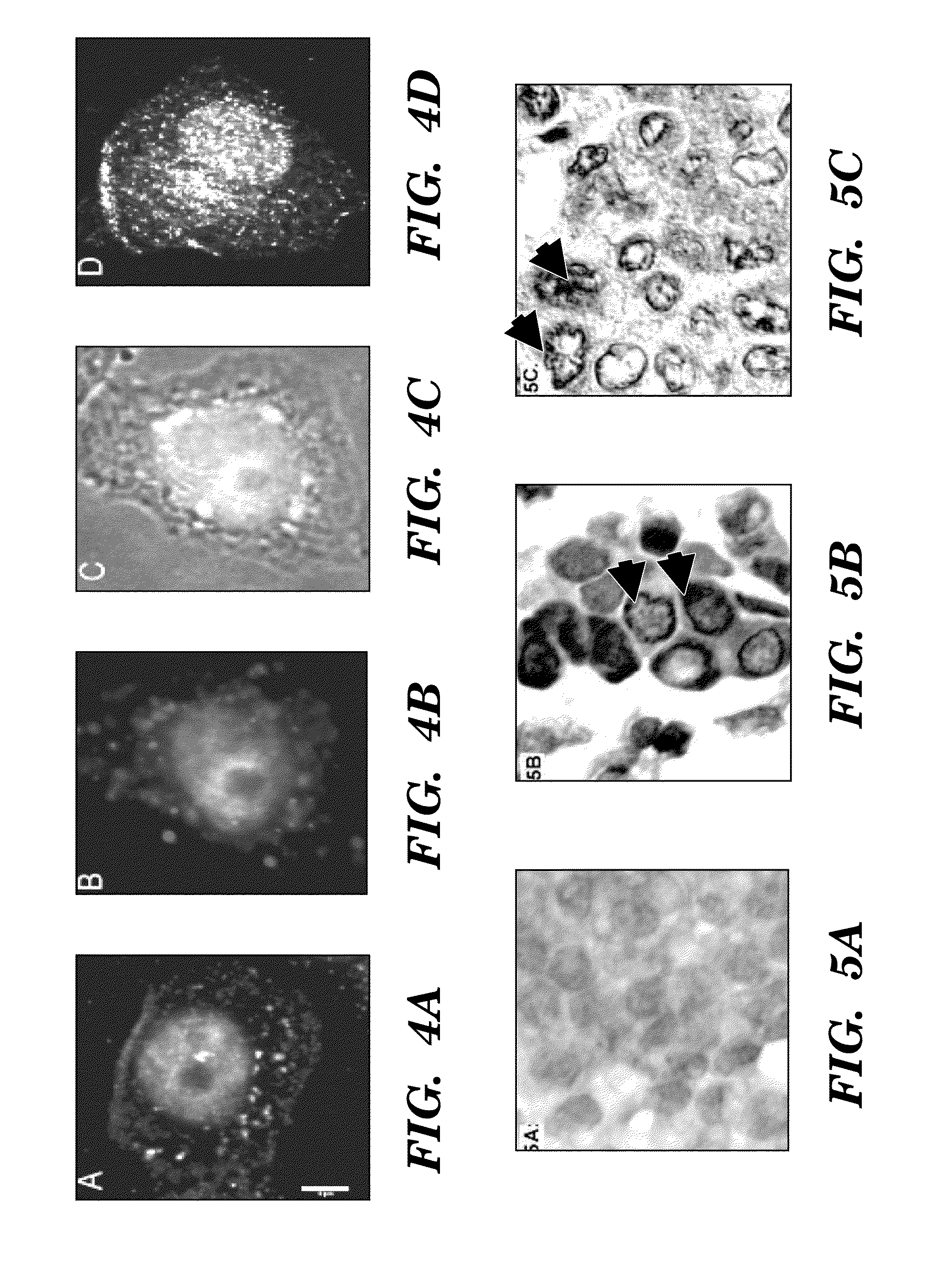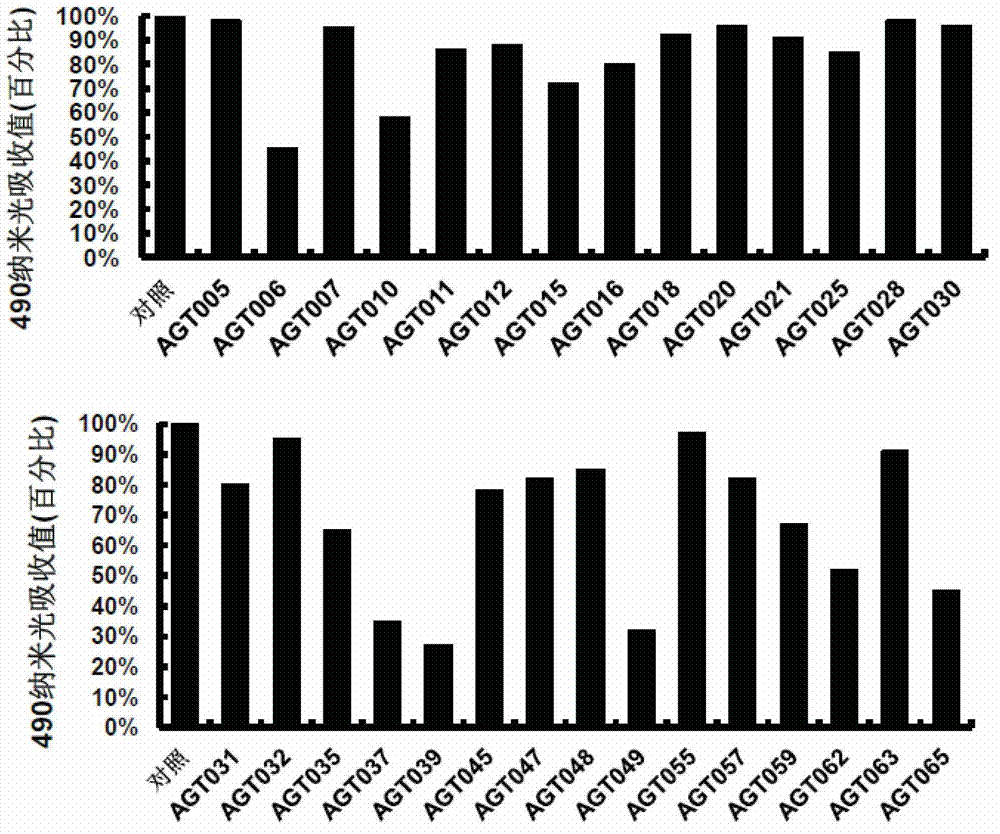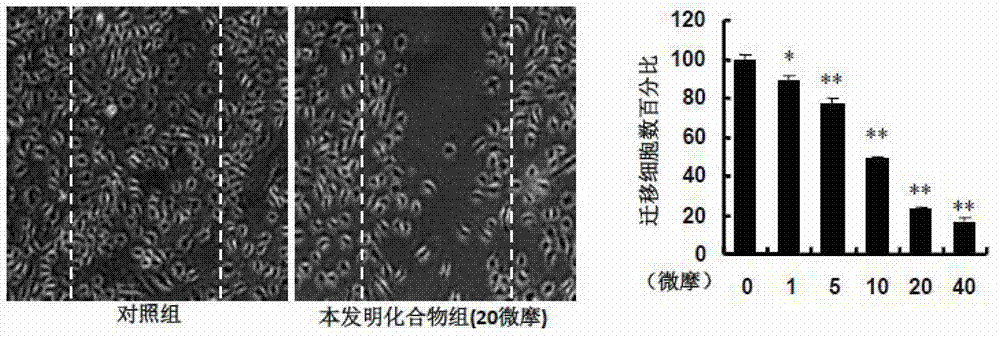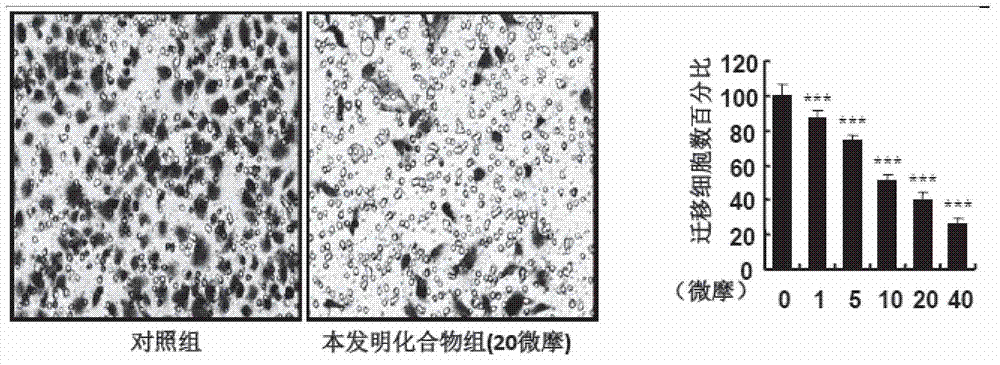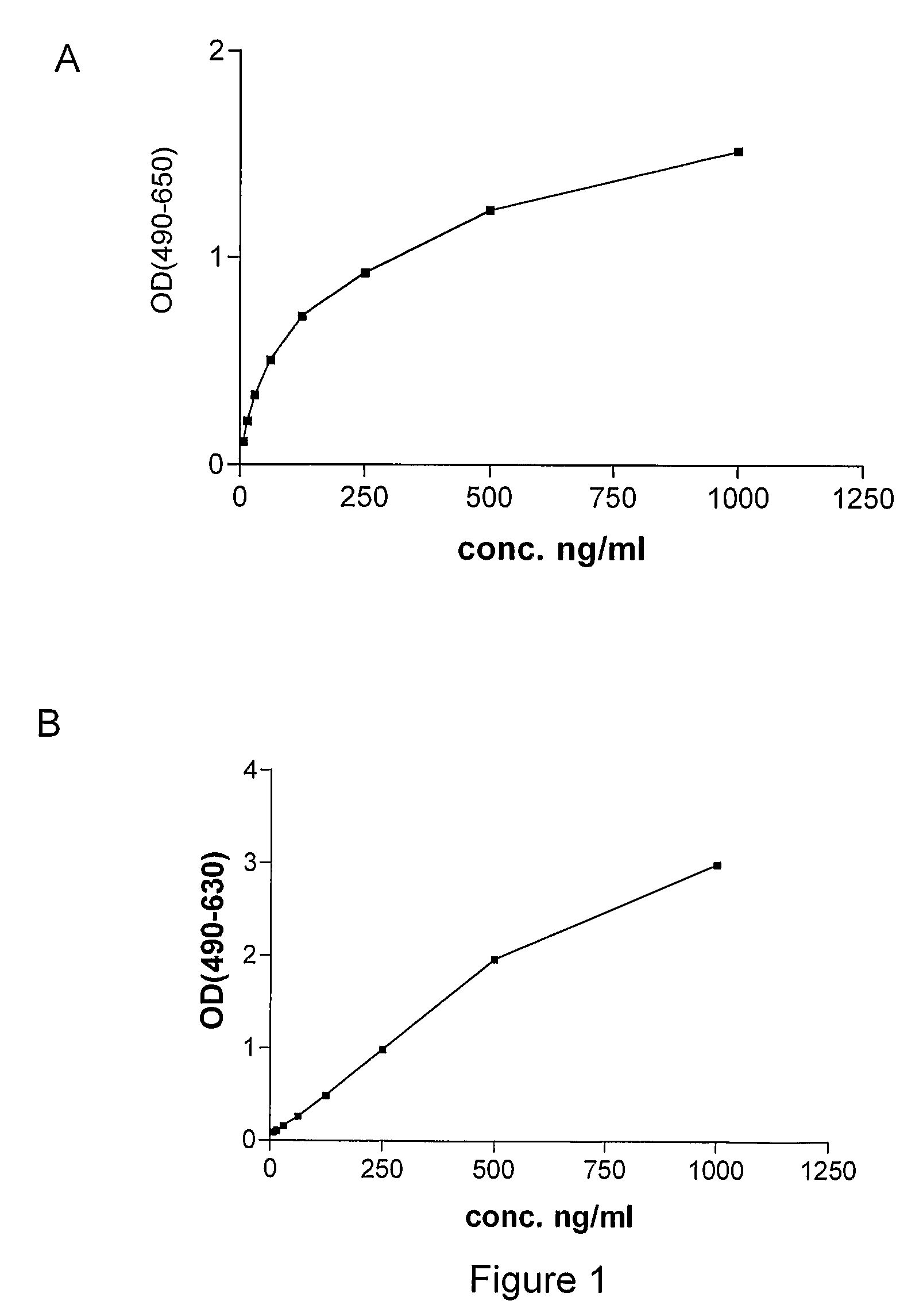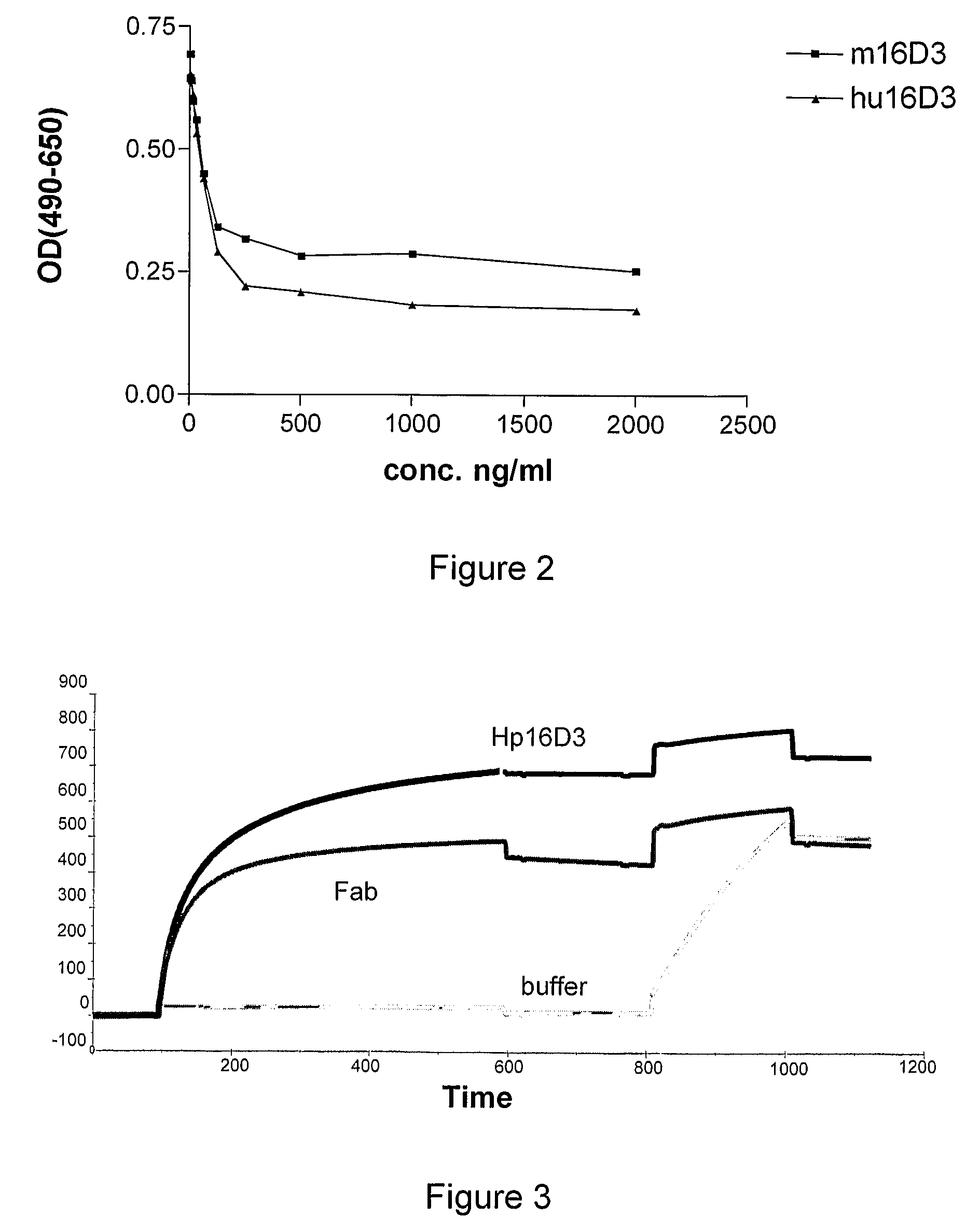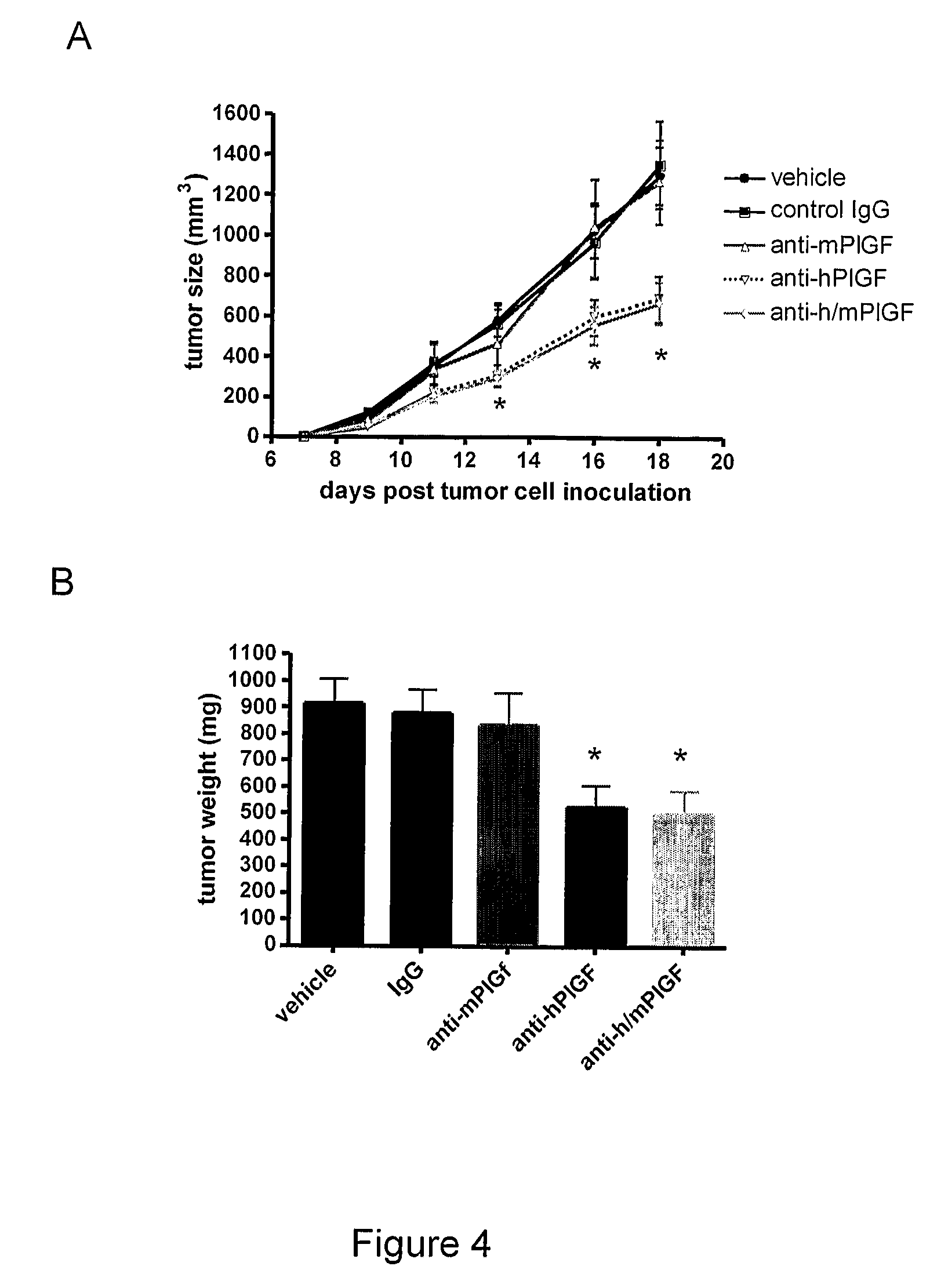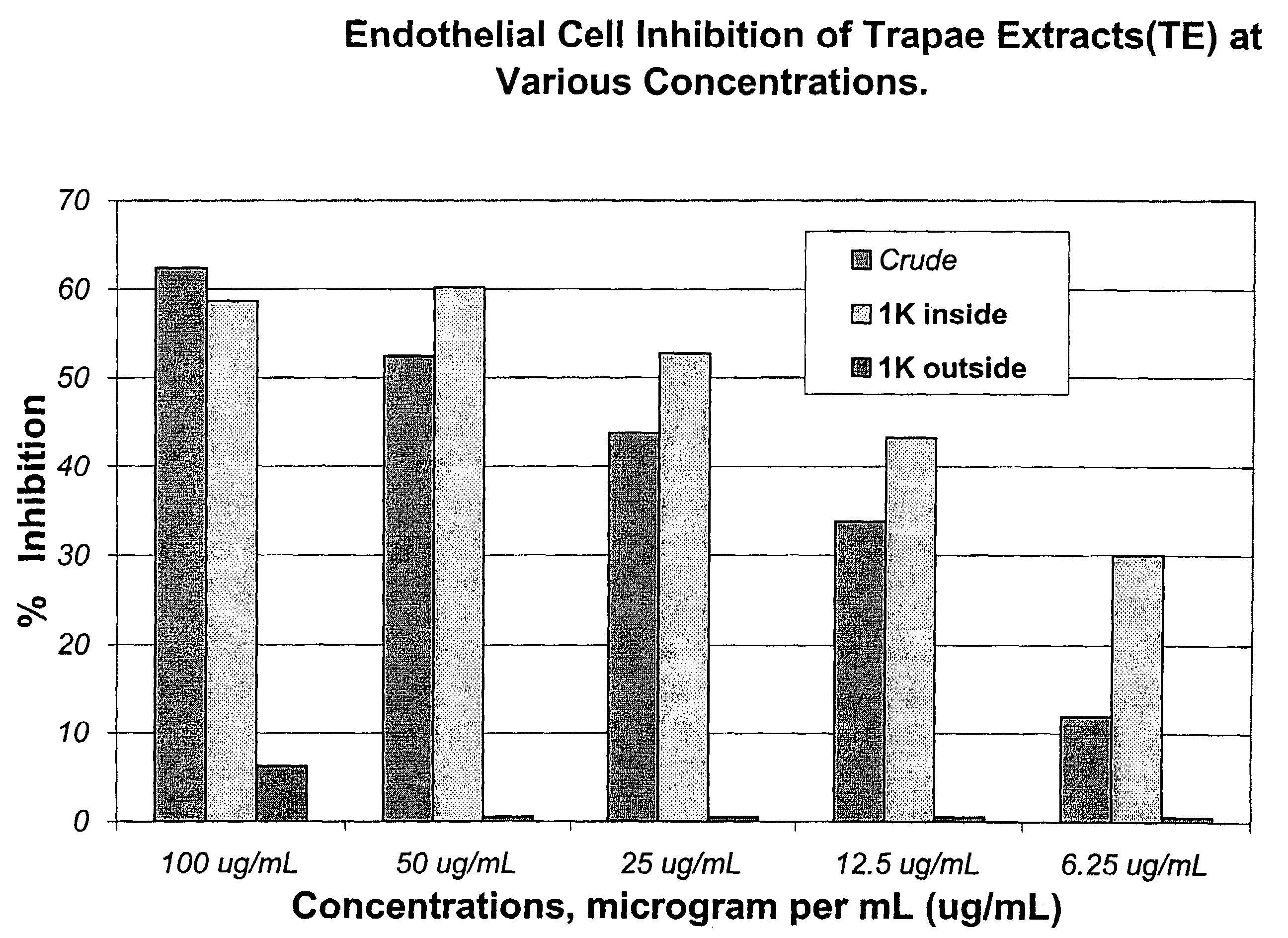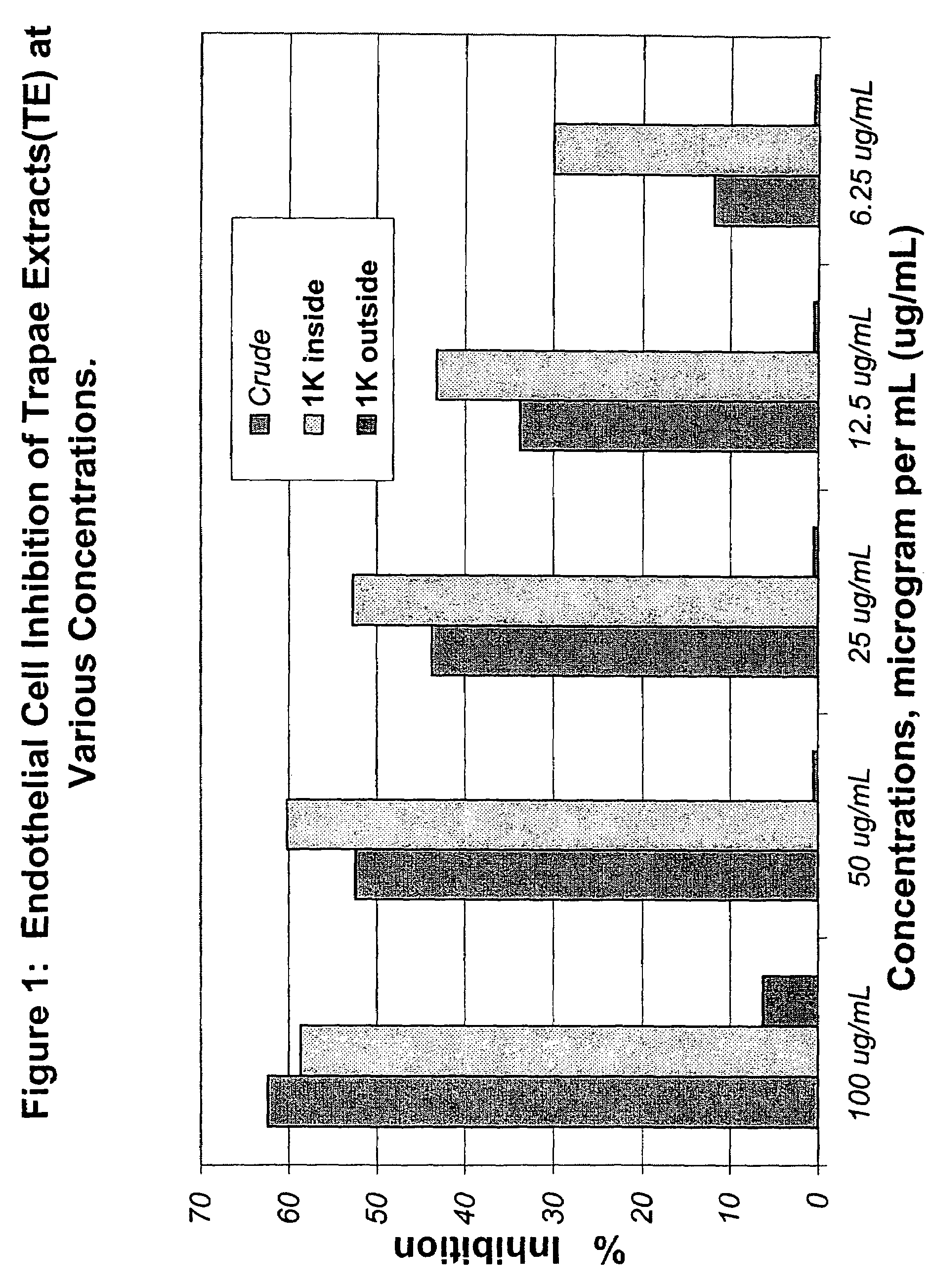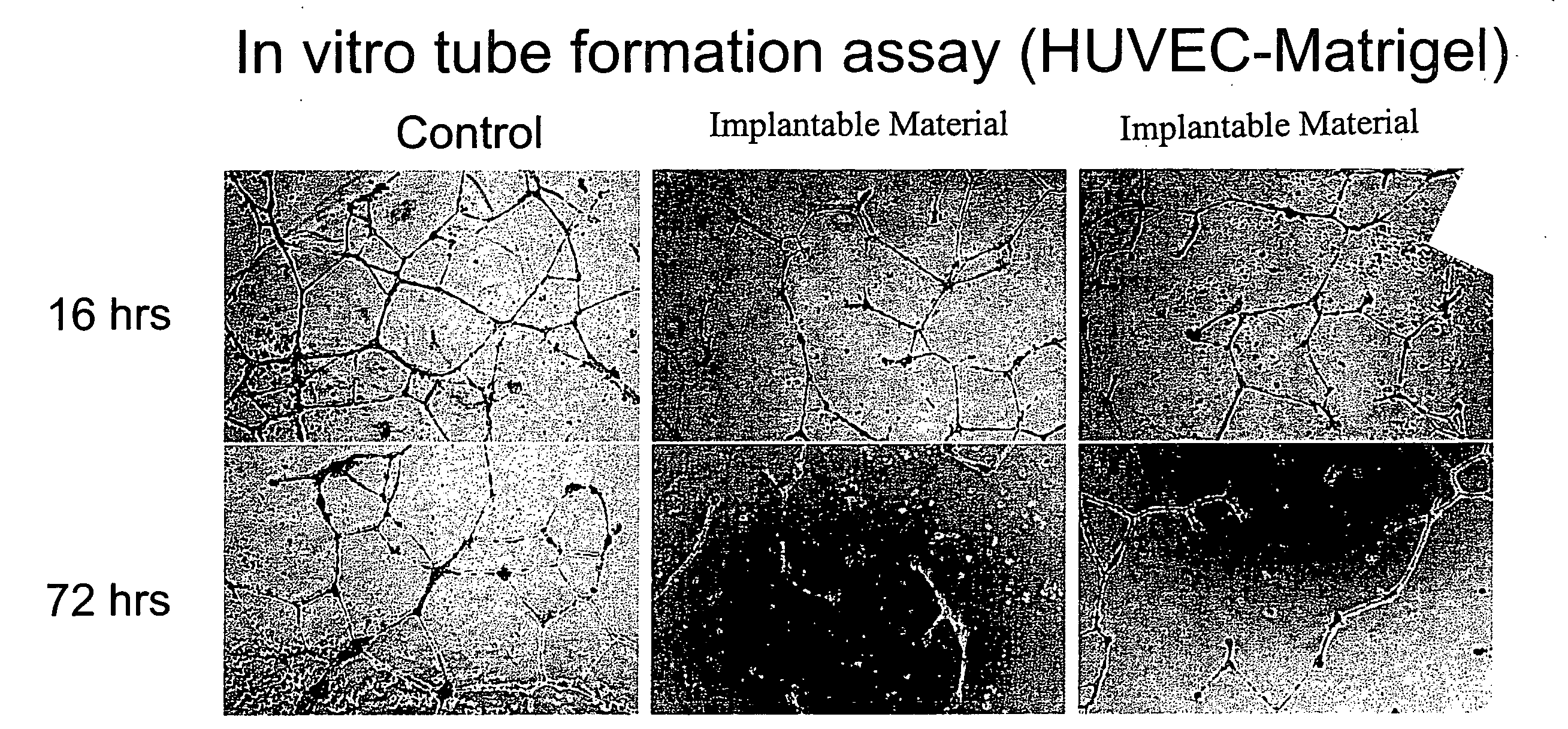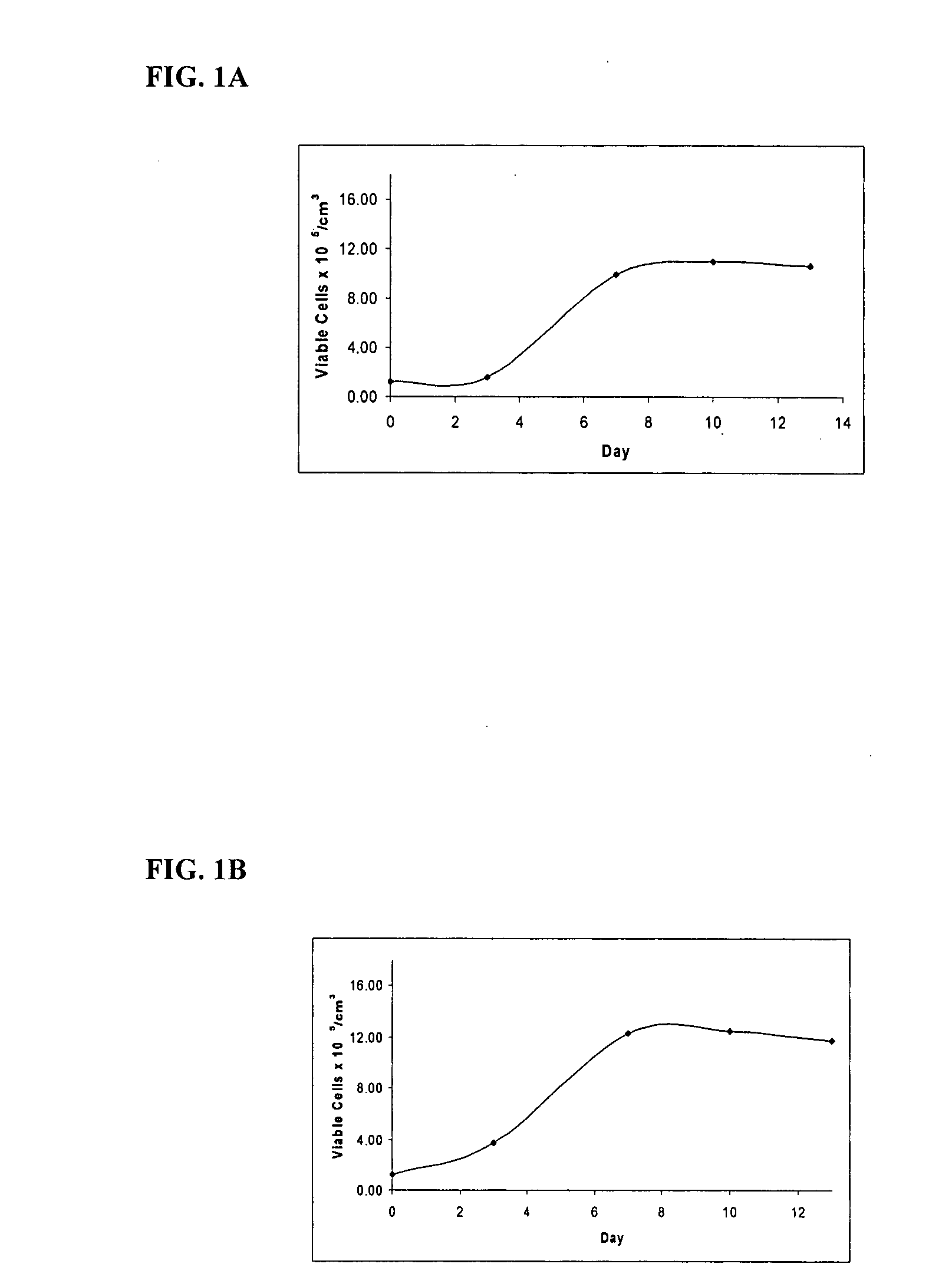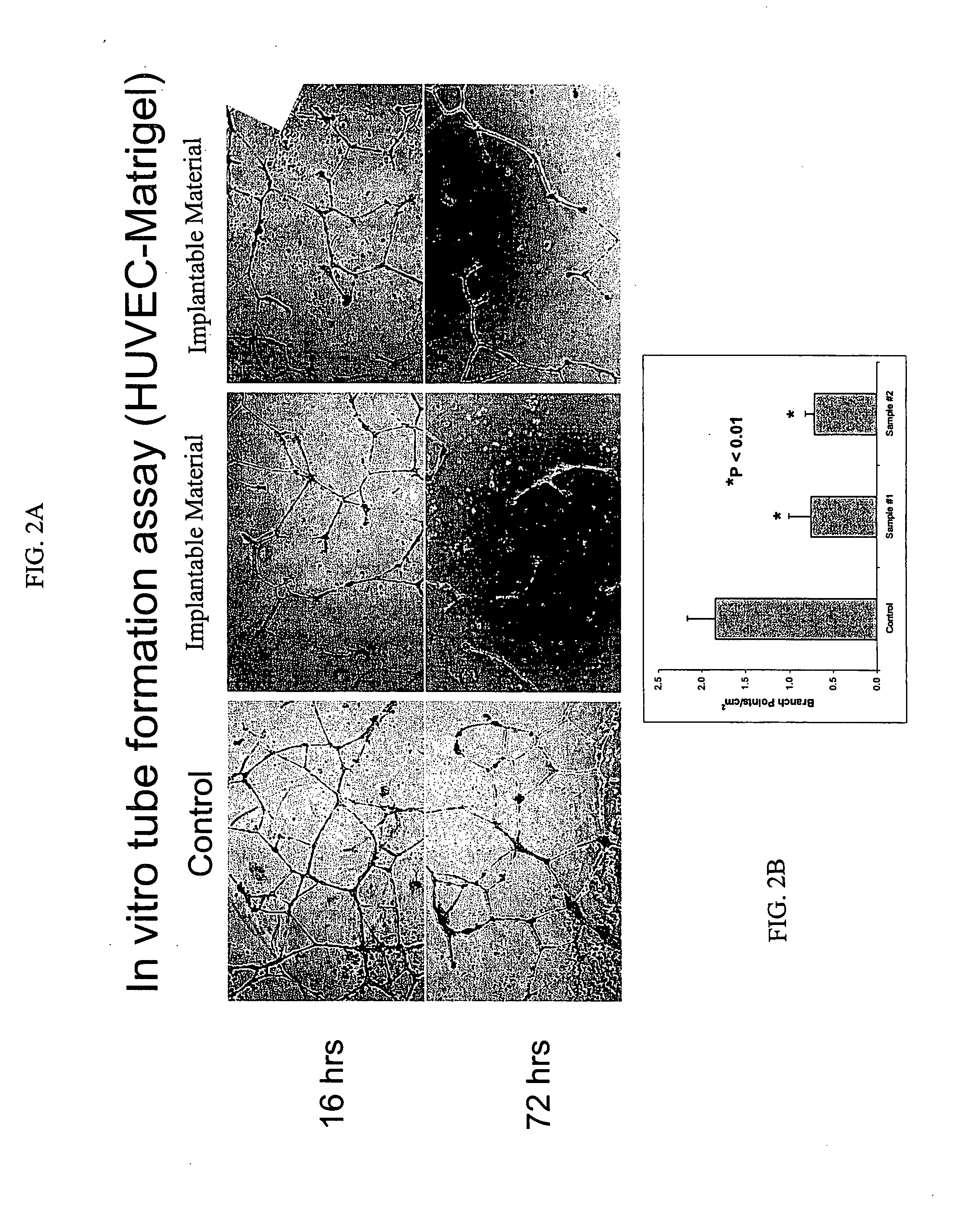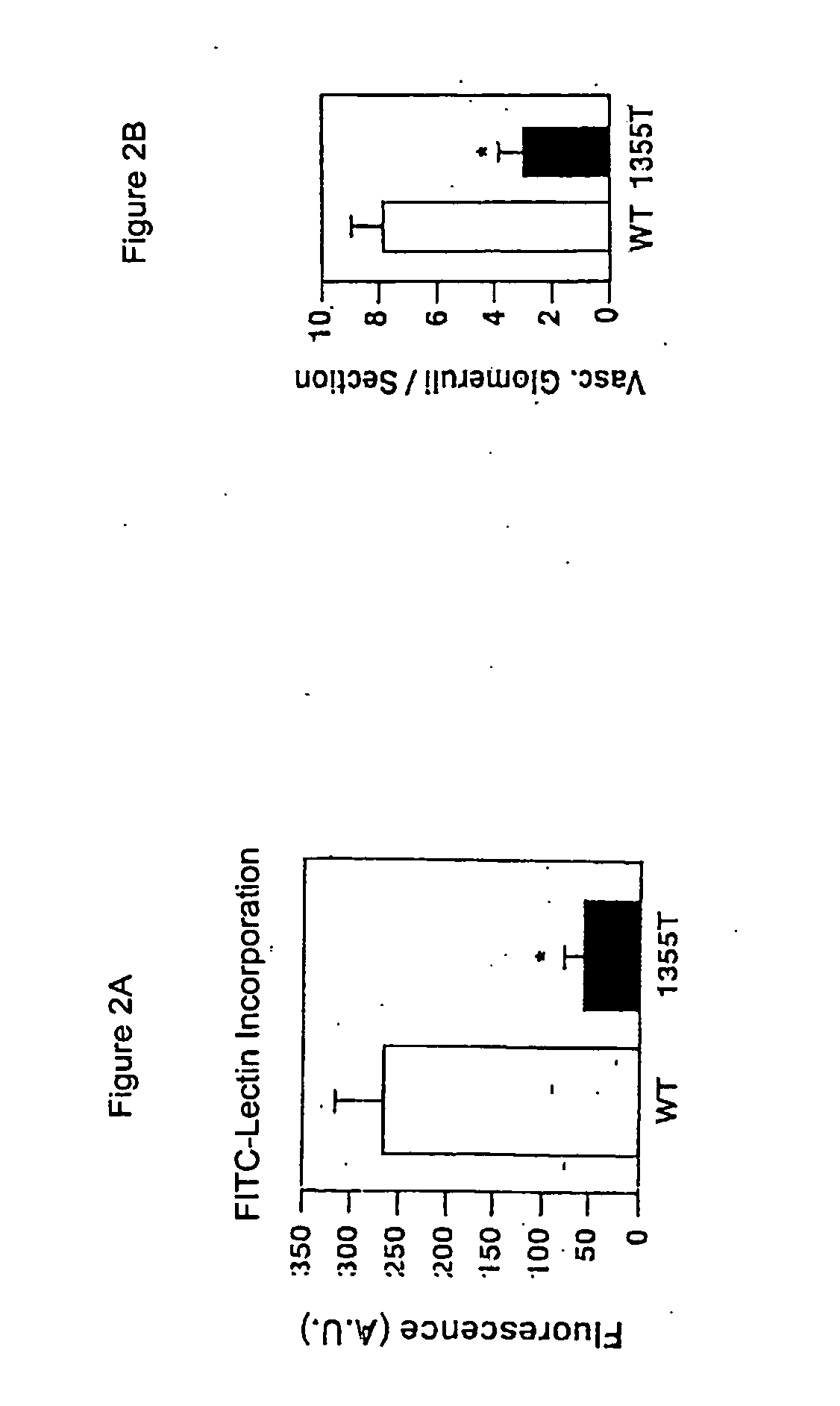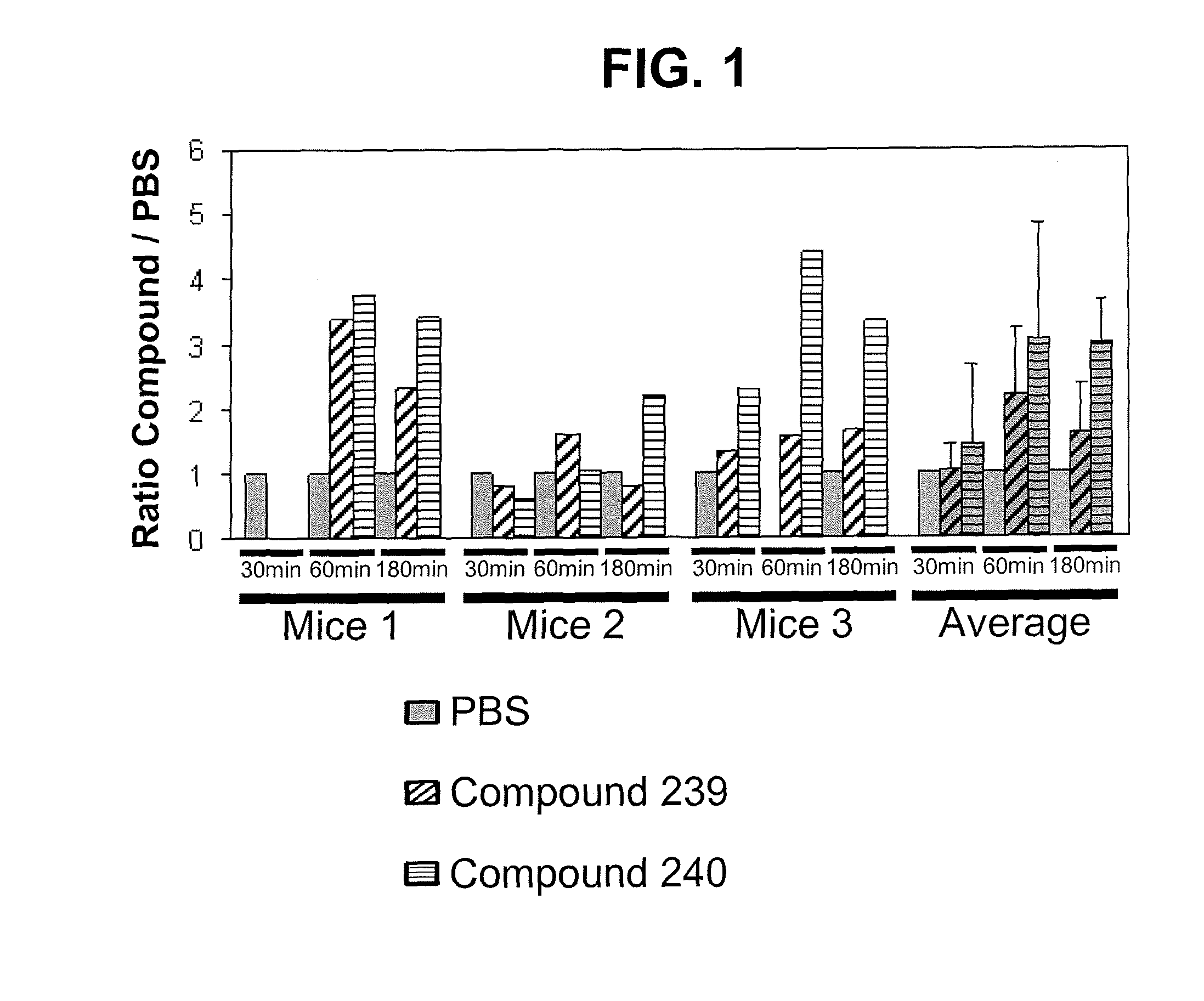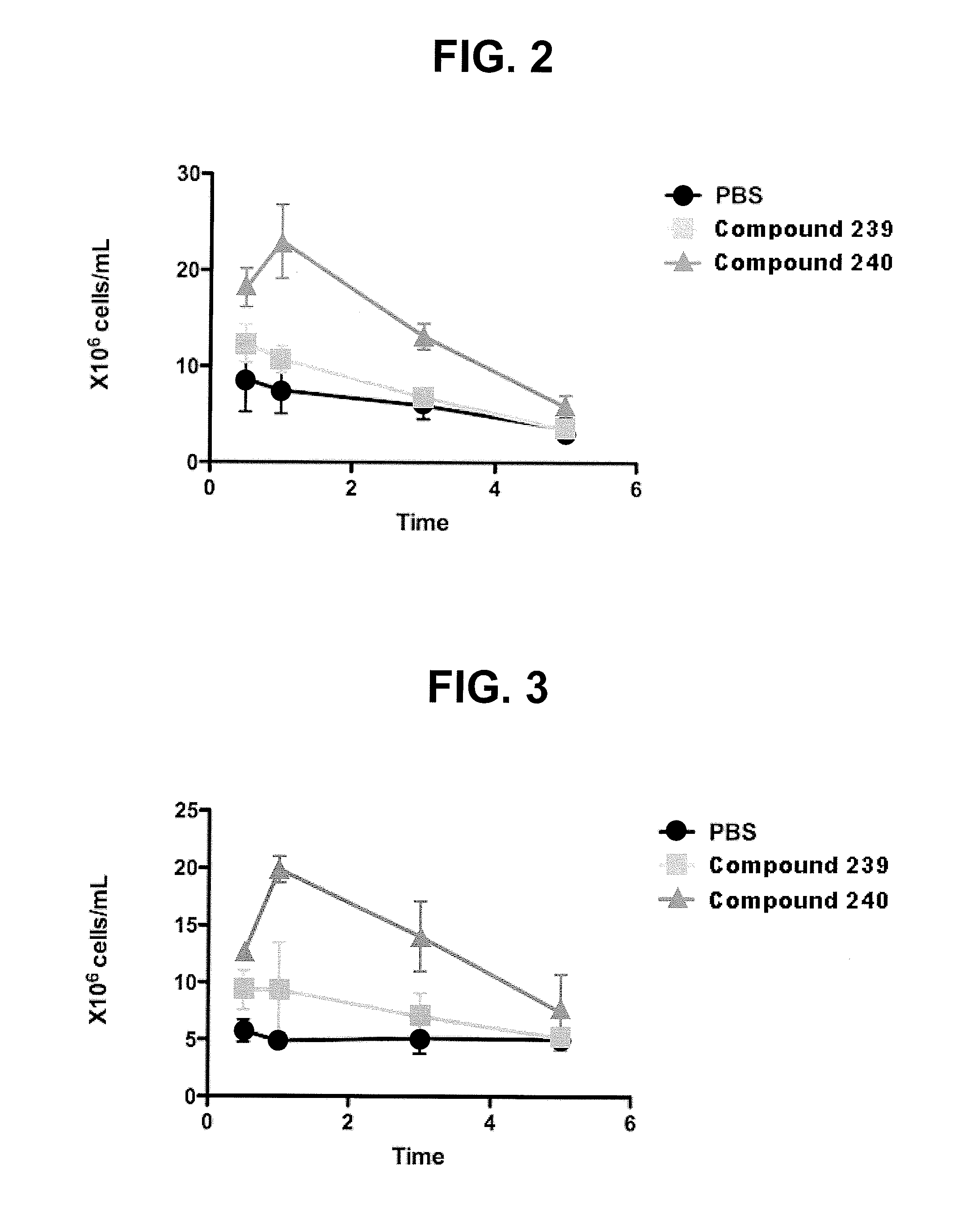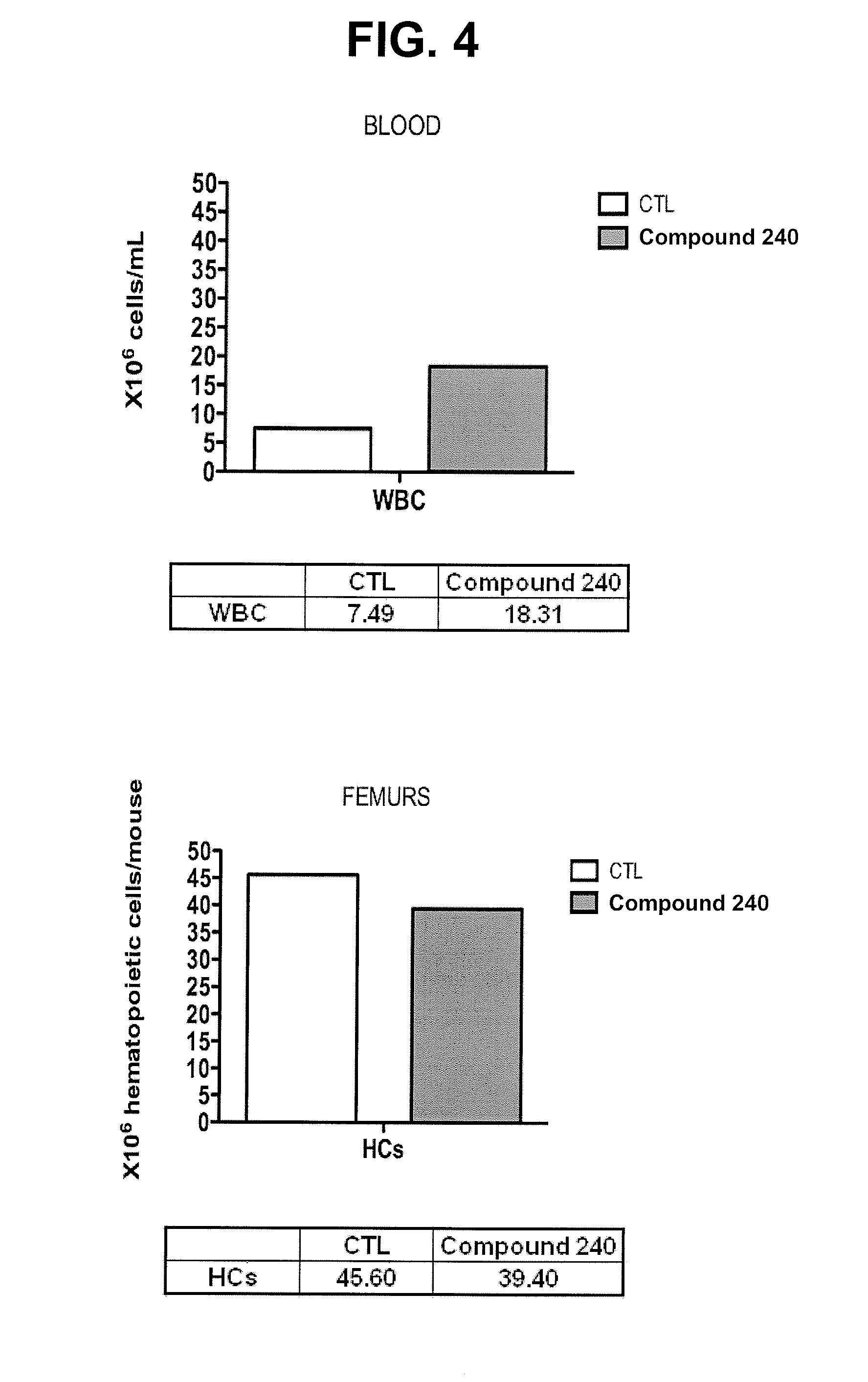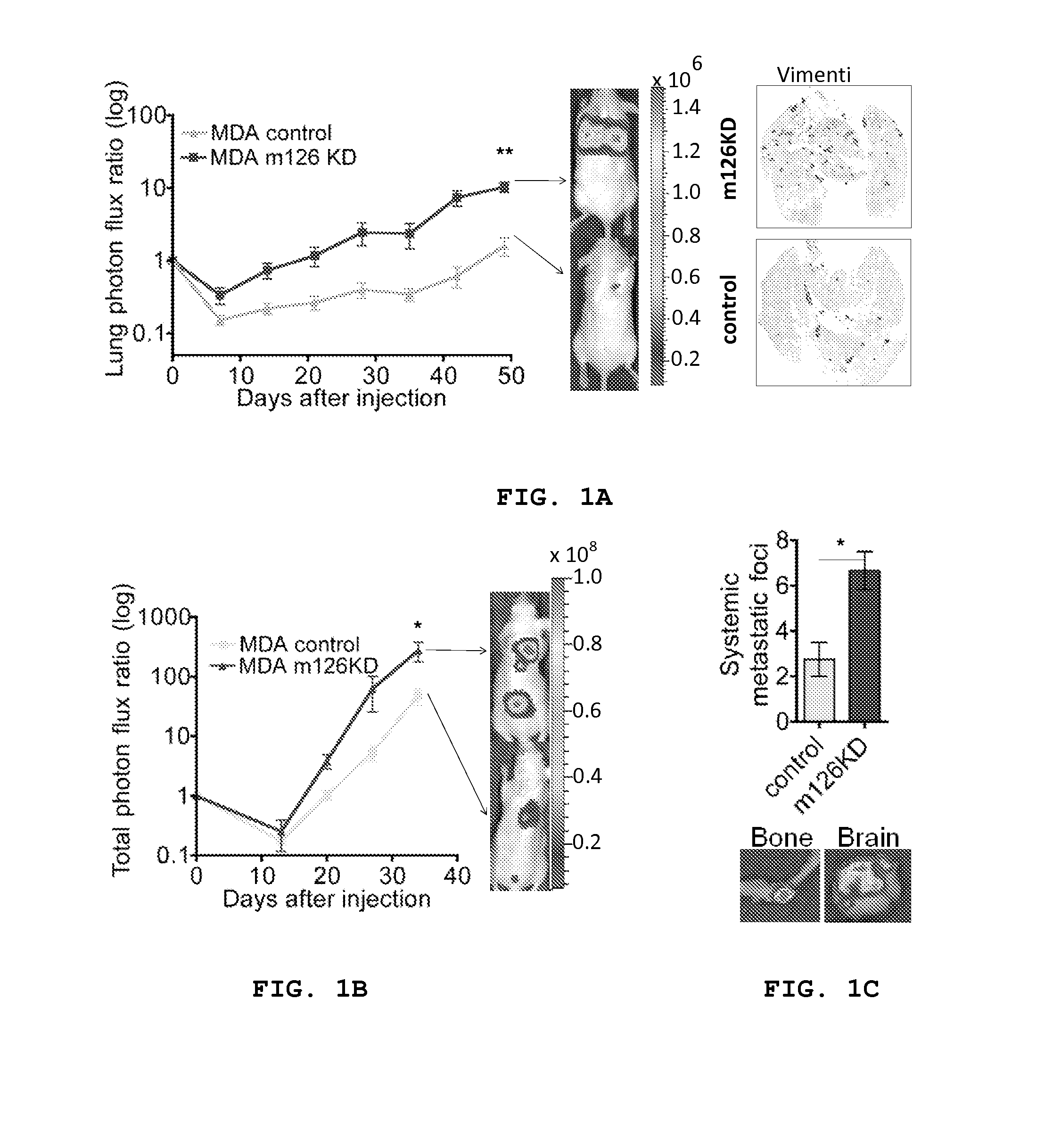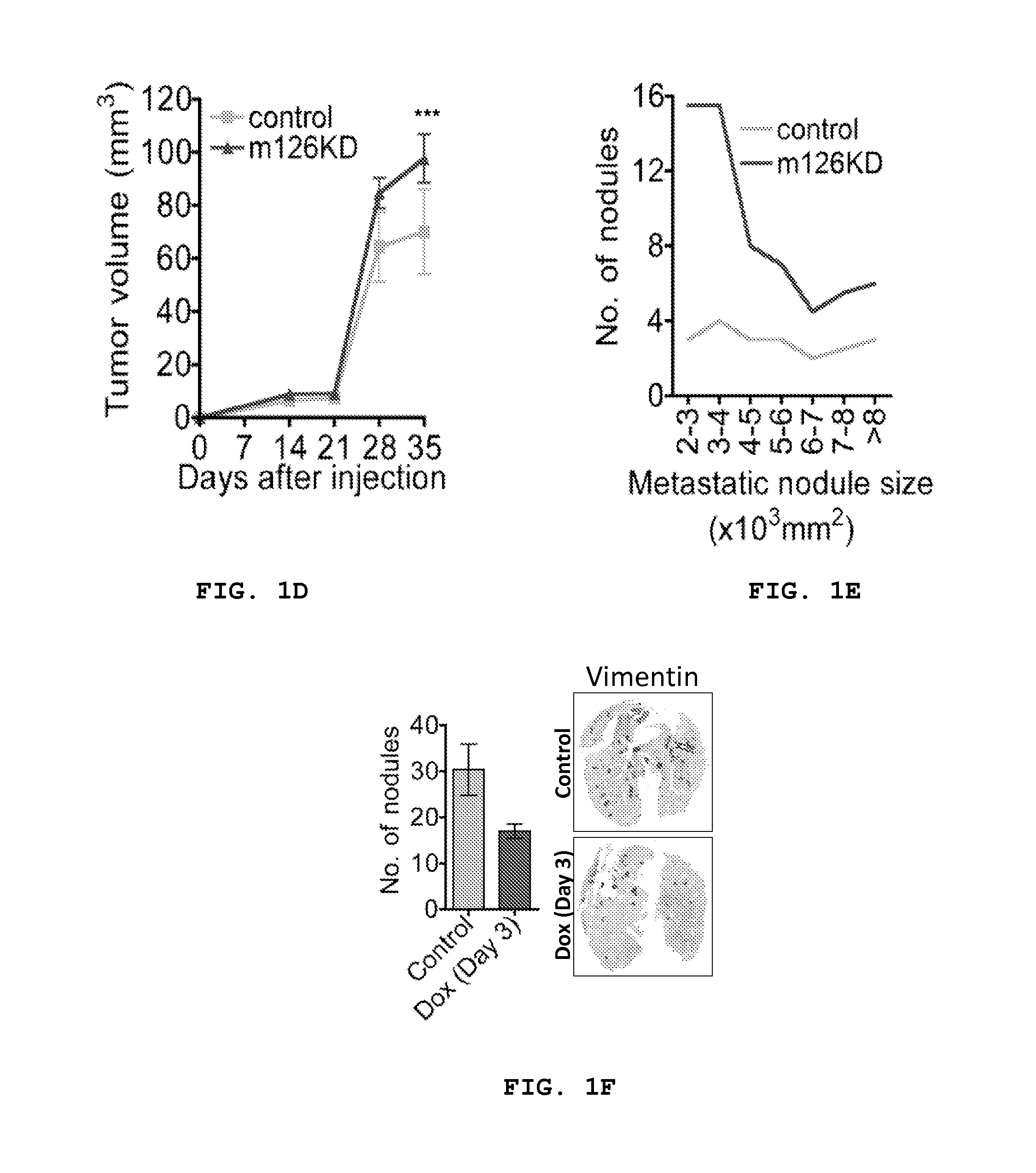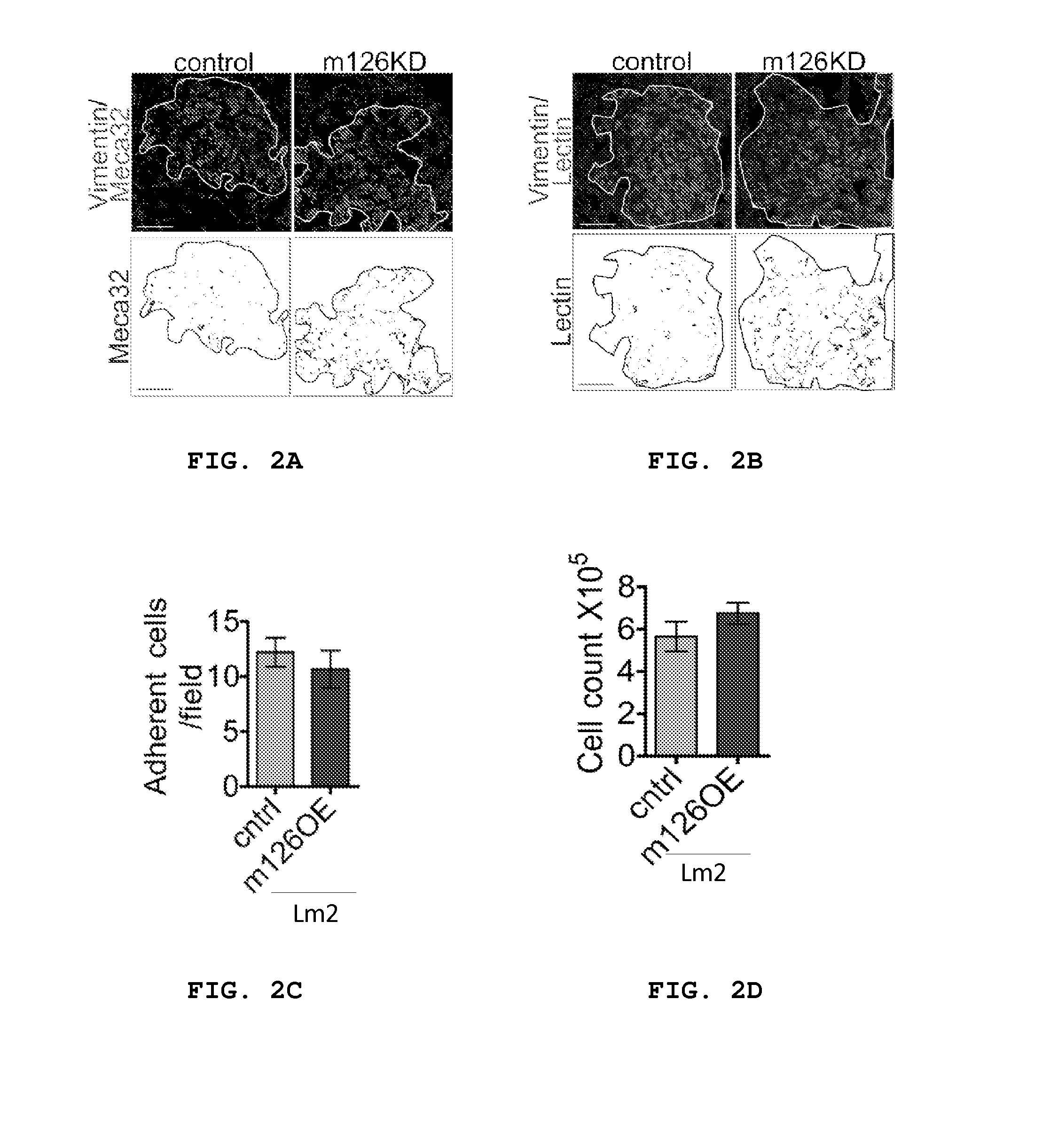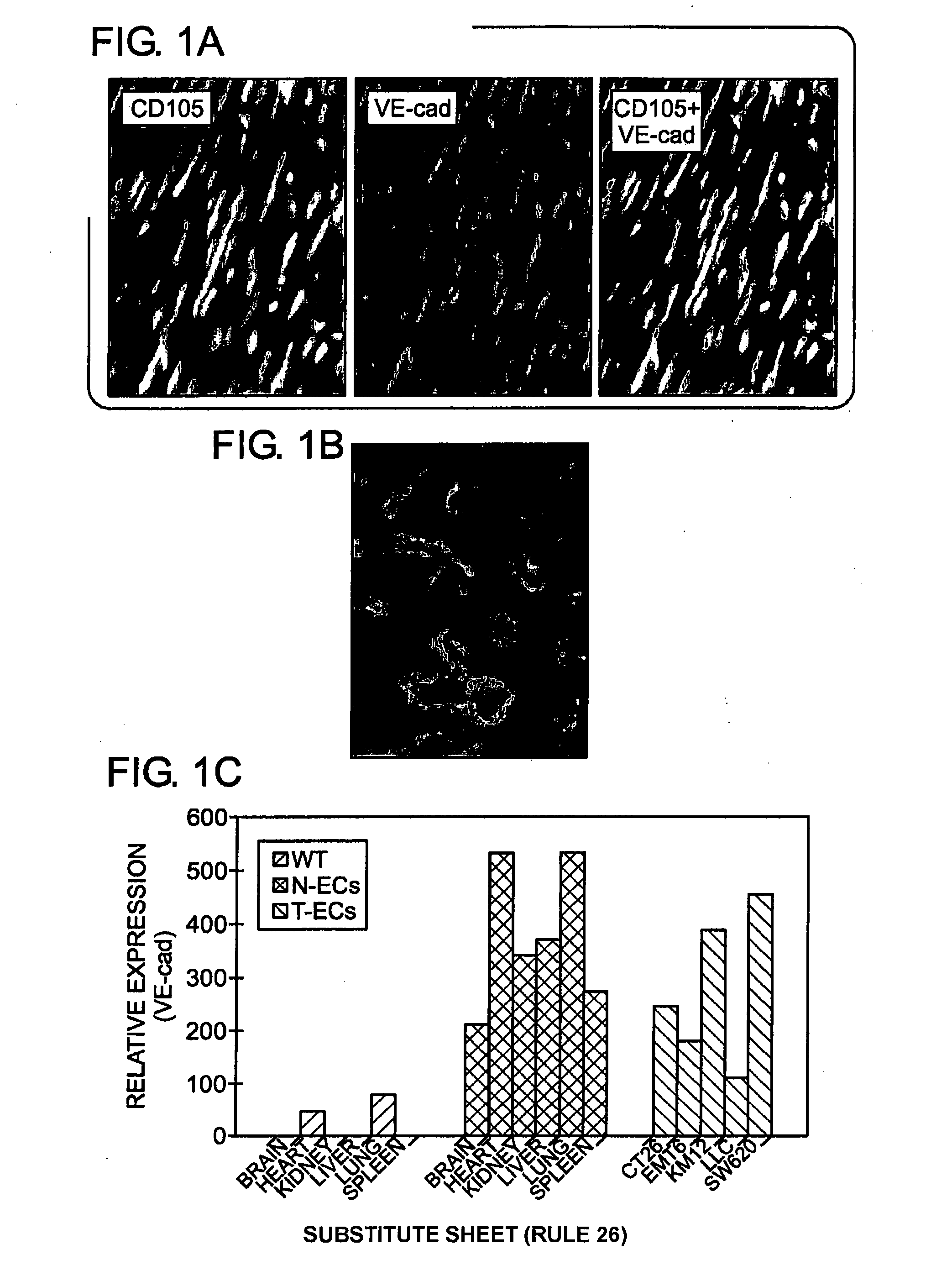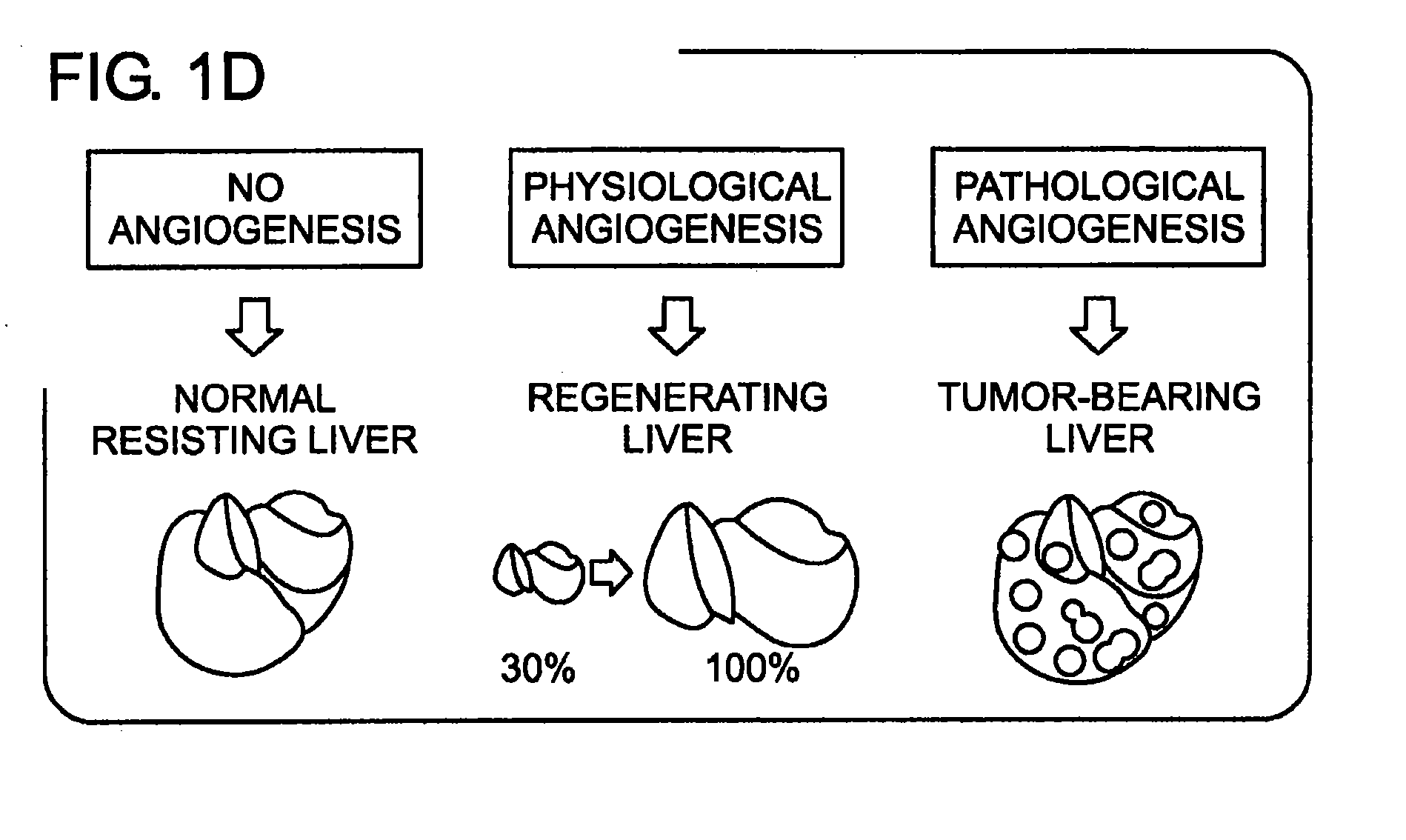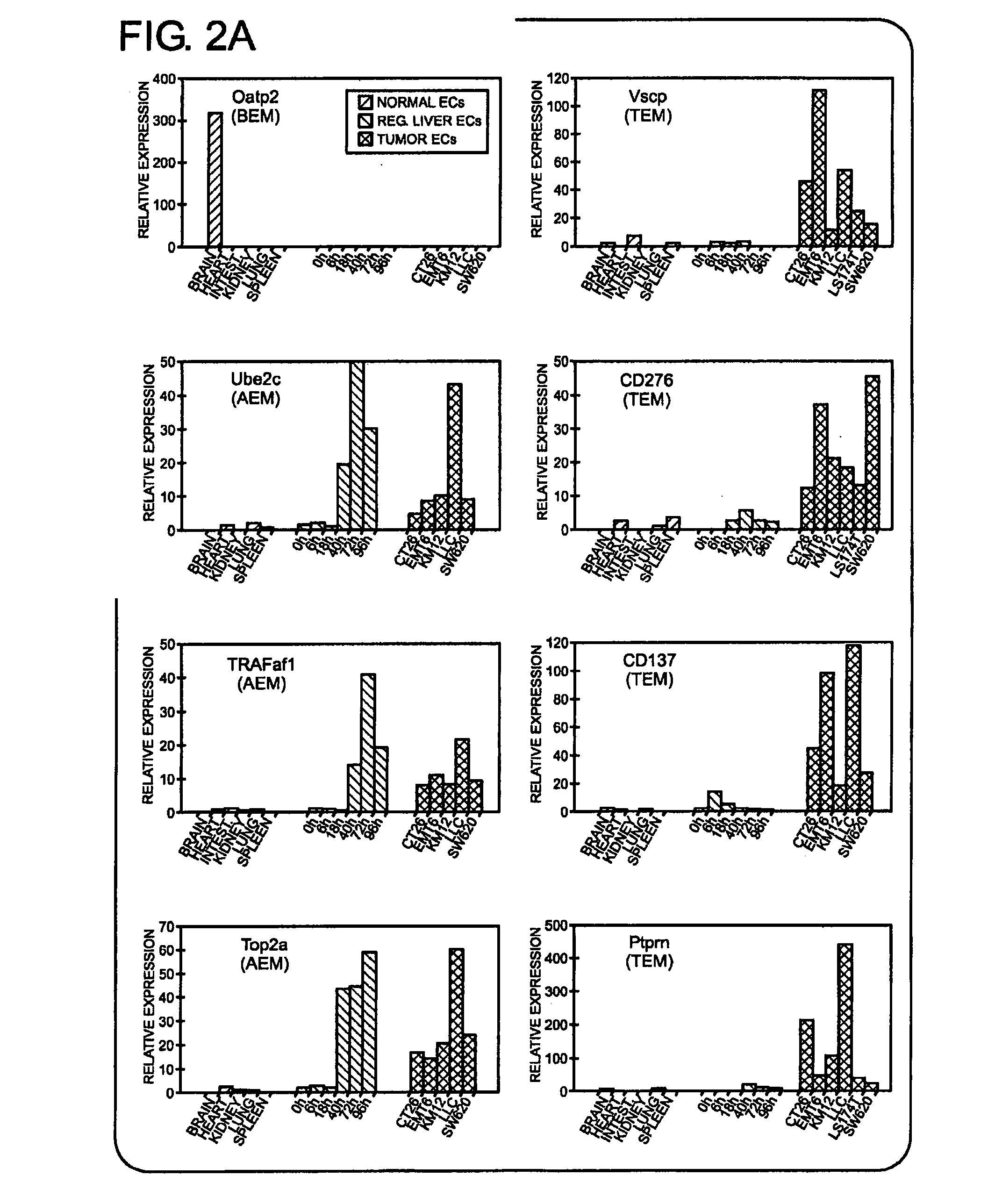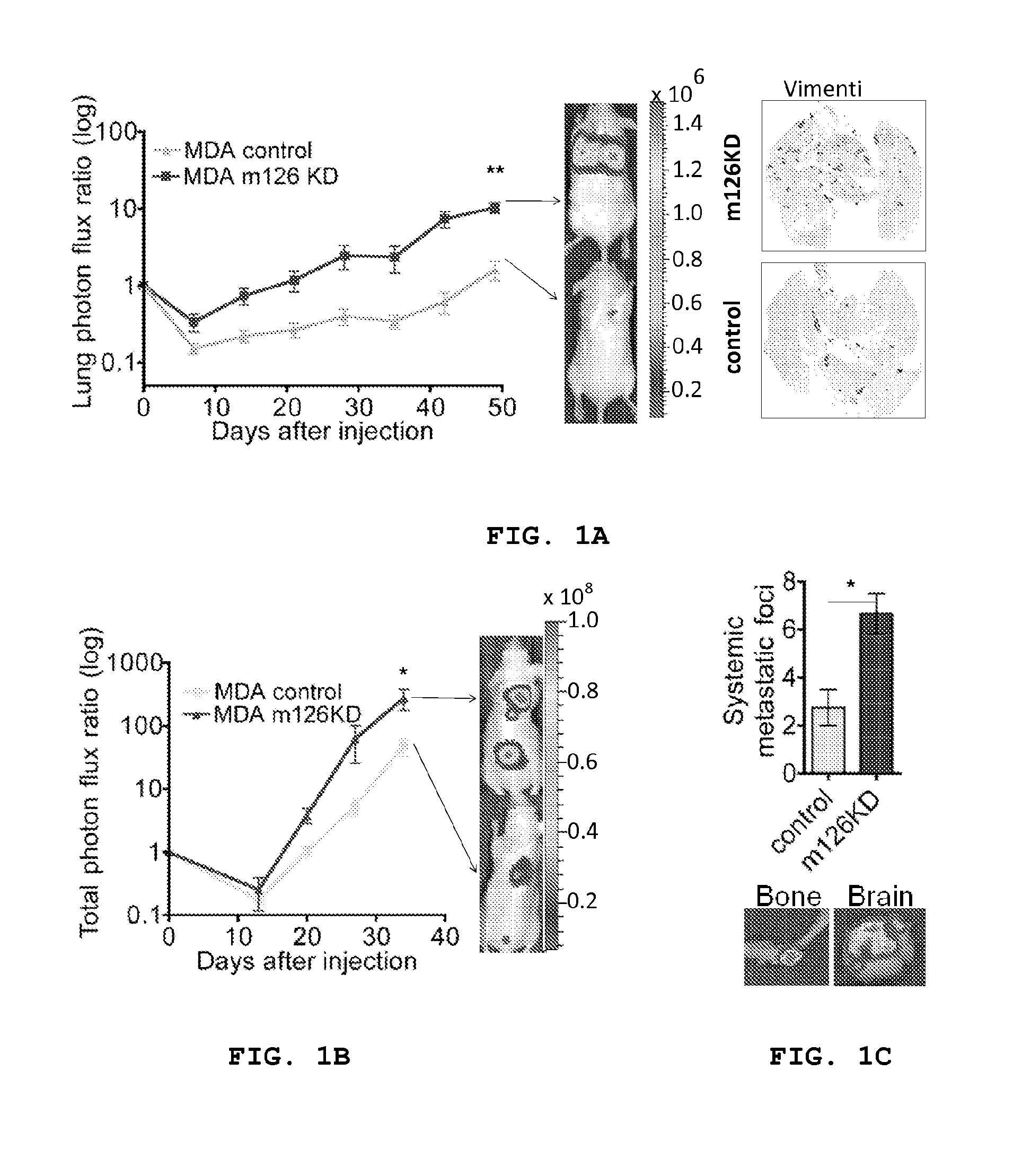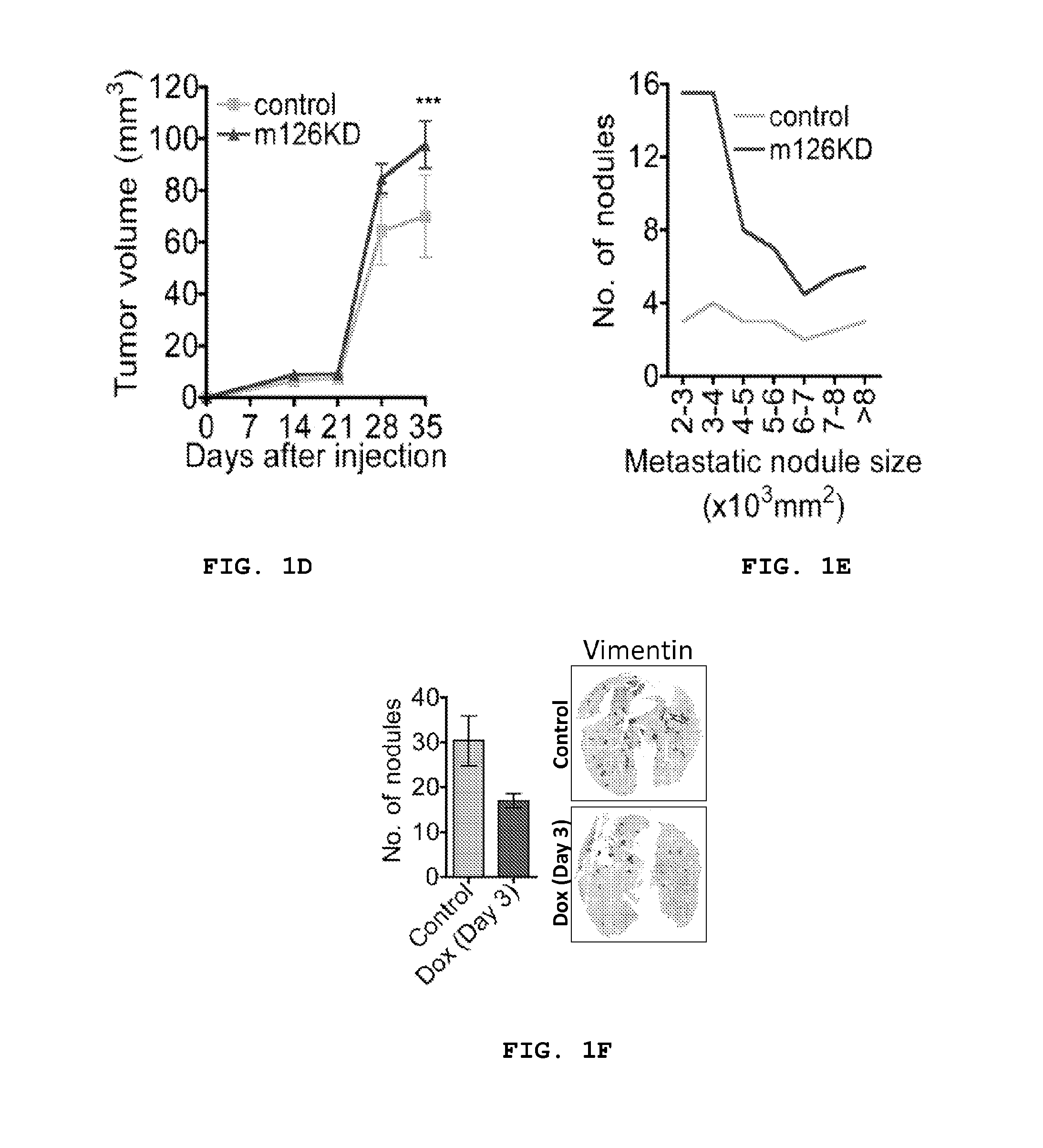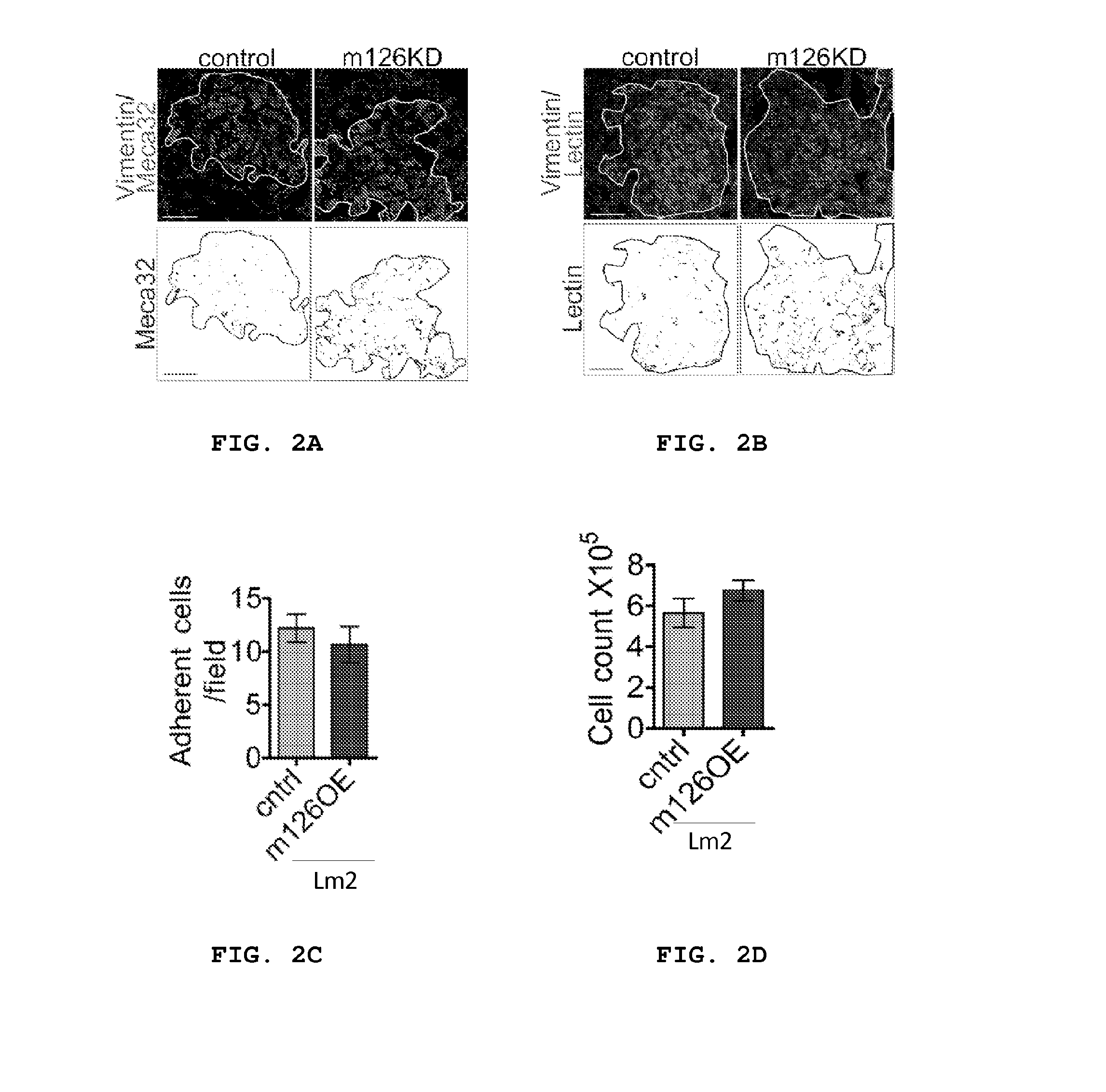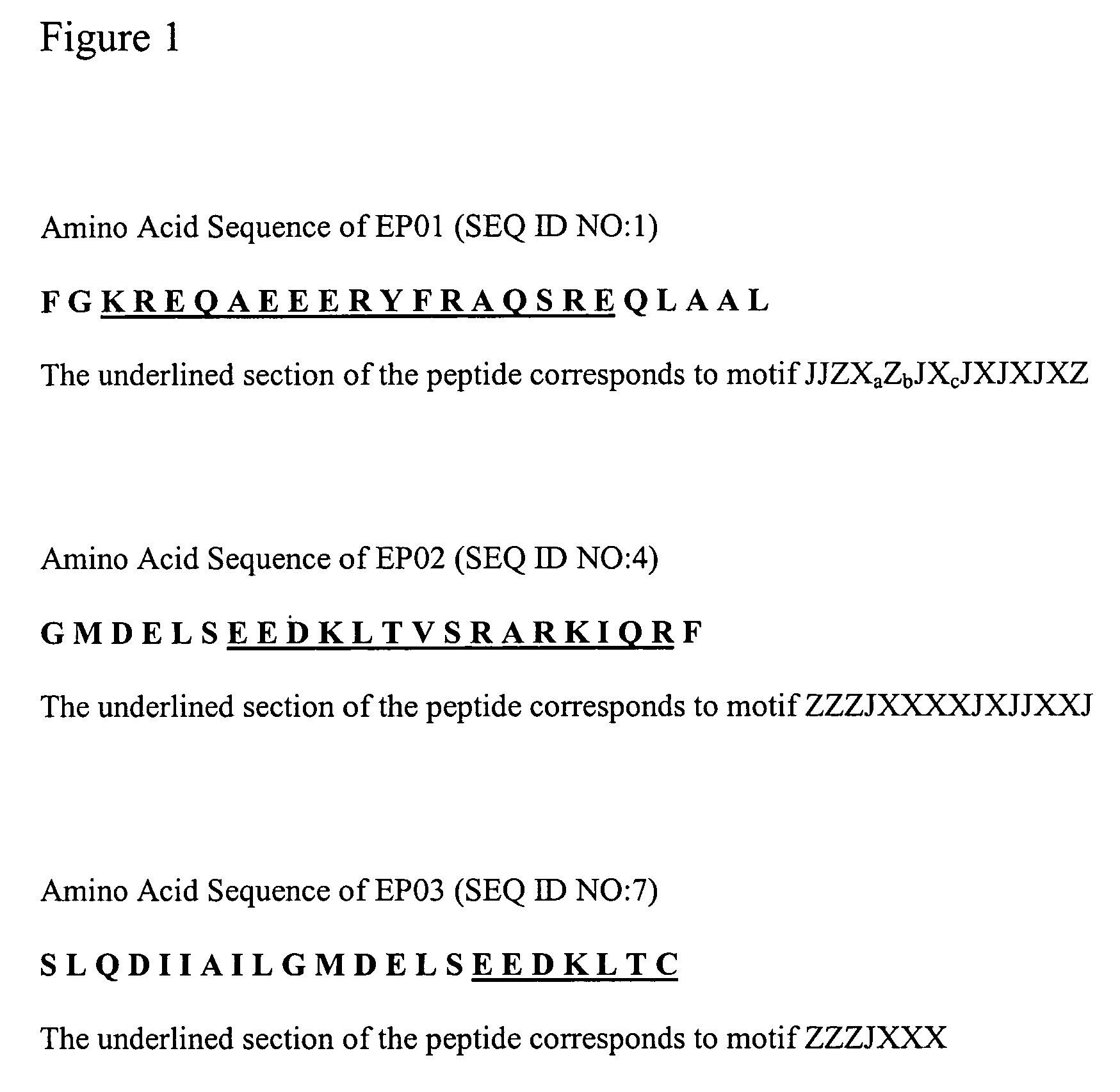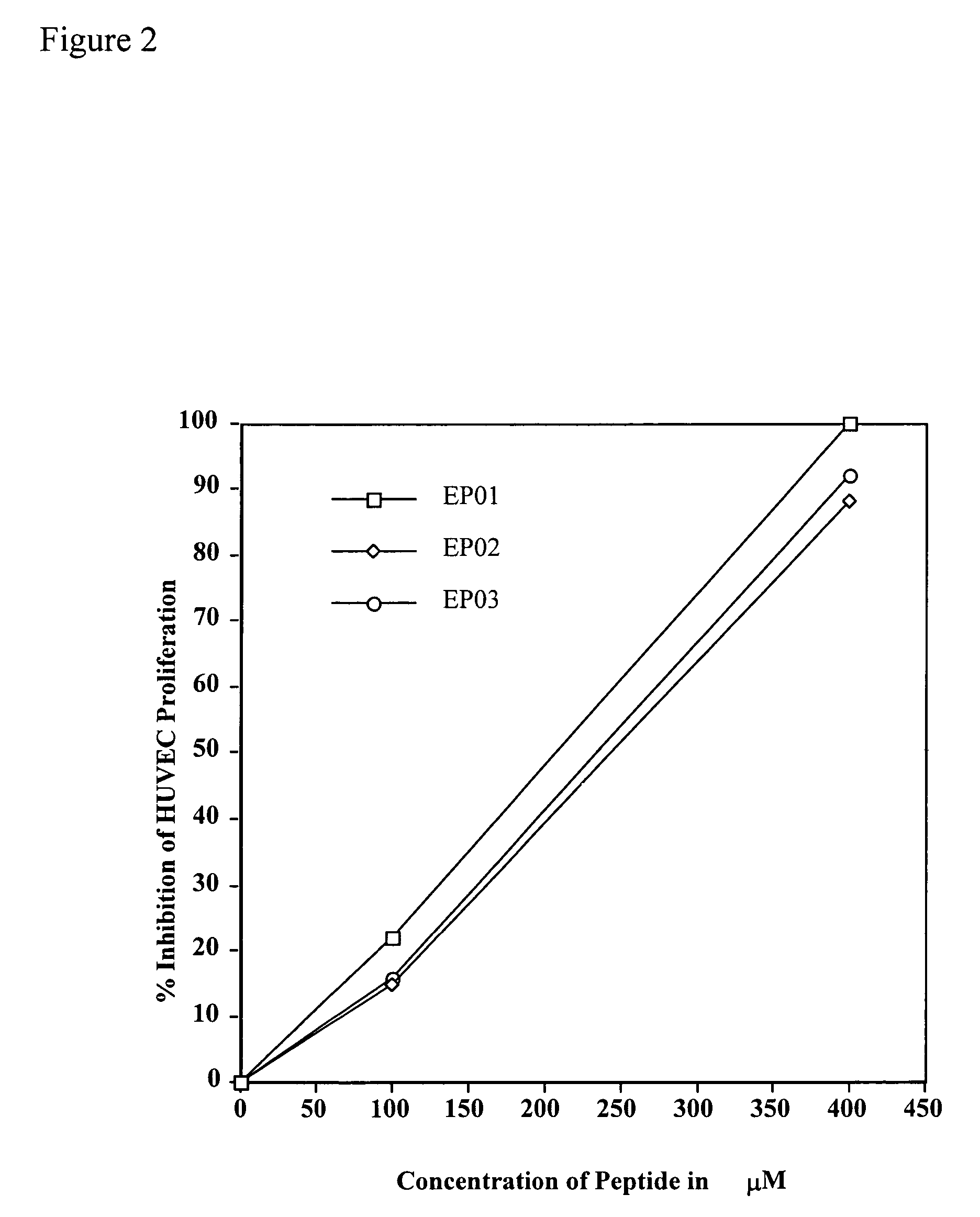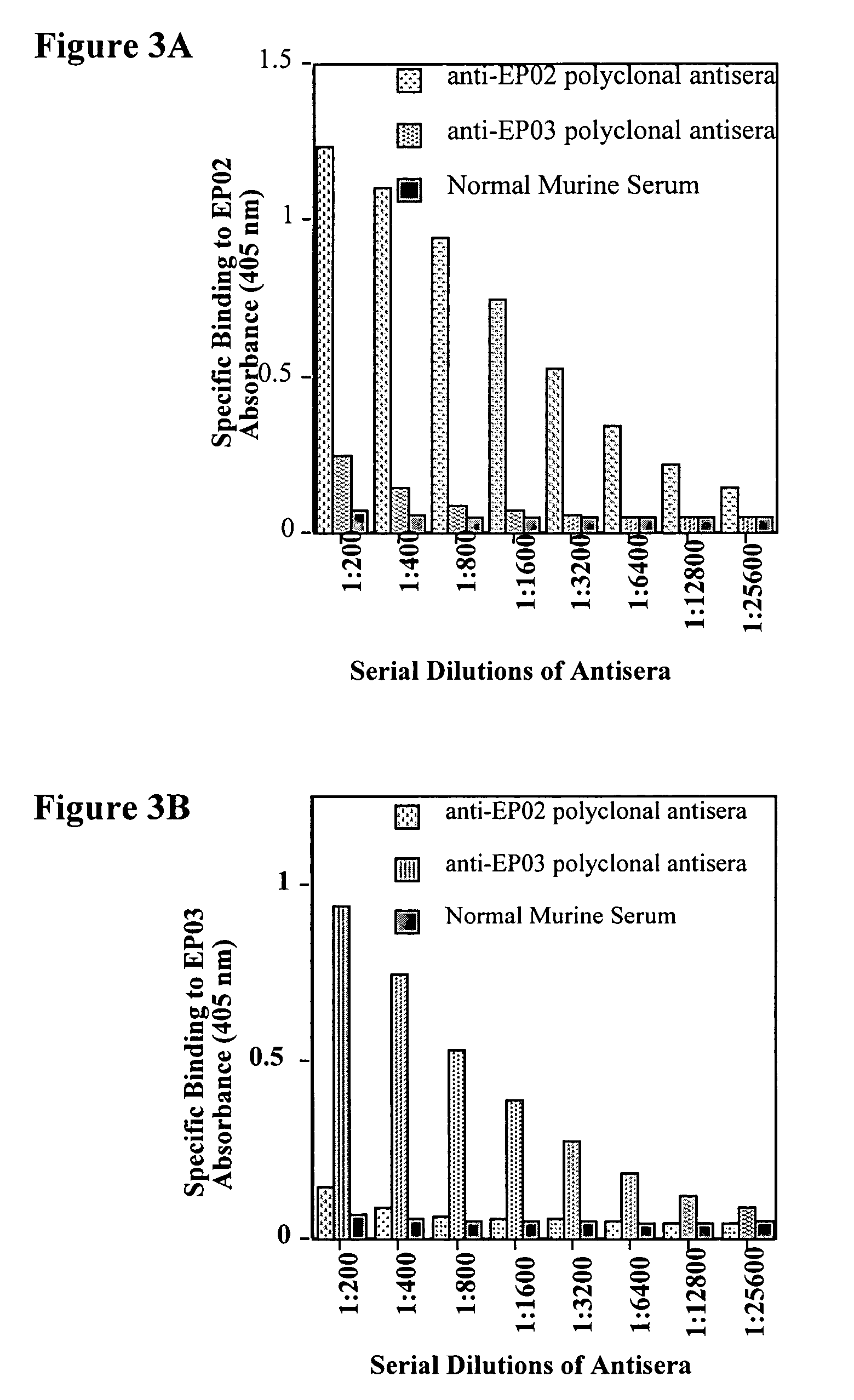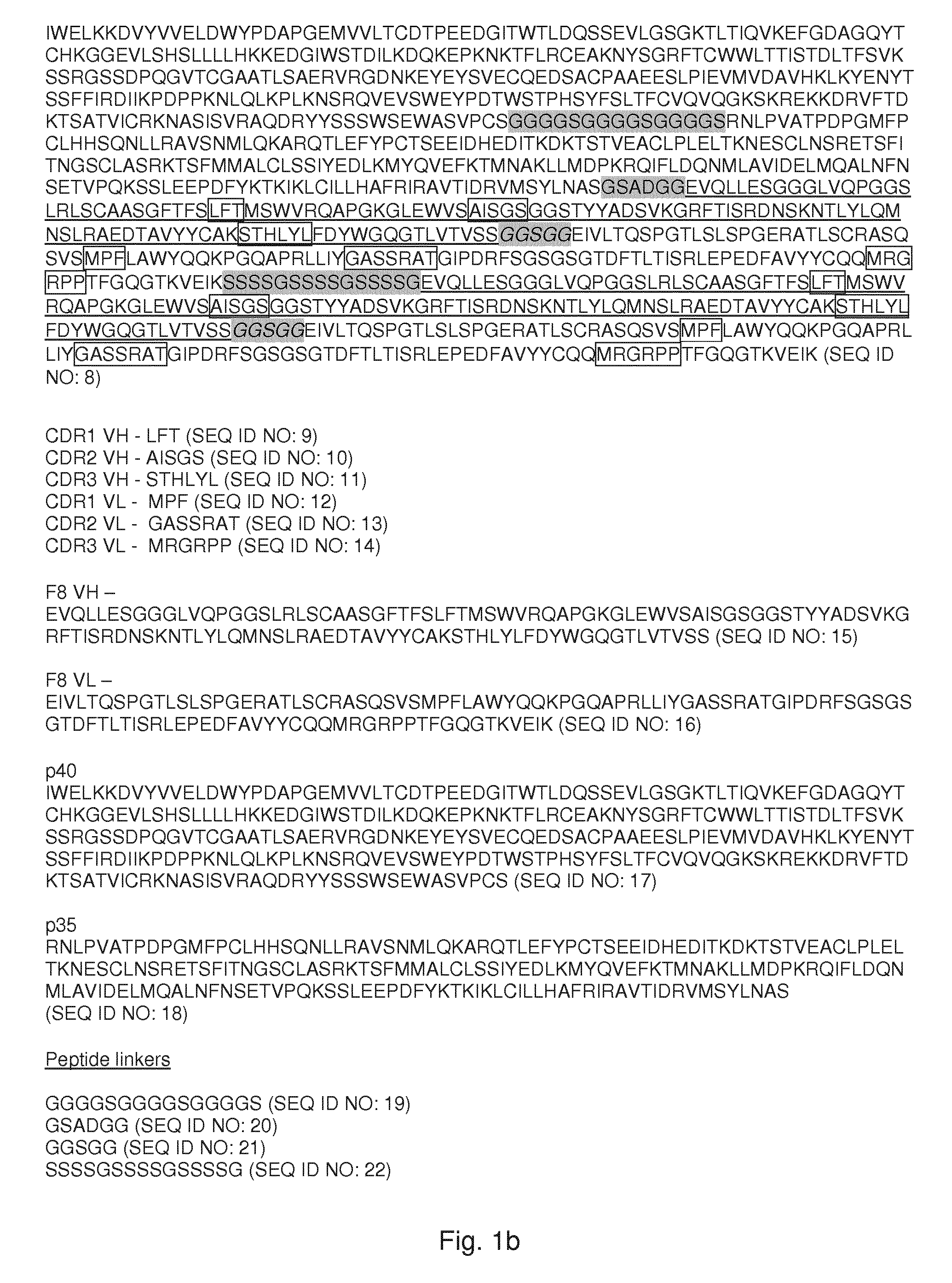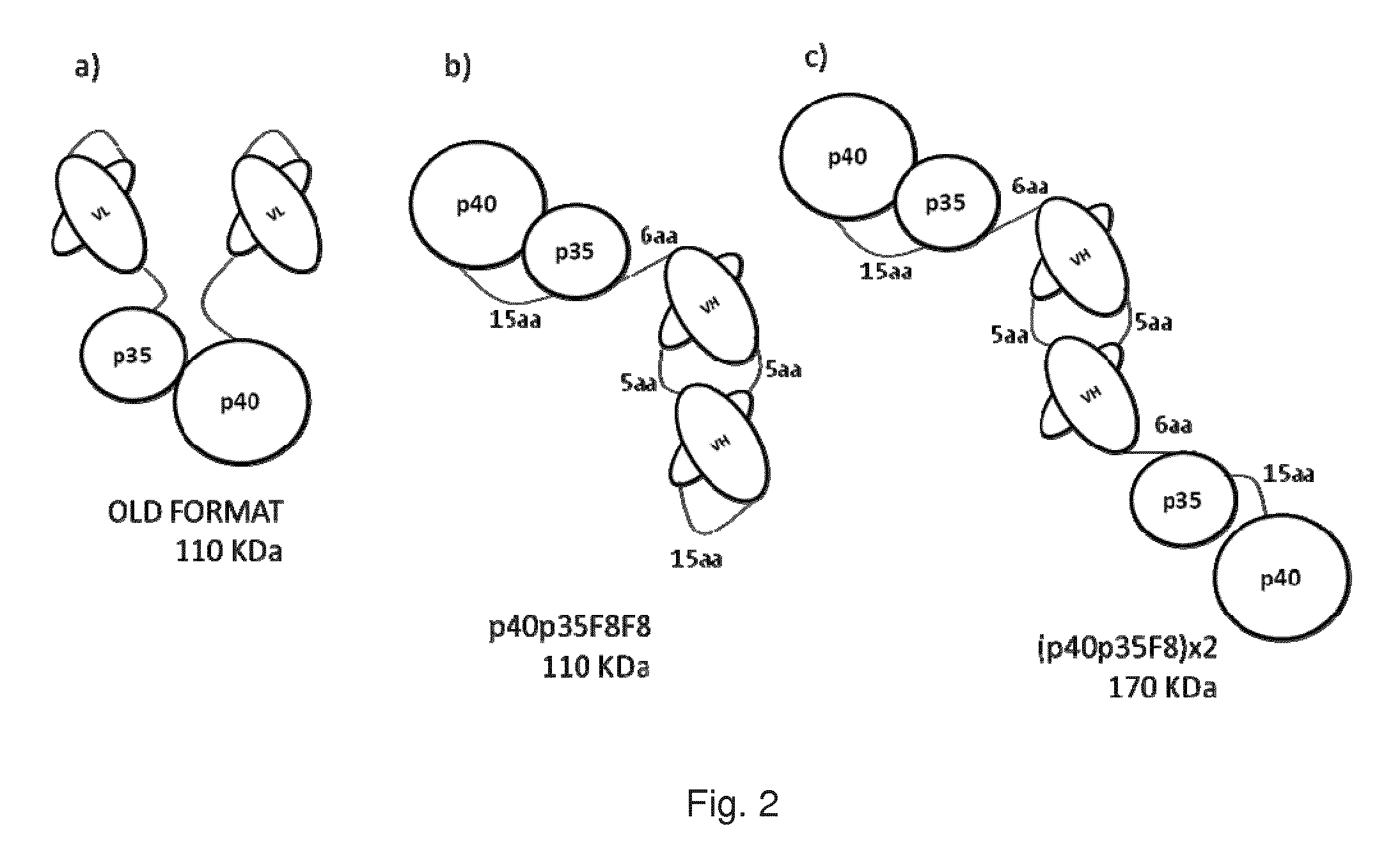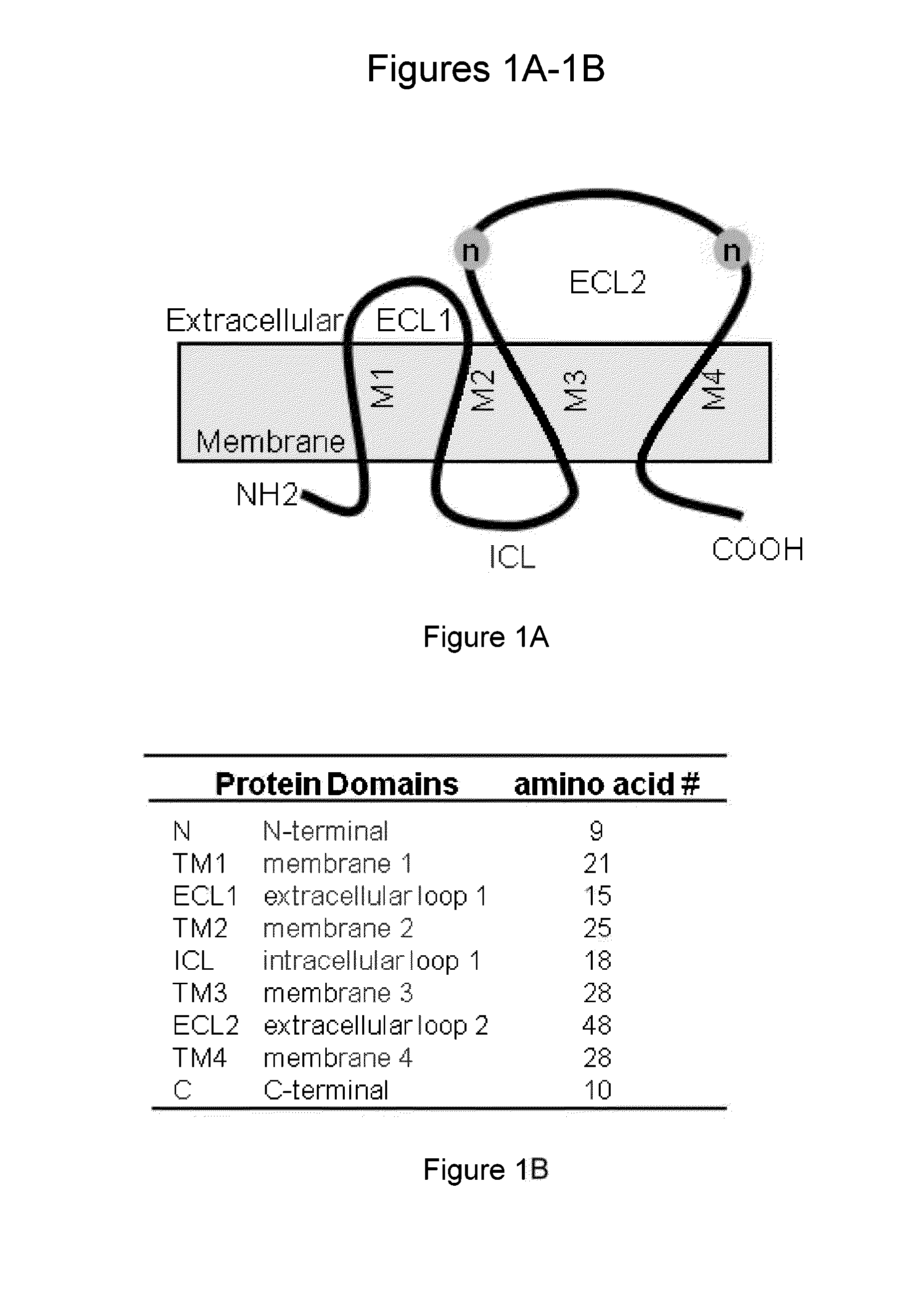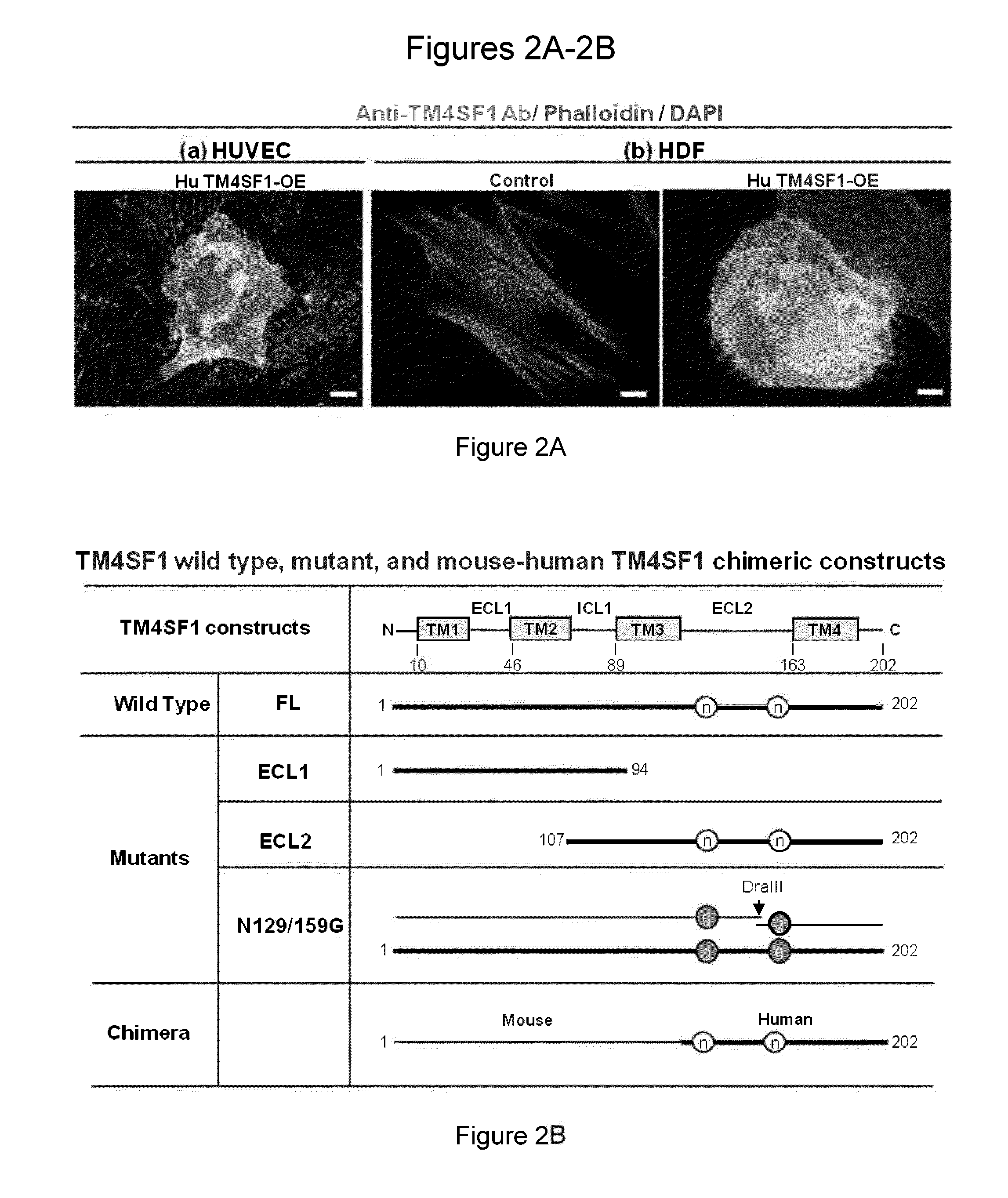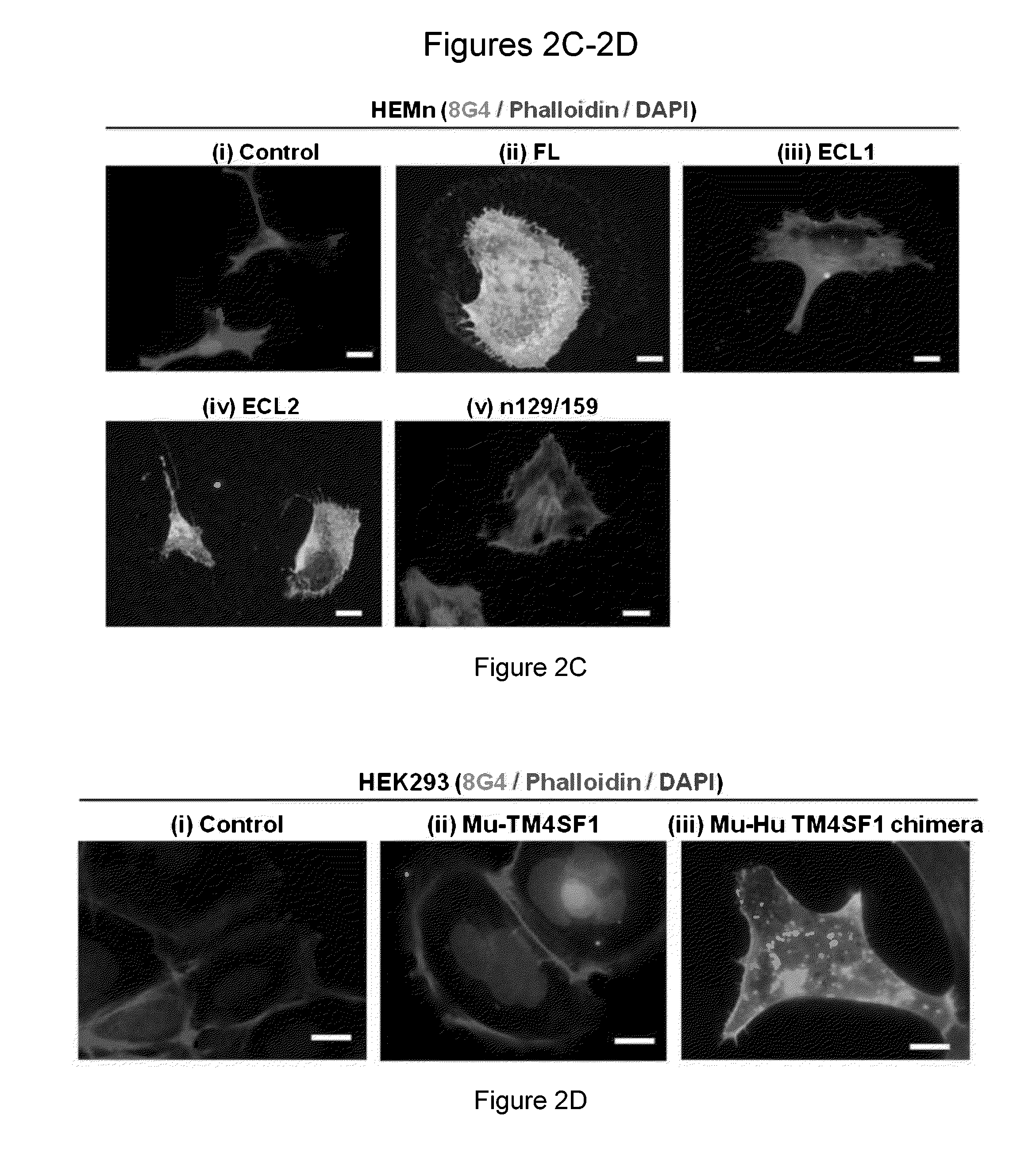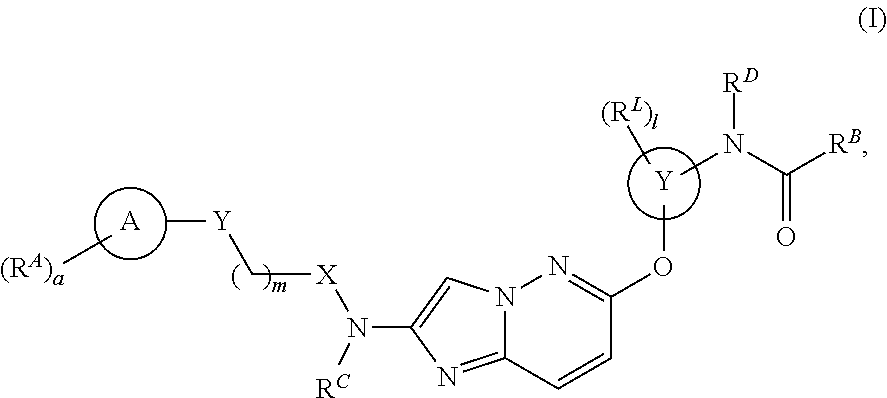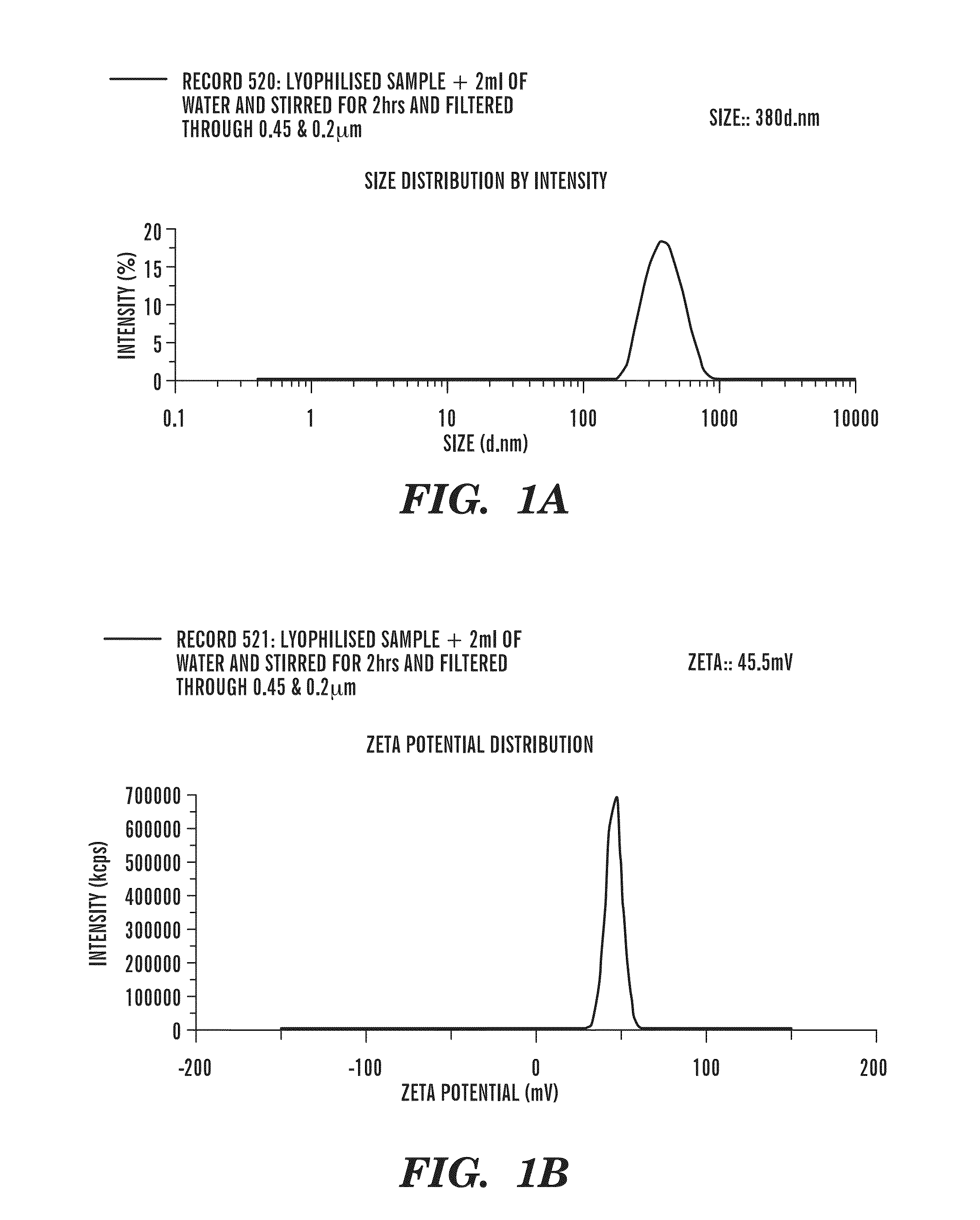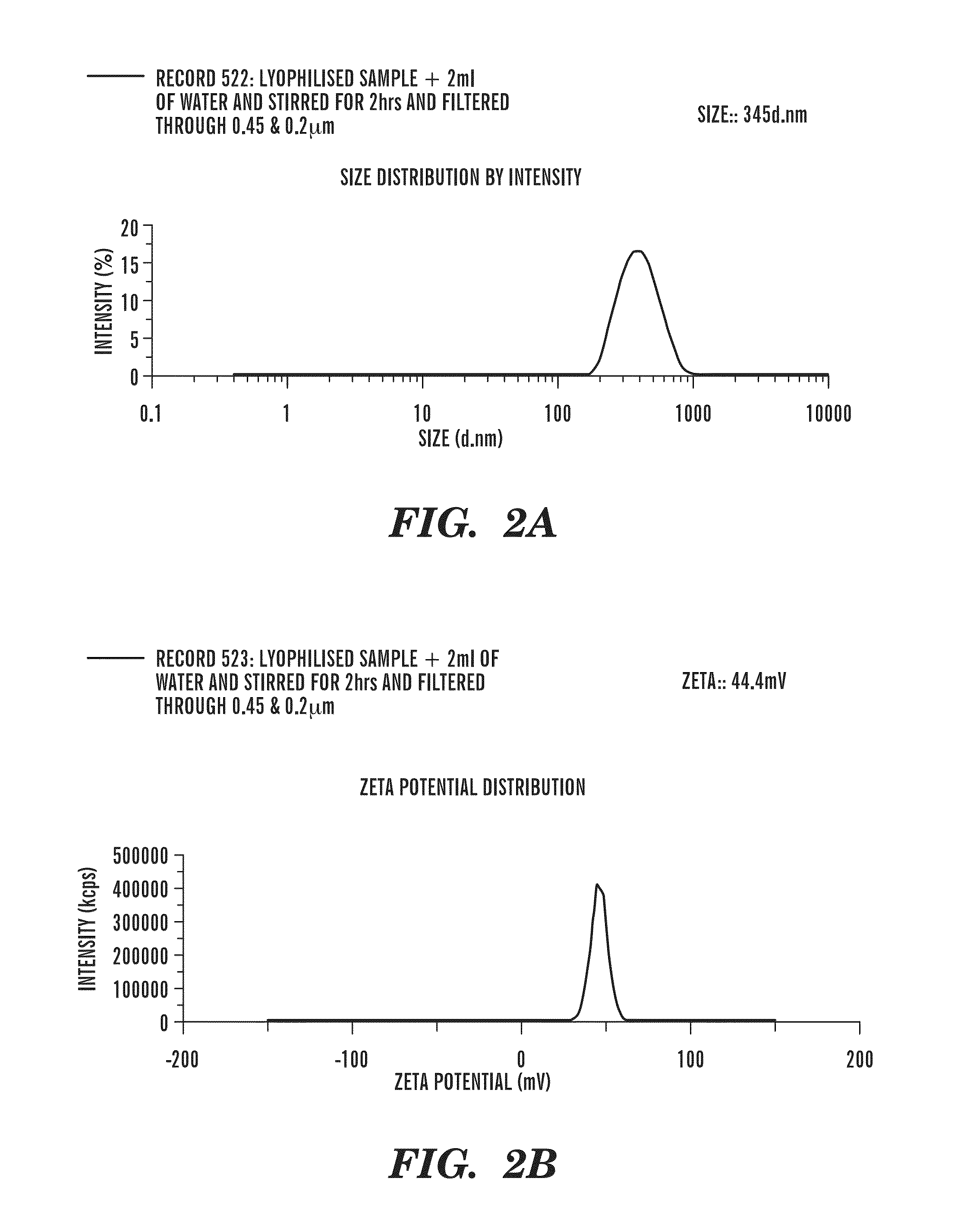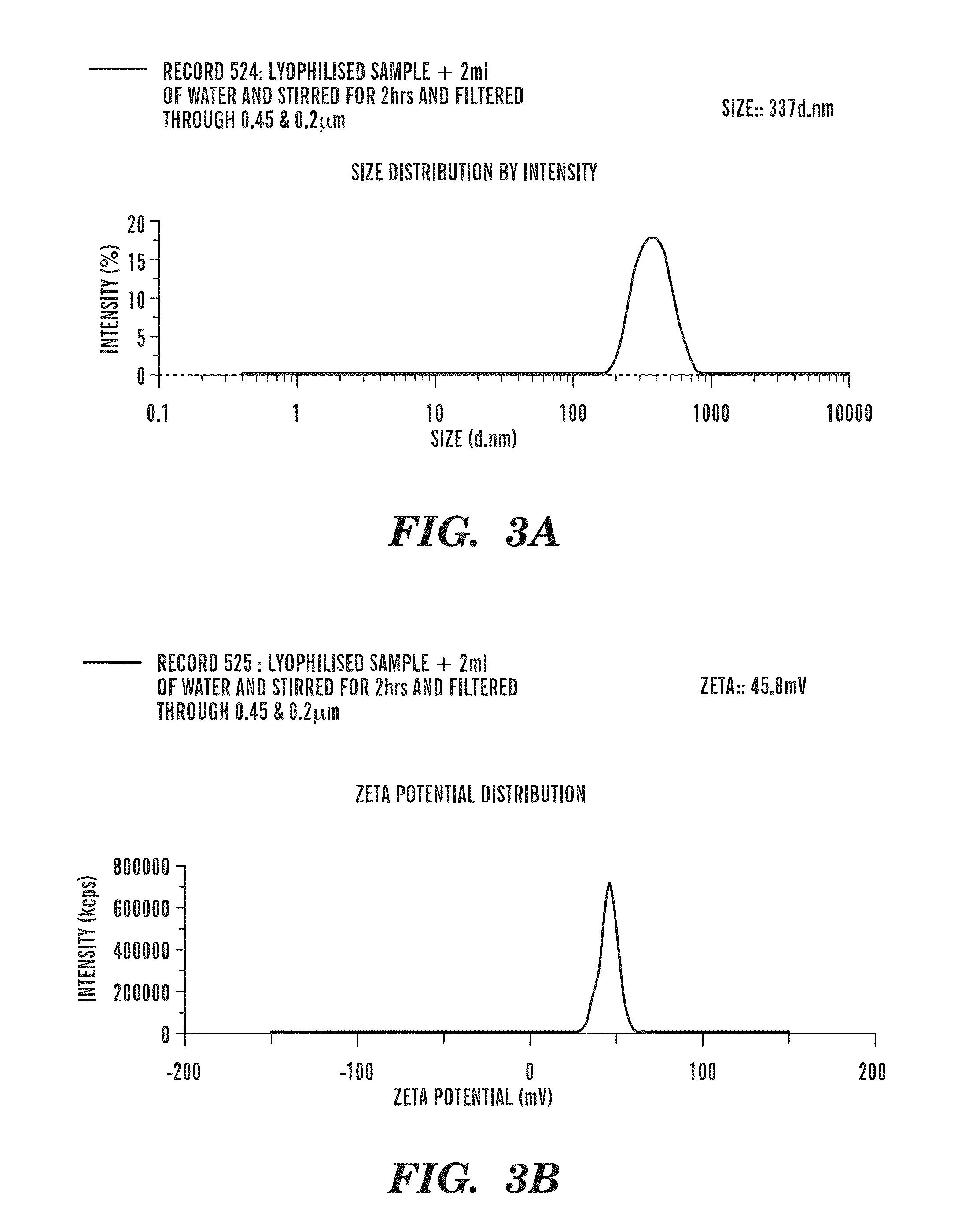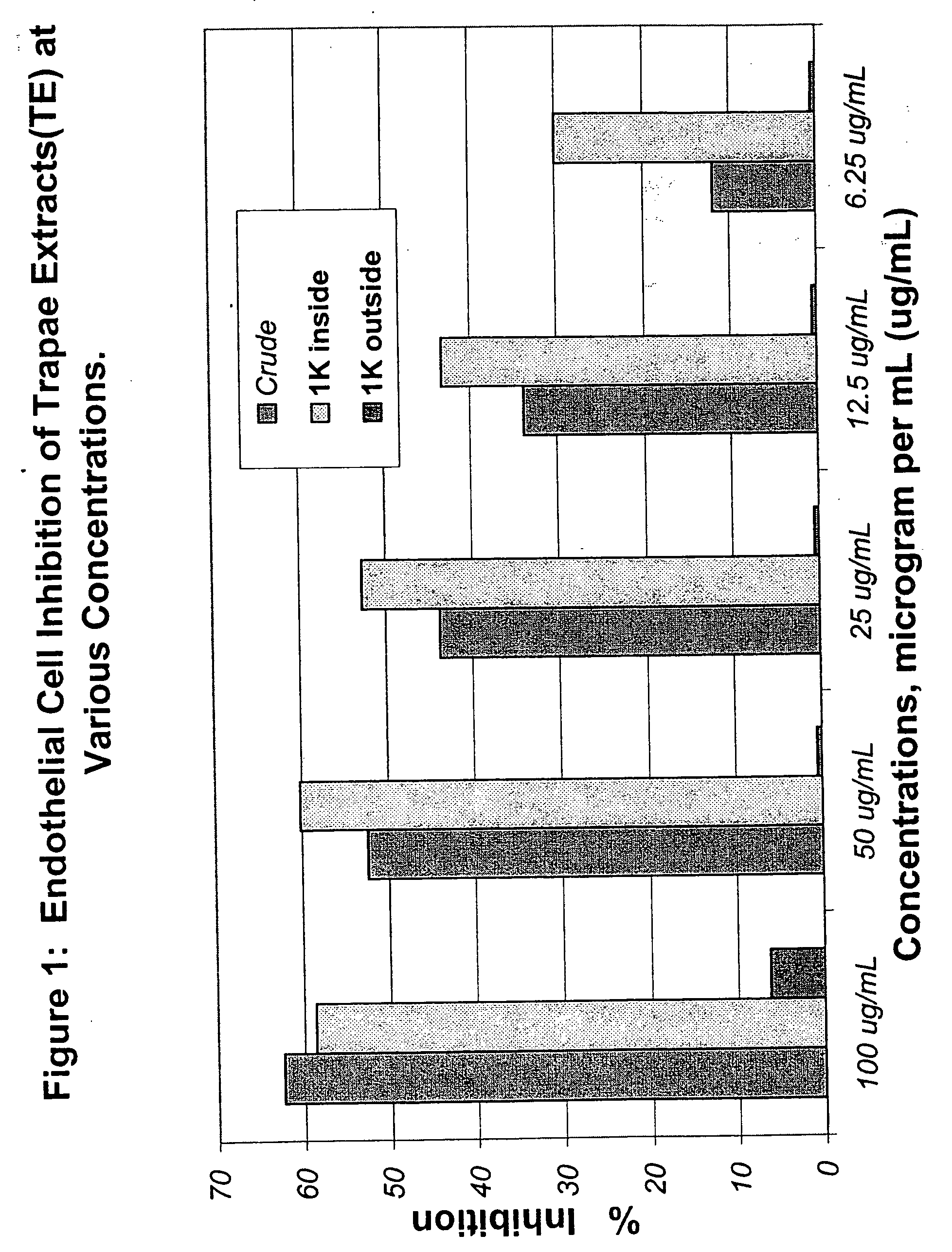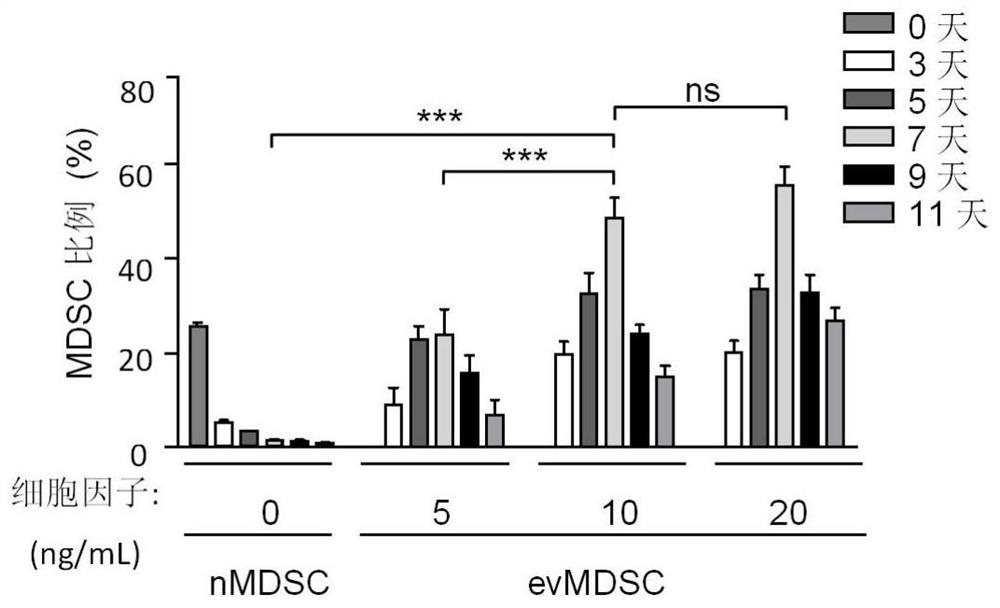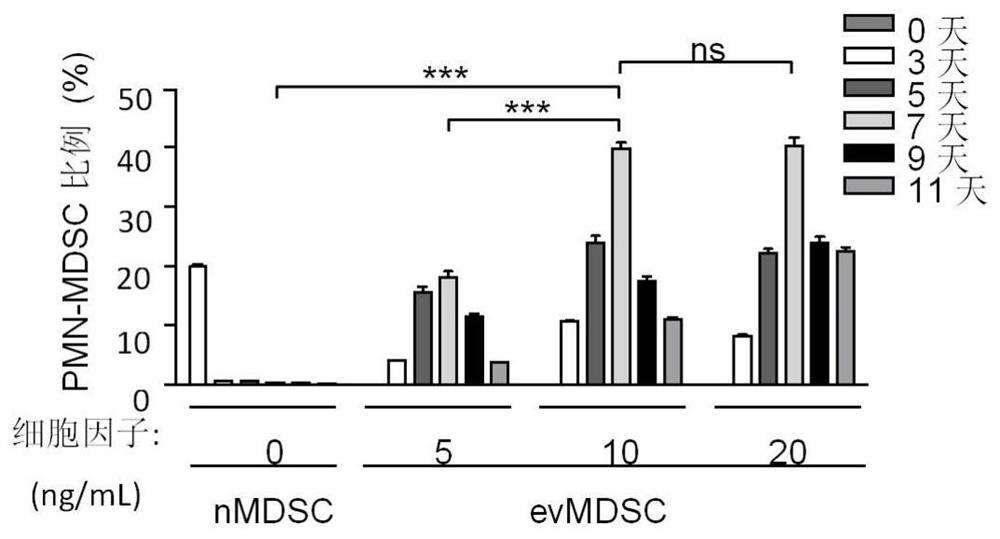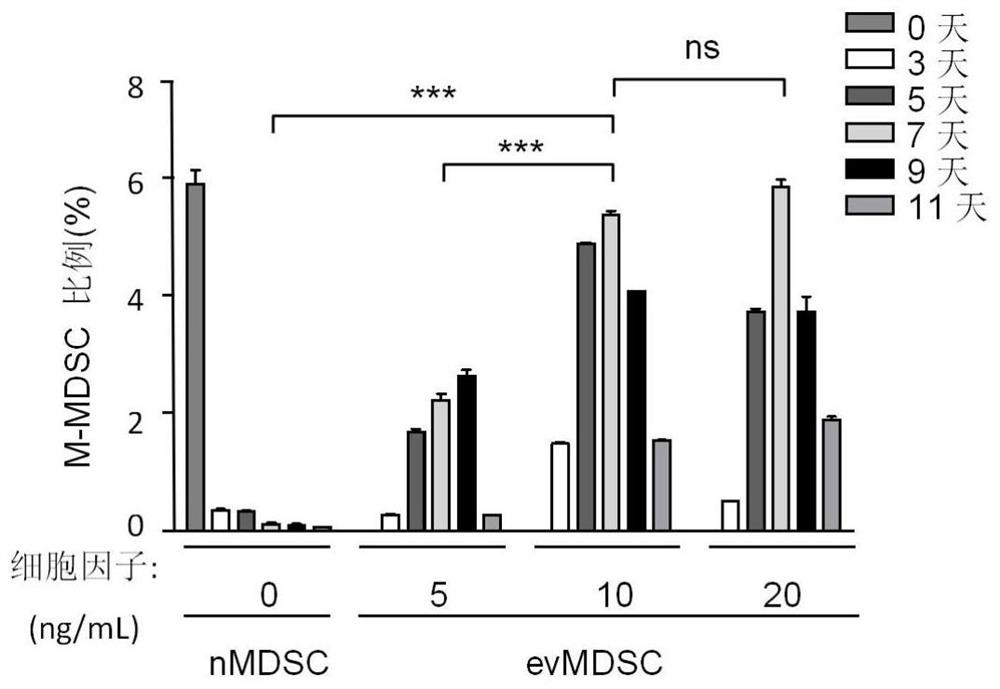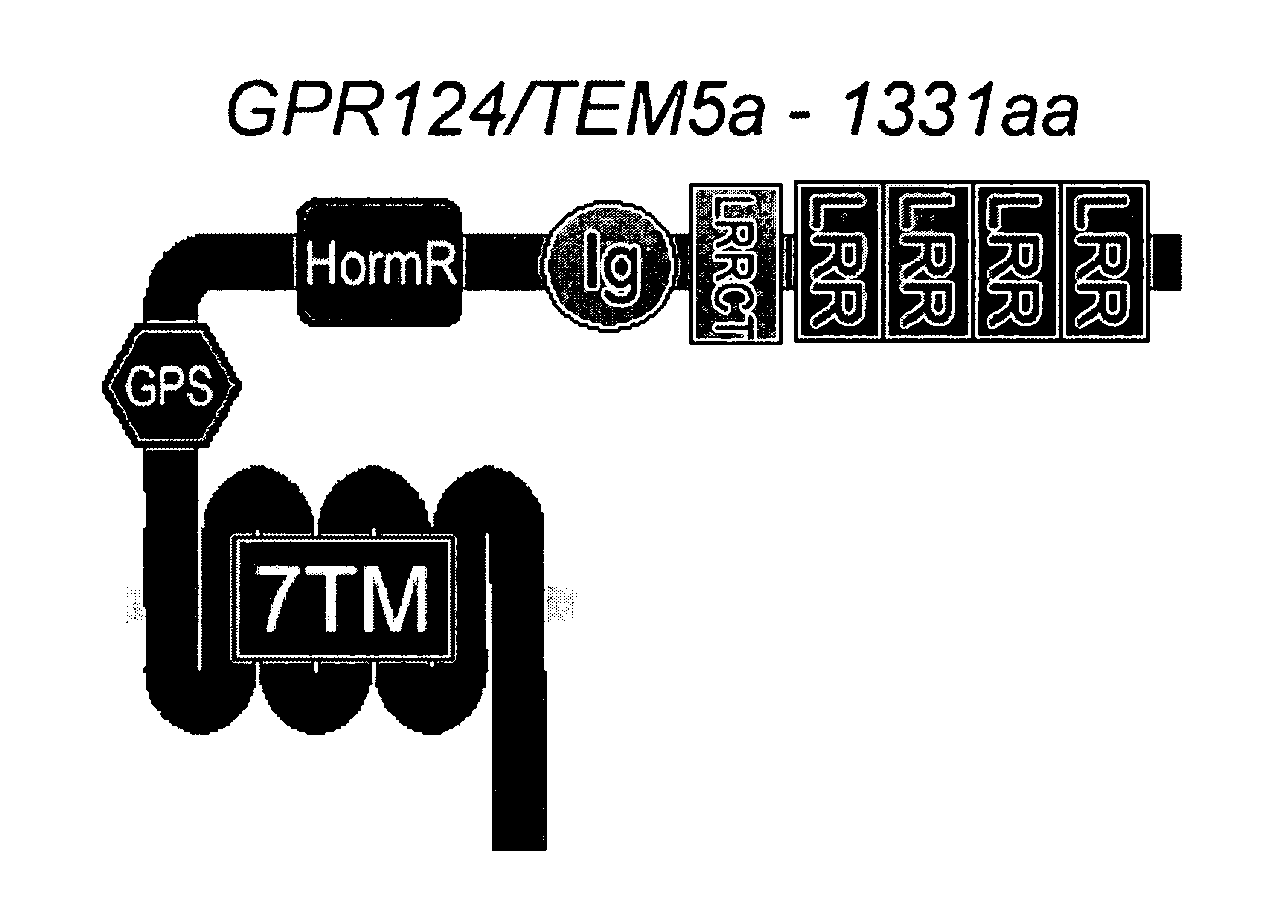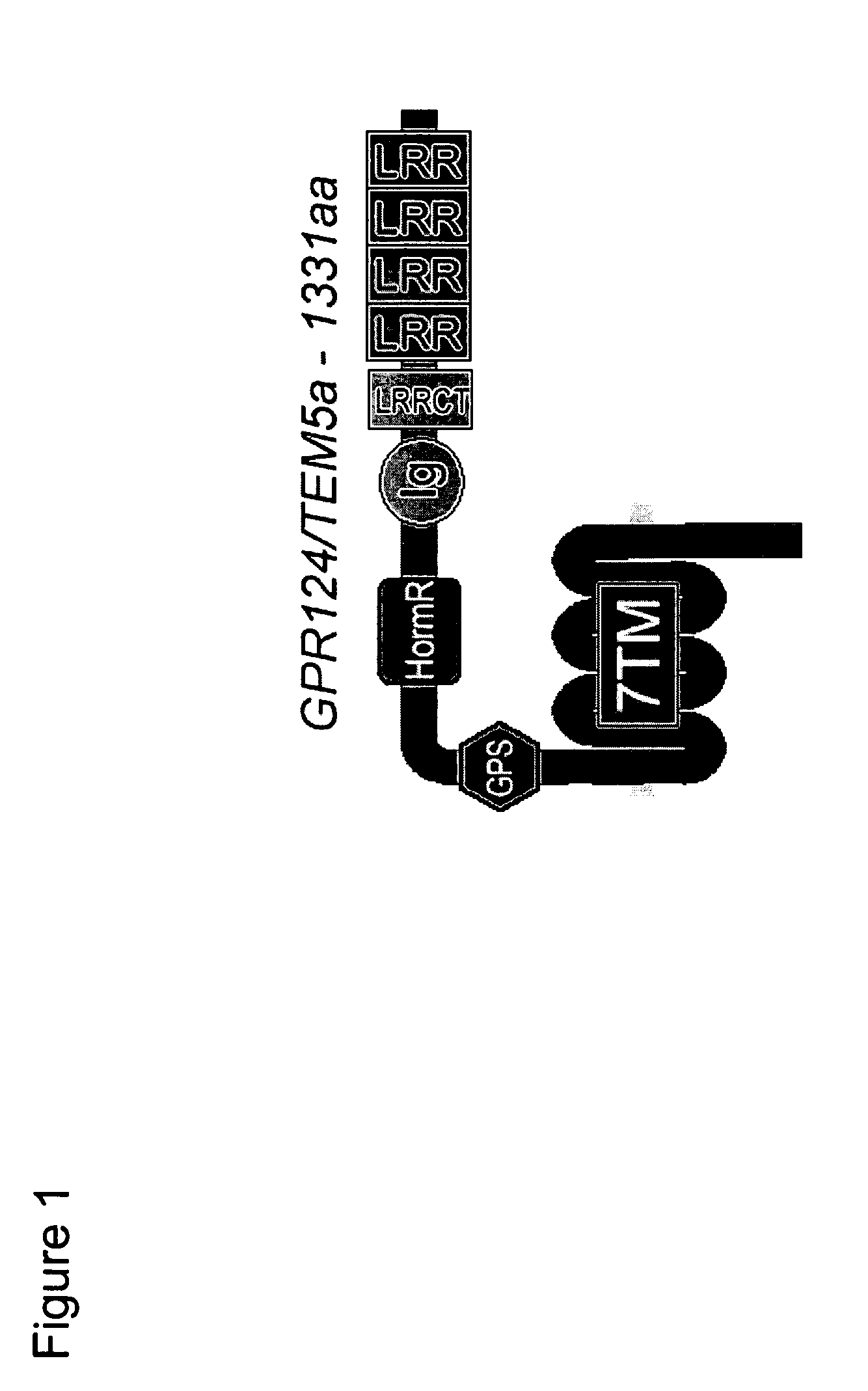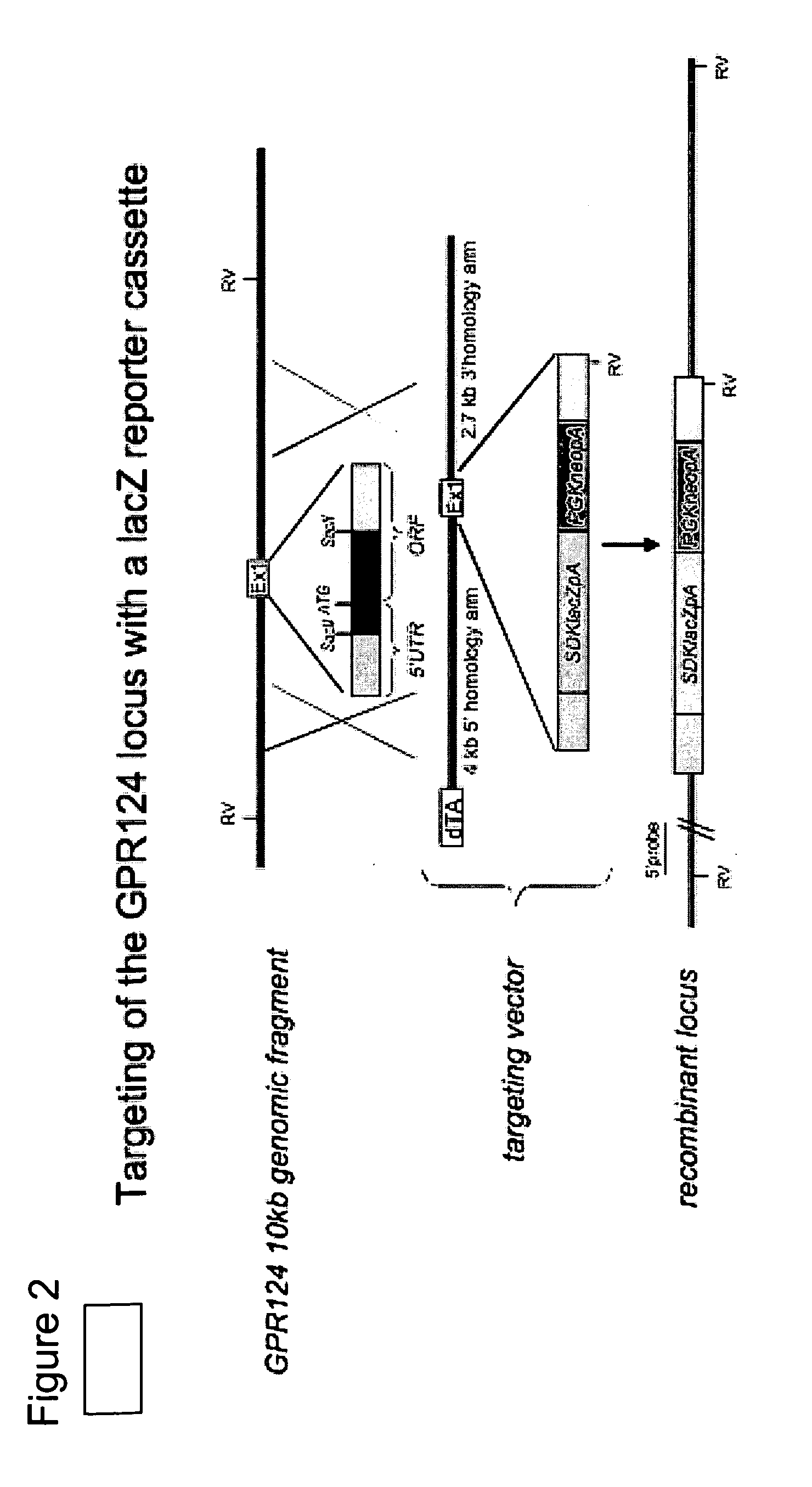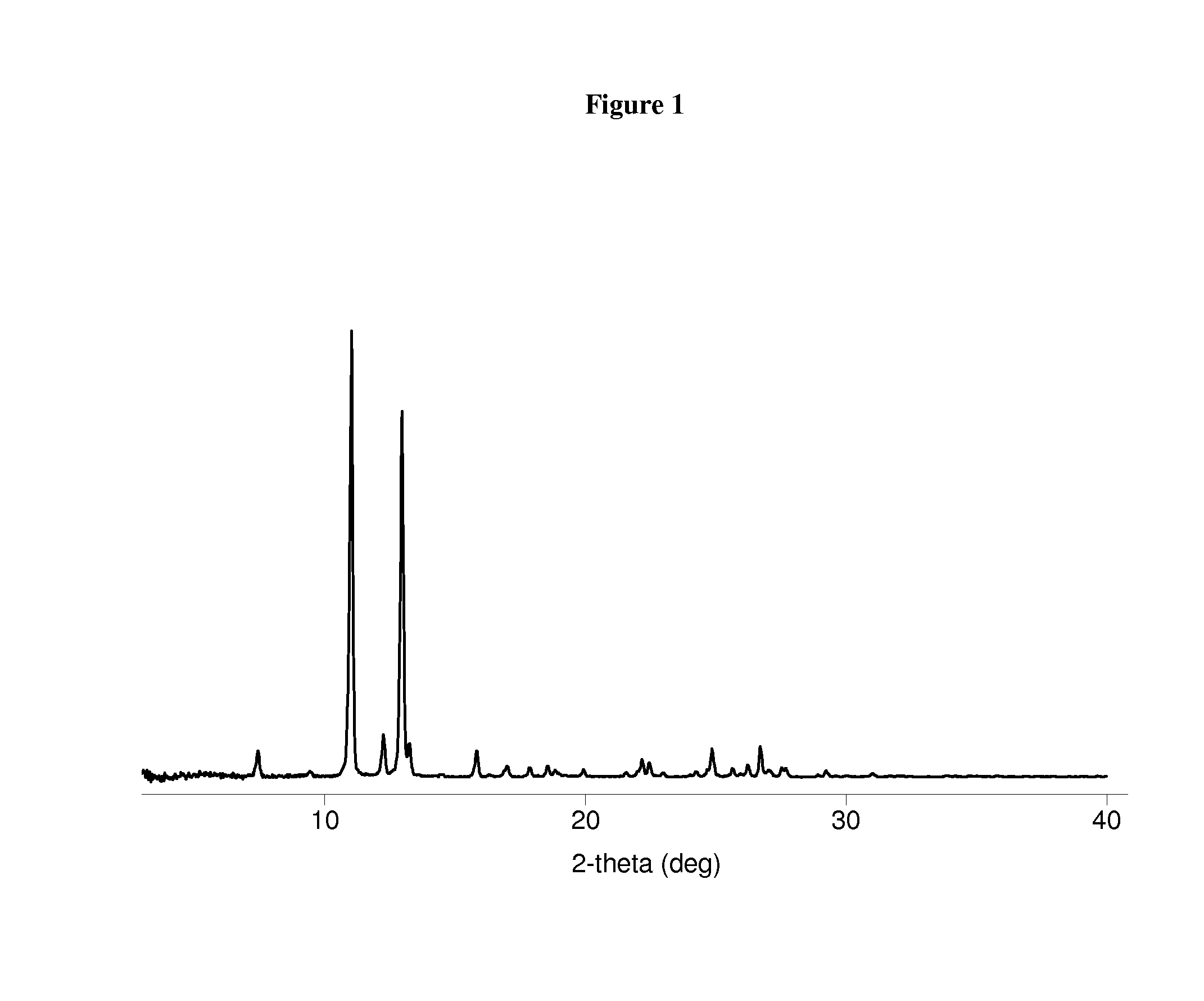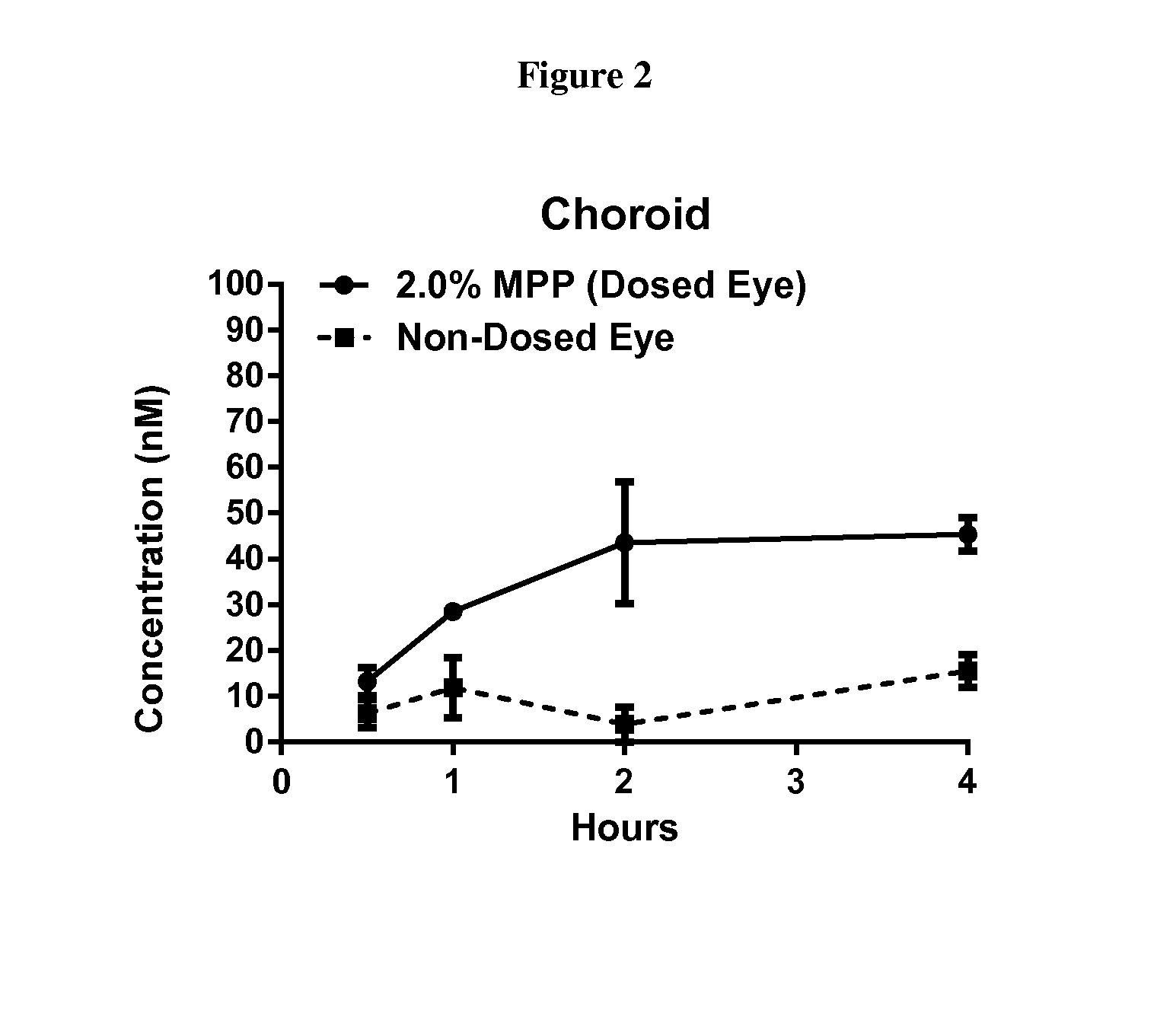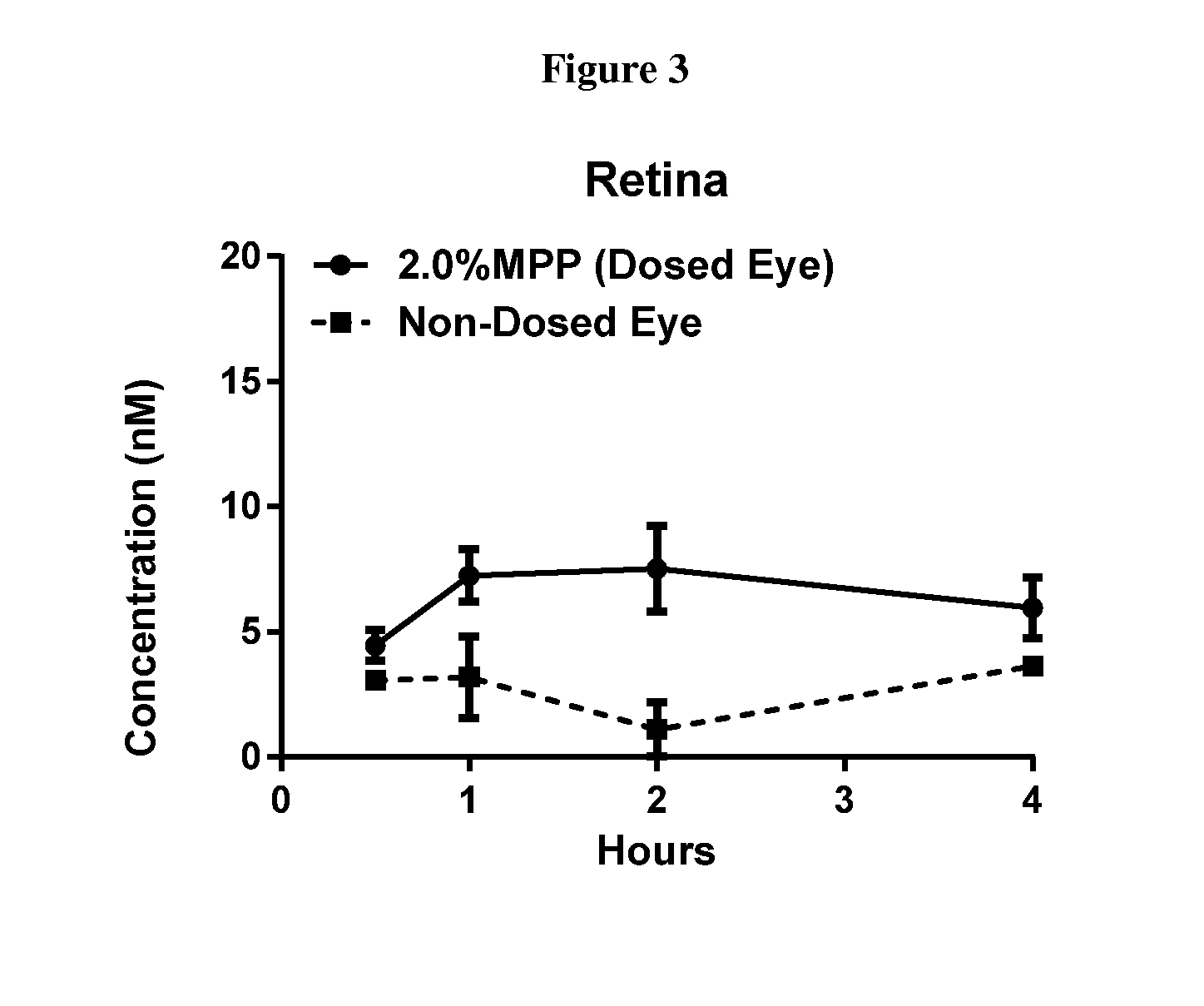Patents
Literature
Hiro is an intelligent assistant for R&D personnel, combined with Patent DNA, to facilitate innovative research.
62 results about "Pathological Angiogenesis" patented technology
Efficacy Topic
Property
Owner
Technical Advancement
Application Domain
Technology Topic
Technology Field Word
Patent Country/Region
Patent Type
Patent Status
Application Year
Inventor
Humanized antibodies against vascular endothelial growth factor
InactiveUS7667004B2High binding affinityInhibit cell proliferationPeptide librariesAntibody mimetics/scaffoldsDiabetic retinopathyAntigen
Methods are provided for designing and selecting antibodies against human antigens with high affinity and specificity in silico and in vitro. In some particular embodiments, methods are provided for designing and selecting humanized or fully human antibodies against vascular endothelial growth factor (VEGF) with high affinity and specificity. In another aspect of the invention, monoclonal antibodies against VEGF are provided. In particular, humanized or human anti-VEGF monoclonal antibodies are provided with ability to bind to human VEGF with high affinity, inhibit VEGF-induced proliferation of endothelial cells in vitro and inhibit VEGF-induced angiogenesis in vivo. These antibodies and their derivative can be used in a wide variety of applications such as diagnosis, prevention, and treatment of diseases such as cancer, AMD, diabetic retinopathy, and other diseases derived from pathological angiogenesis.
Owner:ABMAXIS
Inhibitors of placental growth factor for the treatment of pathological angiogenesis, pathological arteriogenesis, inflammation, tumor formation and/or vascular leakage
InactiveUS20030180286A1Improve angiogenesisIncrease vascular permeabilitySenses disorderAntipyreticStress inducedIschemic retinopathy
The present invention relates to the field of pathological angiogenesis and arteriogenesis. in particular, a stress induced phenotype in a transgenic mouse (PIGF- / -) that does not produce Placental Growth Factor (PIGF) and that demonstrates an impaired vascular endothelial growth factor (VEGF)-dependent response. PIGF-deficiency has a negative influence on diverse pathological processes of angiogenesis, arteriogenesis and vascular leakage comprising ischemic retinopathy, tumour formation, pulmonary hypertension, vascular leakage (oedema formation) and inflammatory disorders. Molecules that can inhibit the binding of PIGF to its receptor (VEGFR-1), such as monoclonal antibodies and tetrameric peptides. Further, the use of these molecules to treat the latter pathological processes.
Owner:VLAAMS INTERUNIVERSITAIR INST VOOR BIOTECHNOLOGIE VZW +1
Novel Anti-Plgf A Antibody
InactiveUS20080193455A1Slow tumor growthInhibit P1GFSenses disorderAntipyreticA AntibodyPathological Angiogenesis
The present invention provides novel monoclonal antibodies directed to P1GF and fragments and derivatives thereof, more particularly to humanized antibodies and fragments thereof for use in the treatment and / or prevention of pathological angiogenesis.
Owner:VLAAMS INTERUNIVERSITAIR INST VOOR BIOTECHNOLOGIE VZW +2
Activators and inhibitors of protease activated receptor2 (PAR2) and methods of use
InactiveUS20060104944A1Increase vascular permeabilityReduces leukocyte rolling velocityOrganic active ingredientsPeptide/protein ingredientsProteinase activityAngiogenesis growth factor
The present invention relates to a method of treating a subject for a condition mediated by a deficiency in angiogenesis by administering to the subject a PAR2 agonist under conditions effective to promote angiogenesis and treat the conditions mediated by a deficiency in angiogenesis. A further aspect of the present invention is a method of treating a subject for condition mediated by excessive or pathological angiogenesis by administering to the subject a PAR2 antagonist or inhibitor under conditions effective to inhibit angiogenesis and treat the subject for the condition mediated by excessive or pathological angiogenesis.
Owner:PHARMA RES INST AT ALBANY COLLEGE OF PHARMA
Compositions containing an active fraction isolated from Lycium barbarum and methods of using the same
The present invention provides extracts of Lycium barbarum useful for inhibiting, interfering and / or controlling pathological angiogenesis or neovascularization of tissues. The invention also provides a method to inhibit metastasis of cancer of colon, lung, liver, kidney, breast and / or cervix in a subject, comprising administering an effective amount of an extract of Lycium barbarum to the subject.
Owner:WONG KIN PING +1
Inhibitors of placental growth factor for the treatment of pathological angiogenesis, pathological arteriogenesis, inflammation, tumor formation and/or vascular leakage
The present invention relates to the field of pathological angiogenesis and arteriogenesis and, in particular, to a stress-induced phenotype in a transgenic mouse (PIGF− / −) that does not produce Placental Growth Factor (PIGF) and that demonstrates an impaired vascular endothelial growth factor (VEGF)-dependent response. PIGF deficiency has a negative influence on diverse pathological processes of angiogenesis, arteriogenesis and vascular leakage comprising ischemic retinopathy, tumor formation, pulmonary hypertension, vascular leakage (edema formation) and inflammatory disorders. The invention thus relates to molecules that can inhibit the binding of PIGF to its receptor (VEGFR-1), such as monoclonal antibodies and tetrameric peptides, and to the use of these molecules to treat the above-mentioned pathological processes.
Owner:VLAAMS INTERUNIVERSITAIR INST VOOR BIOTECHNOLOGIE VZW +1
Application of arctigenin in treating angiogenesis diseases
InactiveCN102805743ASuppress generationDose dependentOrganic active ingredientsMetabolism disorderDiseaseDiabetic retinopathy
The invention provides a novel medical application of arctigenin, belonging to the field of medicine. According to the application of arctigenin in treating angiogenesis diseases provided by the invention, the arctigenin is applied to treating angiogenesis diseases, a good angiogenesis inhibiting effect is shown in a chorioallantoic membrane model test of a chicken embryo, which reminds that the arctigenin can be applied to treatment or auxiliary treatment of angiogenetic diseases. The medical application of arctigenin which inhibits angiogenesis reminds that the arctigenin has wide medical application prospect in treating diseases such as tumor and other pathological angiogenesis diseases such as diabetic retinopathy, psoriasis, atherosclerosis, rheumatoid arthritis and the like.
Owner:LUNAN PHARMA GROUP CORPORATION
Inhibition of pathological angiogenesis in vivo
InactiveUS20070077233A1Inhibition effectReduce expressionBiocideSenses disorderAbnormal tissue growthGene delivery
The present invention is directed to the inhibition of pathological angiogenesis in different tissues such as cancer, tumor, retinal or synovial tissue. It has been shown that over expression of RB2 / p130 modulates the angiogenetic balance. It has been further shown that induction of RB2 / p130 expression using a tetracycline-regulated gene expression system as well as viral-mediated gene delivery inhibits angiogenesis in vivo via pRb2 / p130-mediated down-regulation of vascular endothelial growth factor (VEGF) protein expression in vivo.
Owner:SBARRO HEALTH RES ORG
Bioactive material promoted stem cell secreted exosome in treatment of corneal injuries
ActiveCN108743620AImprove retentionGood treatment effectSenses disorderPharmaceutical delivery mechanismApoptosisBiocompatibility Testing
The invention relates to biomaterial hydrogel eye drops containing stem cell secreted exosome, good in cellular biocompatibility and biological activity. Active hydrogel can serve as the eye drops, and the exosome is slowly released into damaged tissue; the hydrogel can also enhance retention and local concentration of the exosome at injured sites to promote repair of eye tissue injuries, promotecorneal cells to survive and proliferate, reduce apoptosis, promote functional recovery of the injured sites, inhibit pathological angiogenesis and inhibit eye inflammation; meanwhile, after the active hydrogel is combined with the bioactive material, residence time of the exosome can be prolonged, drug treating times can be reduced, and accurate control of drug dosage is facilitated.
Owner:BEIJING HEALTH & BIOTECH (H&B) CO LTD
ANTI-DEspR INHIBITORS AS THERAPEUTICS FOR INHIBITION OF PATHOLOGICAL ANGIOGENESIS AND TUMOR CELL INVASIVENESS AND FOR MOLECULAR IMAGING AND TARGETED DELIVERY
ActiveUS20160108124A1Low toxicityIncreasing in vivo serum half-lifeSenses disorderNervous disorderAntiendomysial antibodiesIn vivo
Owner:TRUSTEES OF BOSTON UNIV
2,3-diaryl thiazolidinone compound and analogue, and purpose thereof in preparing antiangiogenic drugs
The invention discloses a 2,3-diaryl thiazolidinone compound shown in a structural formula (I), a hydrate and pharmaceutically acceptable salts thereof, and a pharmaceutical composition containing the compound, as well as the application of the compound in preparing drugs capable of treating related diseases caused by all kinds of pathological angiogenesis.
Owner:BIORAY LABORATORIES INC
Anti-PLGF antibody
InactiveUS7875704B2Inhibit bindingSmall sizeSenses disorderAntipyreticPathological AngiogenesisHumanized antibody
The present invention provides novel monoclonal antibodies directed to PlGF and fragments and derivatives thereof, more particularly to humanized antibodies and fragments thereof for use in the treatment and / or prevention of pathological angiogenesis.
Owner:VLAAMS INTERUNIVERSITAIR INST VOOR BIOTECHNOLOGIE VZW +2
Extract of Trapa natans and methods of using the same
InactiveUS7494671B2Inhibit neovascularizationGood treatment effectBiocideAnimal repellantsCervixPathological Angiogenesis
Owner:WONG KIN PING
Materials and Methods for Treating and Managing Angiogenesis-Mediated Diseases
InactiveUS20100092532A1Growth inhibitionBiocideSenses disorderAbnormal tissue growthRadical radiotherapy
Disclosed herein are materials and methods suitable for treating sites of pathological angiogenesis and abnormal neovascularization. Sites of pathological angiogenesis or abnormal neovascularization can be treated by contacting a surface at or adjacent or in the vicinity of an area of pathological angiogenesis or abnormal neovascularization with an implantable material. The implantable material comprises a biocompatible matrix and cells and is in an amount effective to treat the affected site. The composition can be a flexible planar material or a flowable composition. Diseases susceptible to treatment with the present invention include, for example, macular degeneration, rheumatoid arthritis, psoriasis, psoriatic arthritis, systemic inflammatory diseases, and treatment of tumors by surgical resection, radiation therapy or chemotherapy.
Owner:SHIRE REGENERATIVE MEDICINE INC
Methods for controlling pathological angiogenesis by inhibition of a6b4 integrin
InactiveUS20070104716A1Reduce the amount requiredGuaranteed functionIntegrin superfamilyGenetic material ingredientsAnti angiogenicΑ6β4 integrin
It has now been determined that α6β4 integrin is a pro-angiogenic receptor, and thus that it provides a novel and heretofore unrecognized target for anti-angiogenic therapy. Thus, angiogenesis, particularly pathological angiogenesis, can be inhibited, and conditions with which pathological angiogenesis is associated treated using inhibitors of α6β4 integrin. A tissue in which angiogenesis is to be inhibited is exposed to a therapeutic agent effective to reduce the amount of active α6β4 integrin in the tissue. The tissue may be within a patient, and in particular a human patient to be treated for a disease condition with which pathological angiogenesis is associated. The therapeutic agent may be an antibody or a small molecule, for example a laminin-5 analog, which binds to α6β4 integrin and inhibits its normal function. The therapeutic agent may also be a chemical species that interferes with the production of α6β4 integrin, including for example an antisense or RNAi species.
Owner:SLOAN KETTERING INST FOR CANCER RES
Oligosaccharide compounds for use in mobilising stem cells
InactiveUS20110166078A1Organic active ingredientsSugar derivativesPathological AngiogenesisOligosaccharide
A compound of the following formula or a salt, solvate or formula (I) and a pharmaceutical composition containing said compound. It concerns also its use in the treatment of cancer and / or of pathological angiogenesis and / or in promoting the mobilisation of stem cells, in particular hematopoietic stem cells.
Owner:ENDOTIS PHARMA
Treatment of angiogenesis disorders
ActiveUS20130330333A1Senses disorderPeptide/protein ingredientsAngiogenesis growth factorPathological Angiogenesis
This invention concerns pathological angiogenesis and cancer, related treatment methods, and related compositions. Also disclosed are related diagnosis kits and methods.
Owner:THE ROCKEFELLER UNIV
Differential gene expression in physiological and pathological angiogenesis
InactiveUS20100028256A1In-vivo radioactive preparationsMicrobiological testing/measurementFhit geneBlood vessel
Methods of inhibiting pathological angiogenesis in a subject are disclosed. In particular examples, the method includes administering a therapeutically effective amount of a composition to a subject wherein the composition includes a specific binding agent that preferentially binds to one or more pathological angiogenesis marker proteins including Vscp, CD276, ETSvg4 (Pea3), CD137(4-1BB), MiRP2, Ubiquitin D (Fat10), Doppel (prion-PLP), Apelin, Plgf, Ptprn (IA-2), CD109, Ankylosis, and collagen VIIIα1. In additional examples, methods to deliver a therapeutic agent to a brain or liver endothelial cell are also disclosed.
Treatment of angiogenesis disorders
ActiveUS20130323241A1High affinityInhibiting endothelial recruitmentSenses disorderPeptide/protein ingredientsAngiogenesis growth factorPathological Angiogenesis
This invention concerns pathological angiogenesis and cancer, related treatment methods, and related compositions. Also disclosed are related diagnosis kits and methods.
Owner:THE ROCKEFELLER UNIV
Compositions and methods for inhibiting angiogenesis
InactiveUS7381799B2Inhibit angiogenesisInhibiting tumor neovascularizationAnimal cellsSugar derivativesAntigenCell membrane
The present invention provides a treatment for mammalian diseases characterized by pathological angiogenesis. The treatment consists of administering therapeutically active dosages of peptides containing specific amino acid sequences or antibodies that bind to cell membrane antigens on the surface of rapidly dividing endothelial cells.
Owner:ERGON PHARMA
IL-12 immunoconjugate
ActiveUS9580485B2Improve abilitiesPromote productionImmunoglobulins against animals/humansPharmaceutical non-active ingredientsBinding siteAntibody fragments
Conjugate comprising interleukin-12 (IL-12) and a single chain targeting portion comprising two antigen binding sites. The targeting portion may comprise an antibody fragment such as a single chain diabody. The conjugate may be a single chain fusion protein. Use of single chain bivalent IL-12 immunocytokine for targeting the extra-cellular matrix (ECM) of tissues, particularly tumour neovasculature antigens, for example fibronectin. Use for treating cancer or pathological angiogenesis in a patient.
Owner:PHILOGEN SRL LLC
Compounds for treatment of diseases of abnormal angiogenesis or aberrant growth factors and uses thereof
ActiveUS9988386B2Good effectMechanism is preventedSenses disorderOrganic chemistryDiabetic retinopathyUveitis
The present invention provides novel compounds of any one of Formulae (I)-(IV), and pharmaceutical compositions thereof. Also provided are particles (e.g., nanoparticles) comprising compounds of any one of Formulae (I)-(IV) and pharmaceutical compositions thereof that are mucus penetrating. The invention also provides methods and kits for using the inventive compounds, and pharmaceutical compositions thereof, for treating and / or preventing diseases associated with abnormal or pathological angiogenesis and / or aberrant signaling of a growth factor signaling pathway (e.g., vascular endothelial growth factor (VEGF)), such as proliferative diseases (e.g., cancers, benign neoplasms, inflammatory diseases, autoimmune diseases) and ocular diseases (e.g., macular degeneration, glaucoma, diabetic retinopathy, retinoblastoma, edema, uveitis, dry eye, blepharitis, and post-surgical inflammation) in a subject in need thereof.
Owner:KALA BIO INC
Tm4sf1 binding proteins and methods of using same
This present invention relates to compounds (e.g., TM4SF1 binding proteins, e.g., anti-TM4SF1 antibodies) that specifically bind to a polypeptide at an epitope including an amino acid sequence of SEQ ID NO: 1. In particular, the compounds of the invention are capable of being internalized into a TM4SF1-expressing cell (e.g., a tumor cell or an angiogenic vasculature endothelial cell) following binding to the epitope of including the amino acid sequence of SEQ ID NO: 1. The invention also provides methods of treating a subject having a disorder associated with pathological angiogenesis with the compounds of the invention.
Owner:BETH ISRAEL DEACONESS MEDICAL CENT INC
Optimized variants of anti-VEGF antibodies
The present invention provides anti-VEGF antibodies and compositions that include anti-VEGF antibodies (e.g., antibody conjugates, fusion proteins, and polymeric formuiations), and uses thereof, for example for treatment of disorders associated with pathological angiogenesis. The present invention also provides methods of identifying antibody variants with improved properties, for example, enhanced binding affinity, stability, pharmacokinetics, and / or expression.
Owner:F HOFFMANN LA ROCHE & CO AG
Novel Compounds and Uses Thereof
ActiveUS20160137646A1Good effectMechanism is preventedSenses disorderOrganic chemistryDiabetic retinopathyUveitis
The present invention provides novel compounds of any one of Formulae (I)-(IV), and pharmaceutical compositions thereof. Also provided are particles (e.g., nanoparticles) comprising compounds of any one of Formulae (I)-(IV) and pharmaceutical compositions thereof that are mucus penetrating. The invention also provides methods and kits for using the inventive compounds, and pharmaceutical compositions thereof, for treating and / or preventing diseases associated with abnormal or pathological angiogenesis and / or aberrant signaling of a growth factor signaling pathway (e.g., vascular endothelial growth factor (VEGF)), such as proliferative diseases (e.g., cancers, benign neoplasms, inflammatory diseases, autoimmune diseases) and ocular diseases (e.g., macular degeneration, glaucoma, diabetic retinopathy, retinoblastoma, edema, uveitis, dry eye, blepharitis, and post-surgical inflammation) in a subject in need thereof.
Owner:KALA BIO INC
NOVEL FORMULATIONS OF FACTOR VIIa INHIBITORS AND UTILITY
A method for treating a subject, such as a human patient, having a vascular disorder. The treatment method administers a therapeutic effective amount of a nanoparticle or a chemical structure to the subject to treat the disorders. The nanoparticle includes a poly L-arginine polymer and a Factor VIIa inhibitor conjugated to, or encapsulated in, the poly L-arginine polymer. The chemical structure includes a Factor VIIa inhibitor that includes at least one nitric oxide (NO) donor. The disorder may be sickle cell disease; stimulated or pathological angiogenesis associated disorders, cancer, ocular angiogenesis-mediated disorders such as diabetic retinopathy and macular degeneration, coagulation and / or platelet activation-associated disorders, pulmonary hypertension, or combinations thereof.
Owner:MOUSA SHAKER A
Extract of Trapa natans and methods of using the same
InactiveUS20050281894A1Inhibit neovascularizationGood treatment effectBiocideUnknown materialsCervixPathological Angiogenesis
The present invention provides extracts of Trapa natans L. useful for inhibiting, interfering and / or controlling pathological angiogenesis or neovascularization of tissues. The invention also provides a method to inhibit metastatis of cancer of colon, lung, liver, kidney, breast and / or cervix in a subject, comprising administering an effective amount of an extract of Trapa natans L. to the subject.
Owner:WONG KIN PING
In-vitro induced immunosuppressive myeloid suppressive cell as well as preparation and application thereof
ActiveCN111808800AReduce dosageGood choiceMammal material medical ingredientsSkeletal/connective tissue cellsPurification methodsPathological Angiogenesis
The invention relates to a preparation and acquisition method of in-vitro induced immunosuppressive myeloid suppressive cells, and belongs to the field of cytobiology and clinical application. The invention specifically discloses an immunosuppressive myeloid suppressor cell (MDSCs) which is derived from a healthy donation individual and generates immunosuppressive activity through in-vitro drug induction stimulation, and a preparation and purification method of the immunosuppressive myeloid suppressor cell. The invention finds that in vitro induced immunosuppressive myeloid suppressor cells can effectively inhibit CD4 + T cell proliferation effect in vitro; by means of the application, the biological preparation for effectively treating rejection after corneal transplantation and effectively inhibiting pathological angiogenesis can be prepared.
Owner:THE SECOND XIANGYA HOSPITAL OF CENT SOUTH UNIV
Methods of Modulating Angiogenesis
InactiveUS20100278810A1Inhibit expressionHigh activityCompound screeningOrganic active ingredientsAngiogenesis growth factorPathological Angiogenesis
The present invention provides methods of modulating angiogenesis in an individual, the methods generally involving administering to an individual an agent that modulates the expression or activity of GPR124. In one embodiment, the methods of the invention relate to inhibiting pathological angiogenesis by decreasing activity of GPR124, which method may be carried out in conjunction with administration of one or more other anti-angiogenic agents.
Owner:THE BOARD OF TRUSTEES OF THE LELAND STANFORD JUNIOR UNIV
Urea derivatives and uses thereof
The present invention provides novel compounds of any one of Formulae (I)-(III), and pharmaceutical compositions thereof. Also provided are particles (e.g., nanoparticles) comprising compounds of Formula (I)-(III) and pharmaceutical compositions thereof that are mucus penetrating. The invention also provides methods and kits for using the inventive compounds, and pharmaceutical compositions thereof, for treating and / or preventing diseases associated with abnormal or pathological angiogenesis and / or aberrant signaling of a growth factor (e.g., vascular endothelial growth factor (VEGF)), such as proliferative diseases (e.g., cancers, benign neoplasms, inflammatory diseases, autoimmune diseases) and ocular diseases (e.g., macular degeneration, glaucoma, diabetic retinopathy, retinoblastoma, edema, uveitis, dry eye, blepharitis, and post-surgical inflammation) in a subject in need thereof.
Owner:KALA PHARMA
Features
- R&D
- Intellectual Property
- Life Sciences
- Materials
- Tech Scout
Why Patsnap Eureka
- Unparalleled Data Quality
- Higher Quality Content
- 60% Fewer Hallucinations
Social media
Patsnap Eureka Blog
Learn More Browse by: Latest US Patents, China's latest patents, Technical Efficacy Thesaurus, Application Domain, Technology Topic, Popular Technical Reports.
© 2025 PatSnap. All rights reserved.Legal|Privacy policy|Modern Slavery Act Transparency Statement|Sitemap|About US| Contact US: help@patsnap.com
